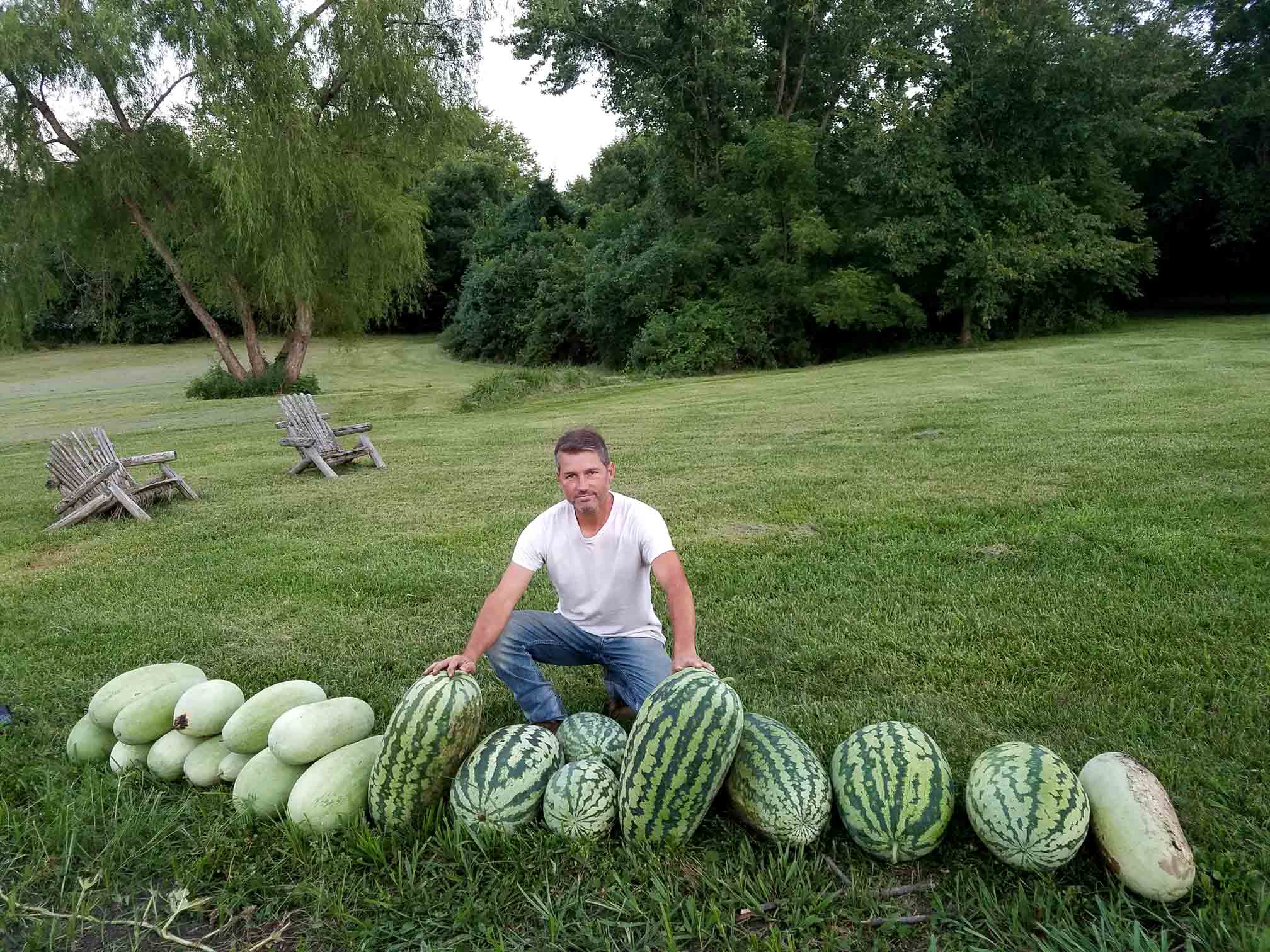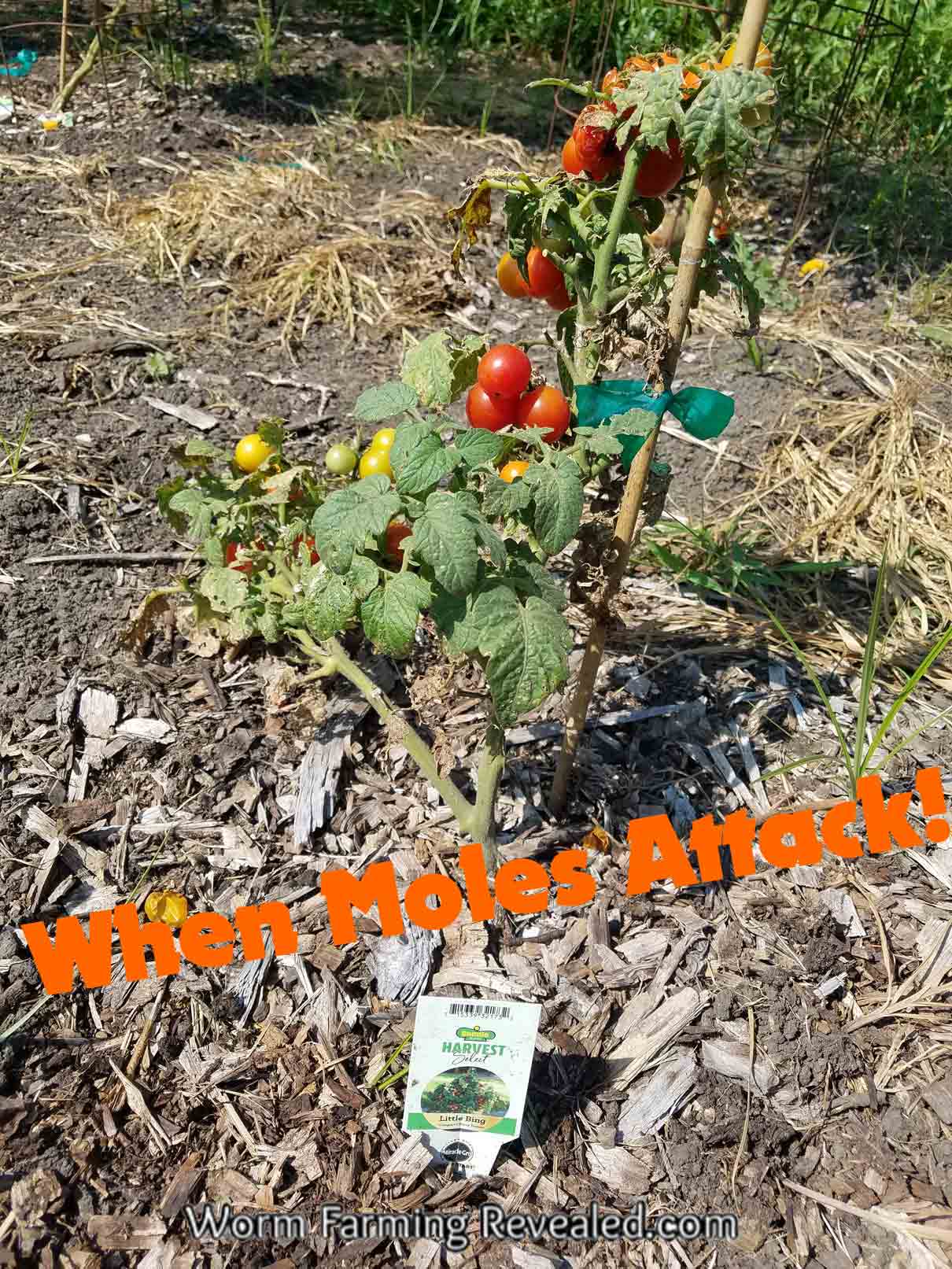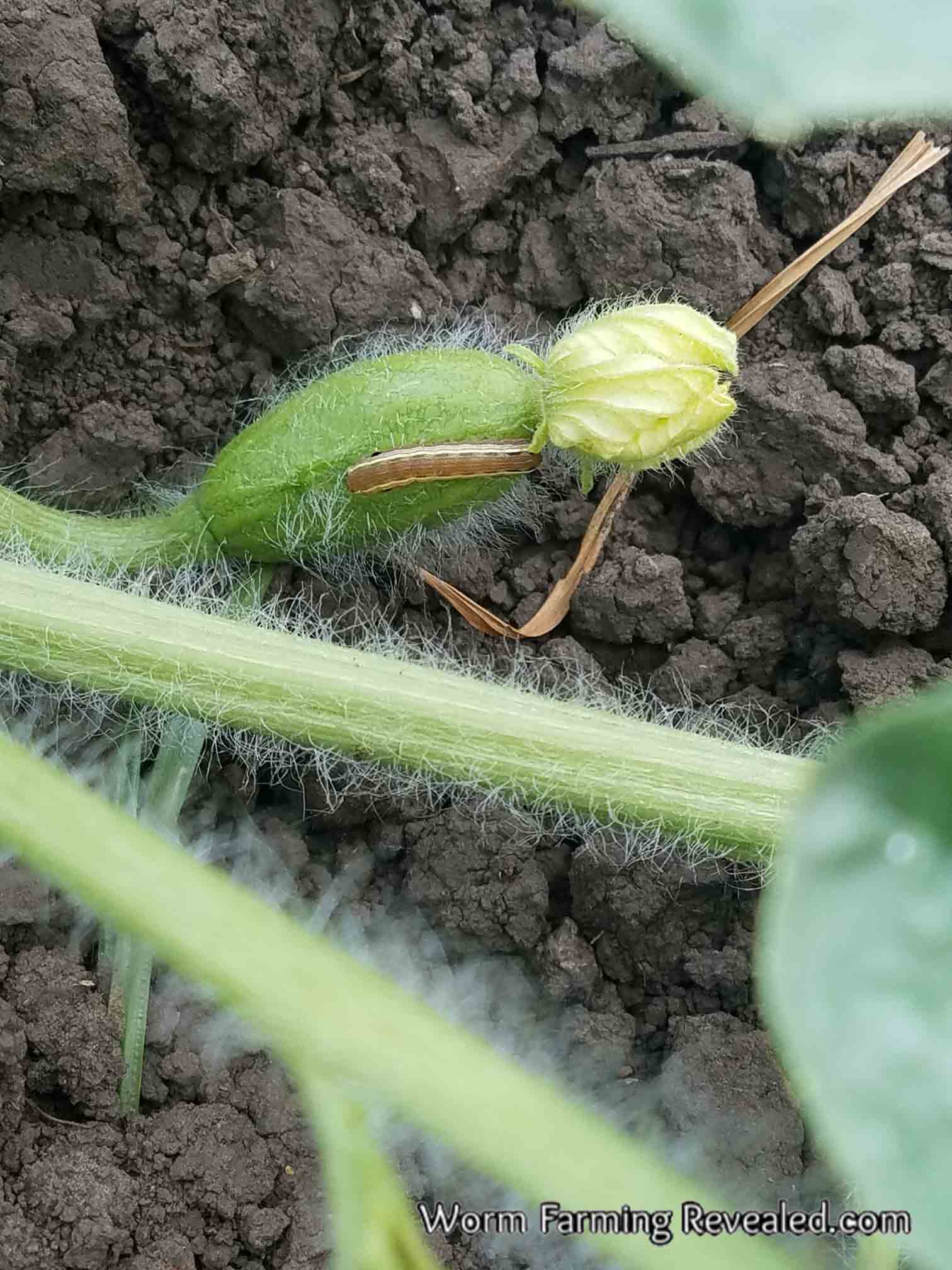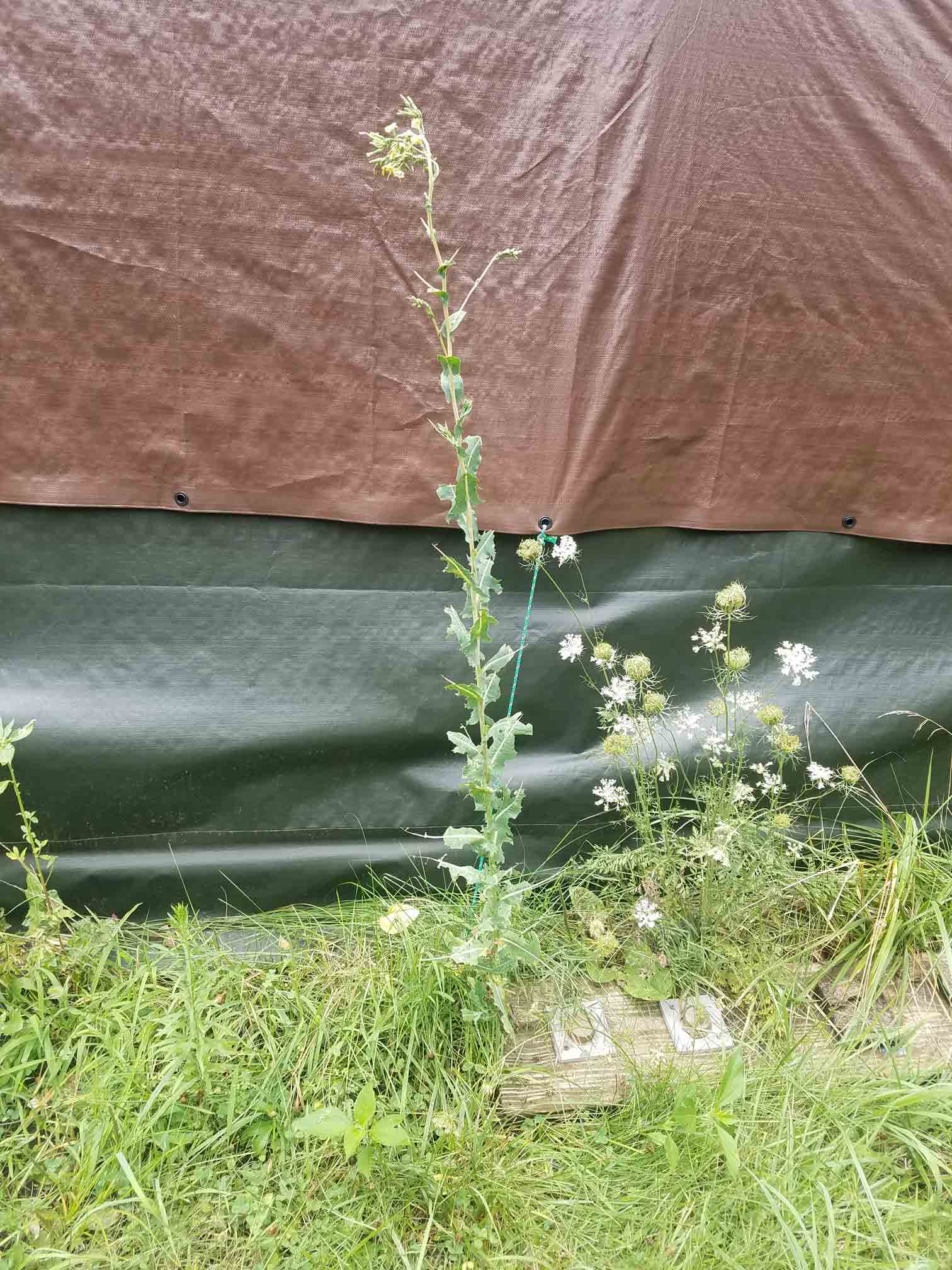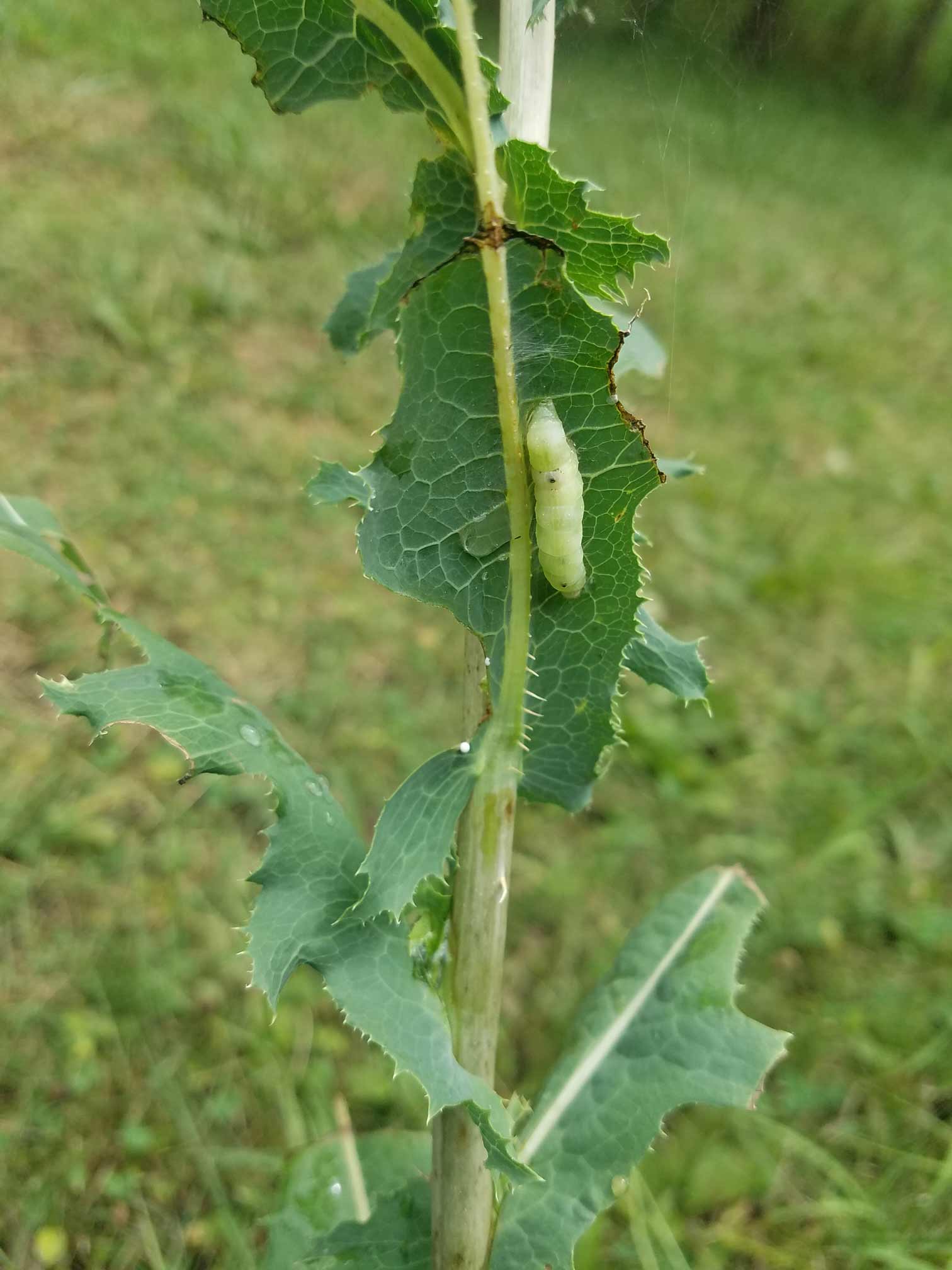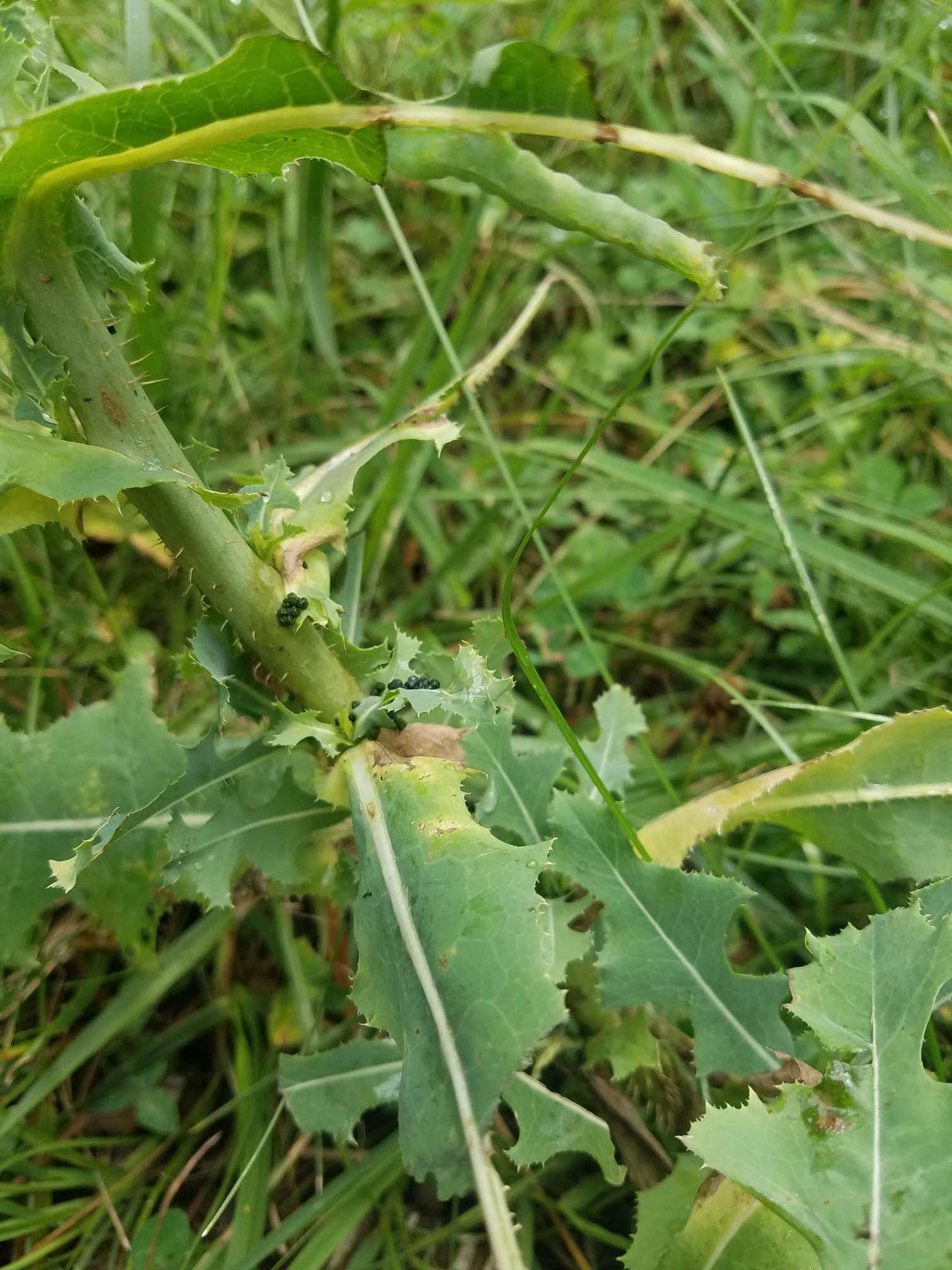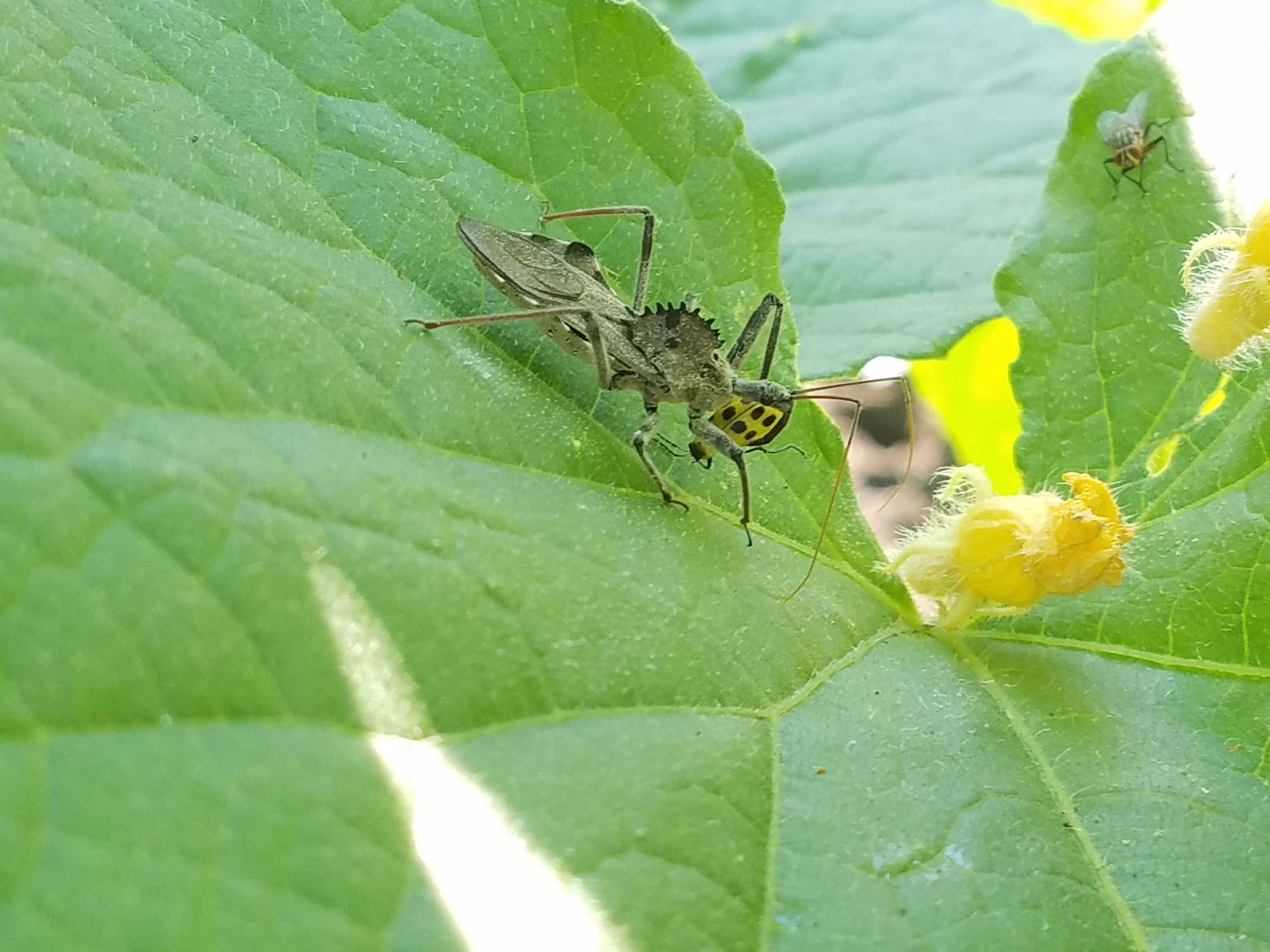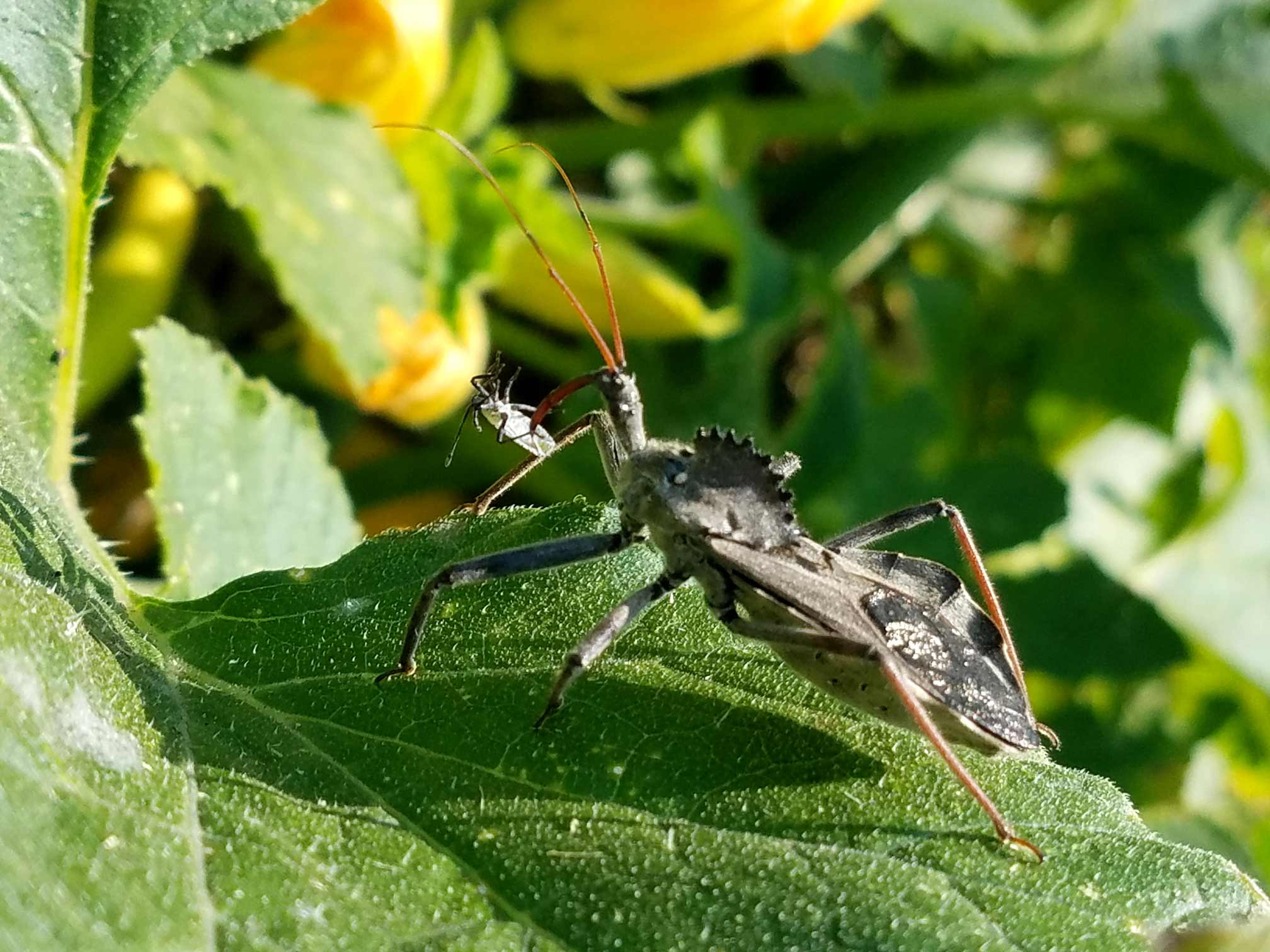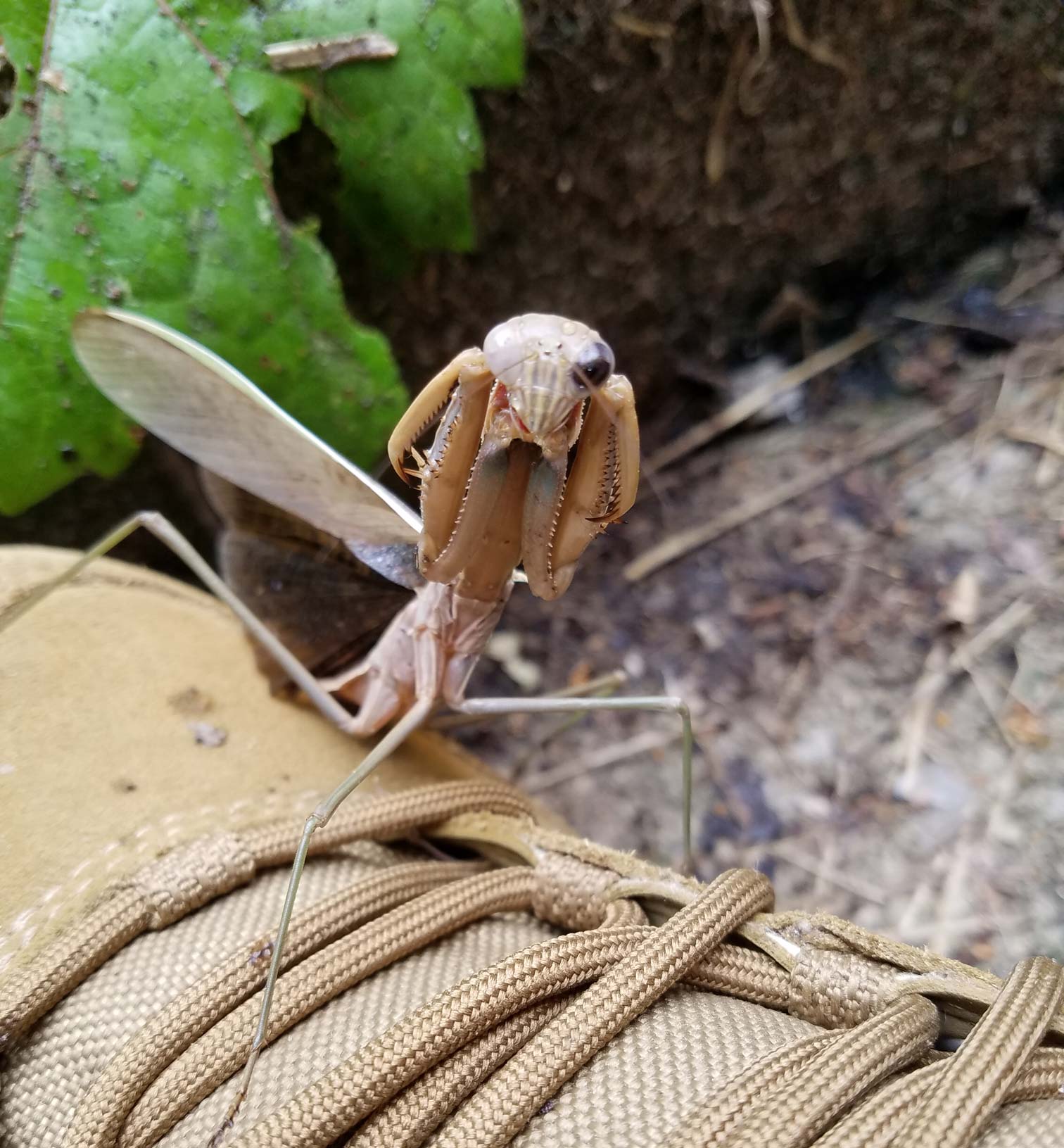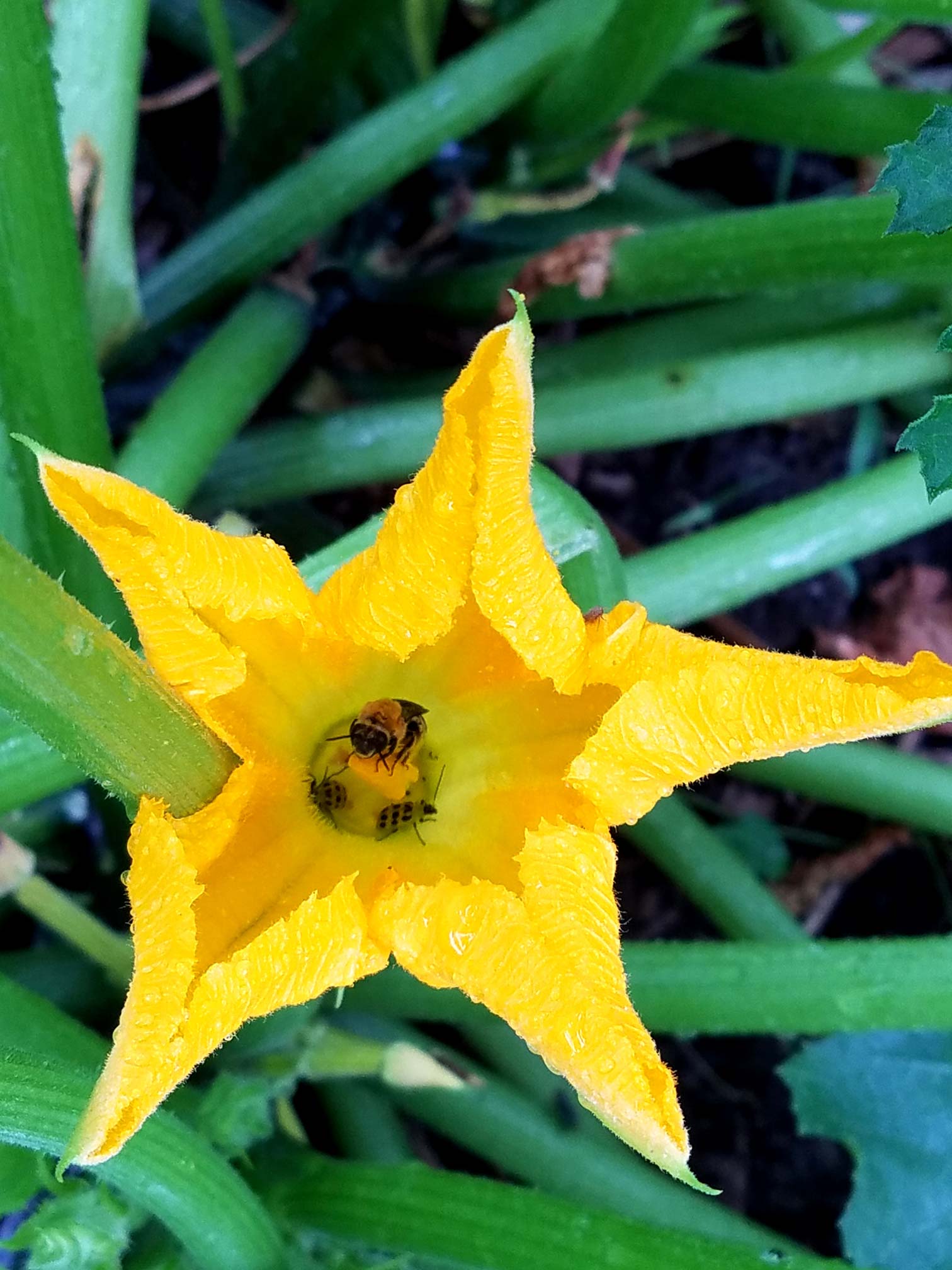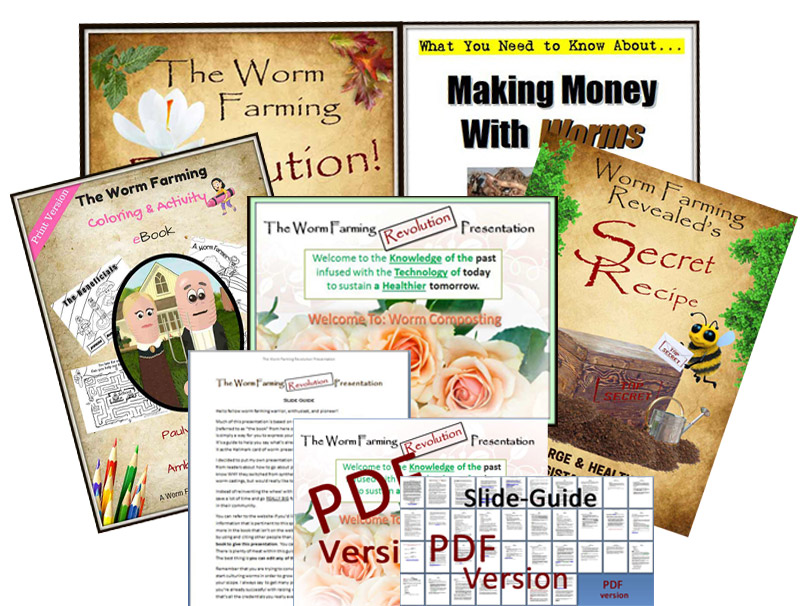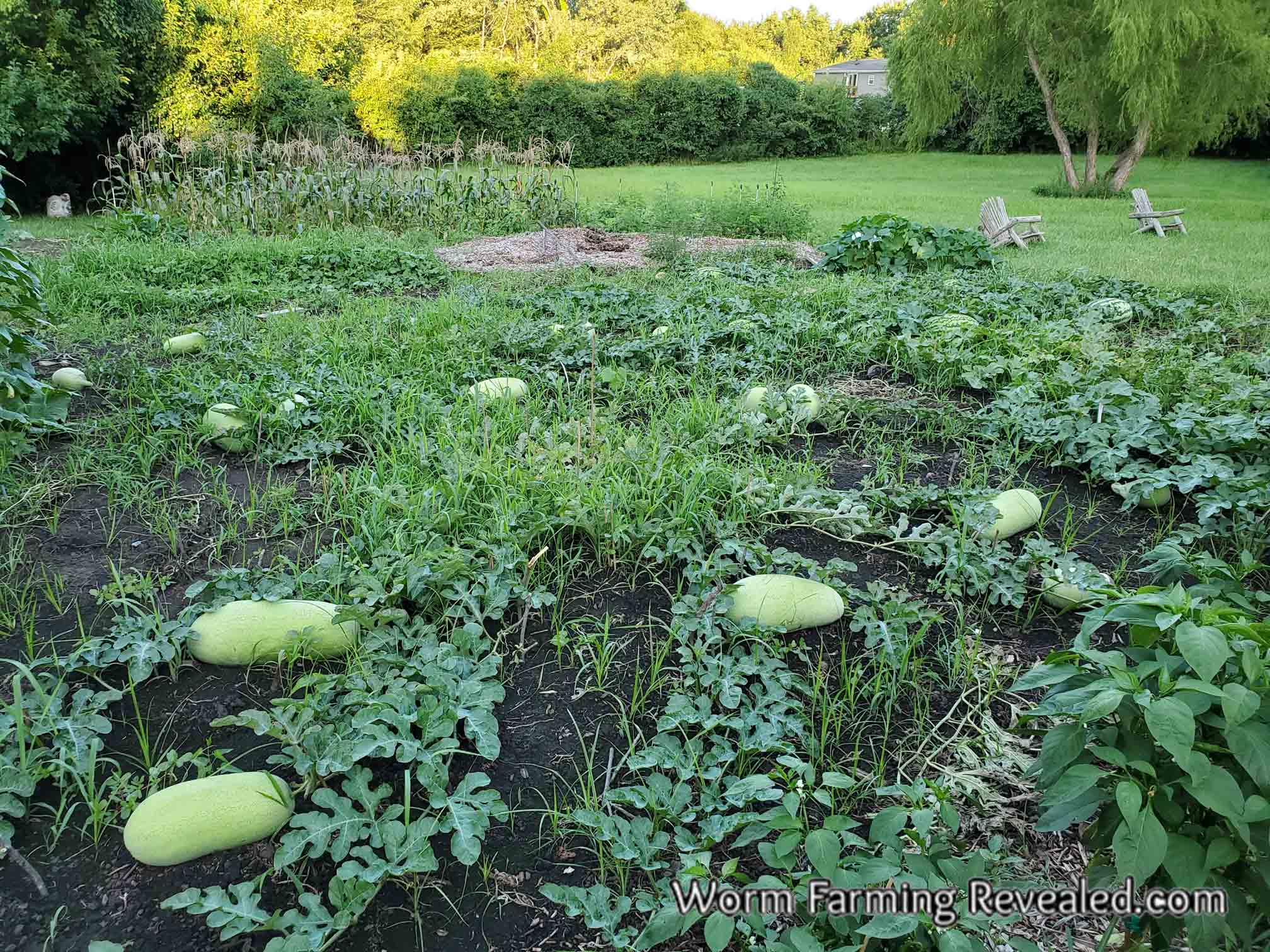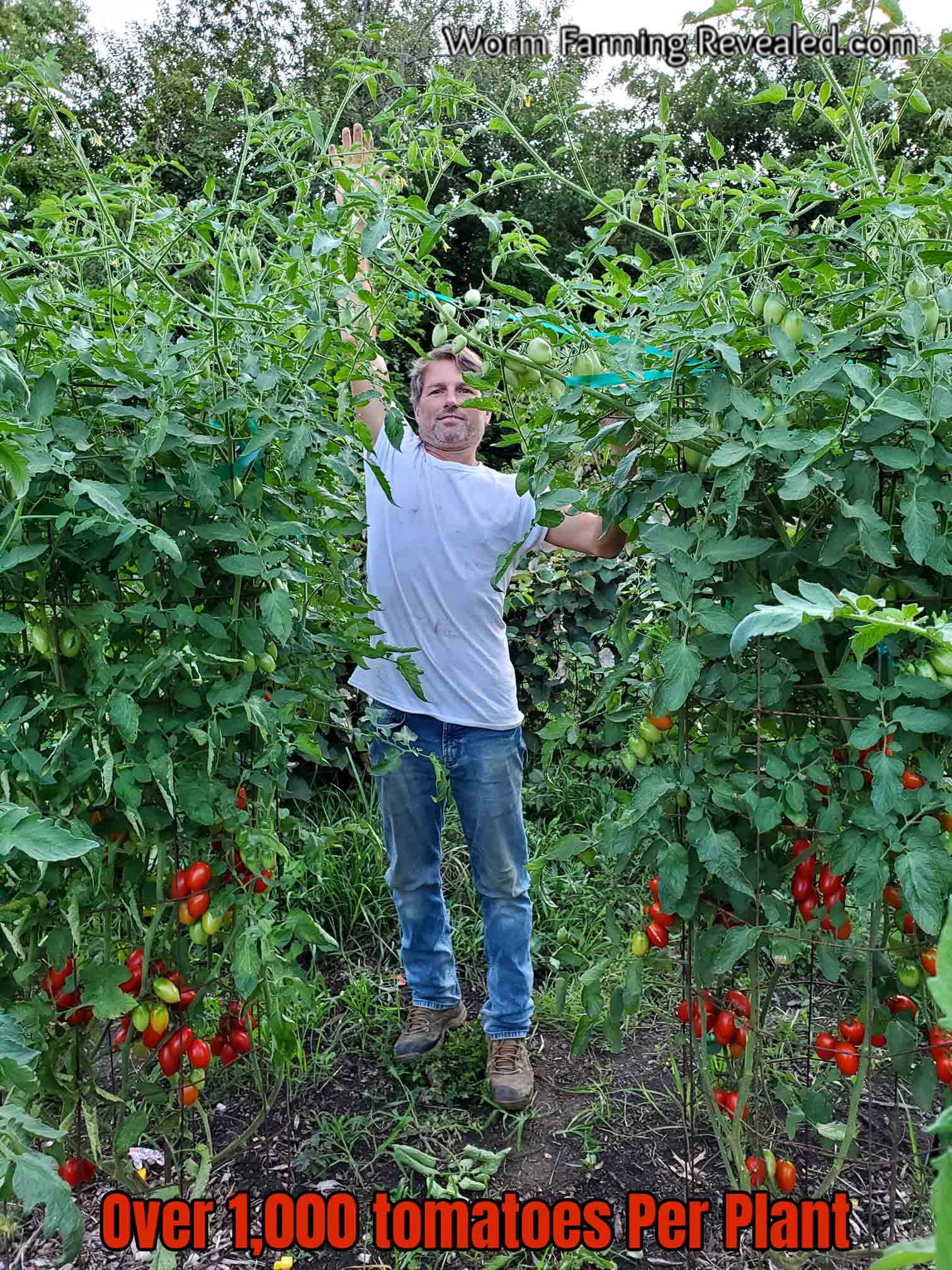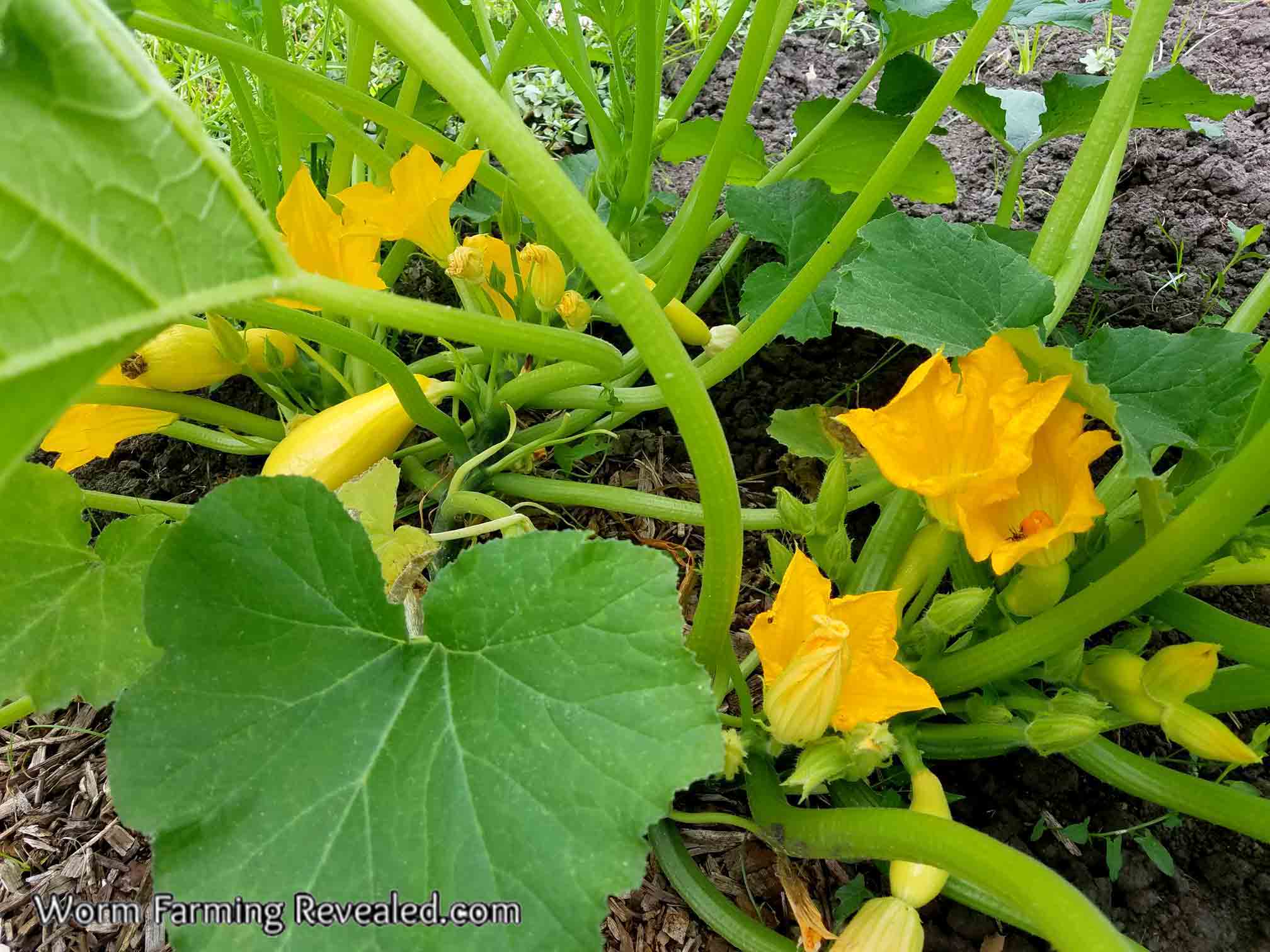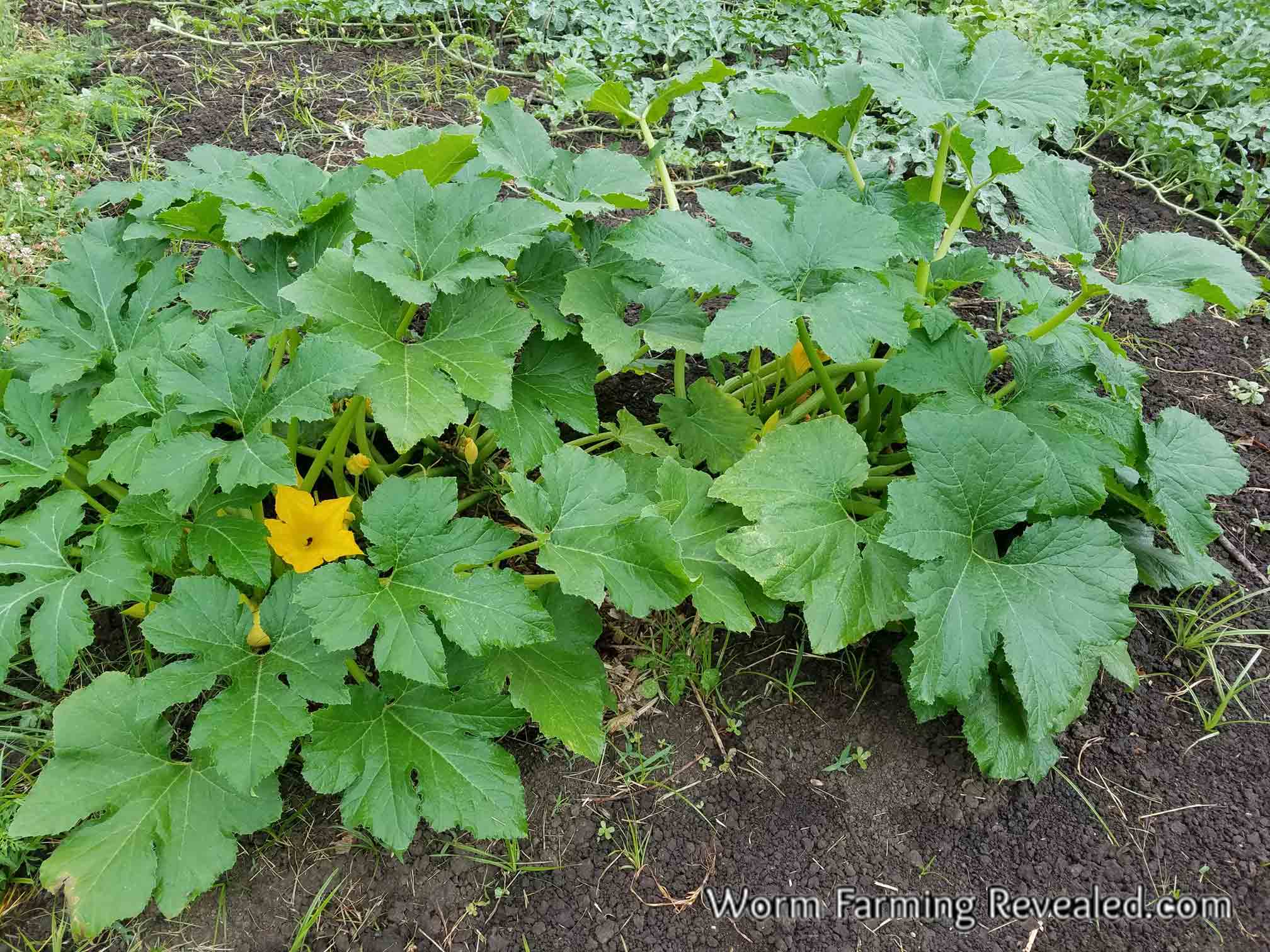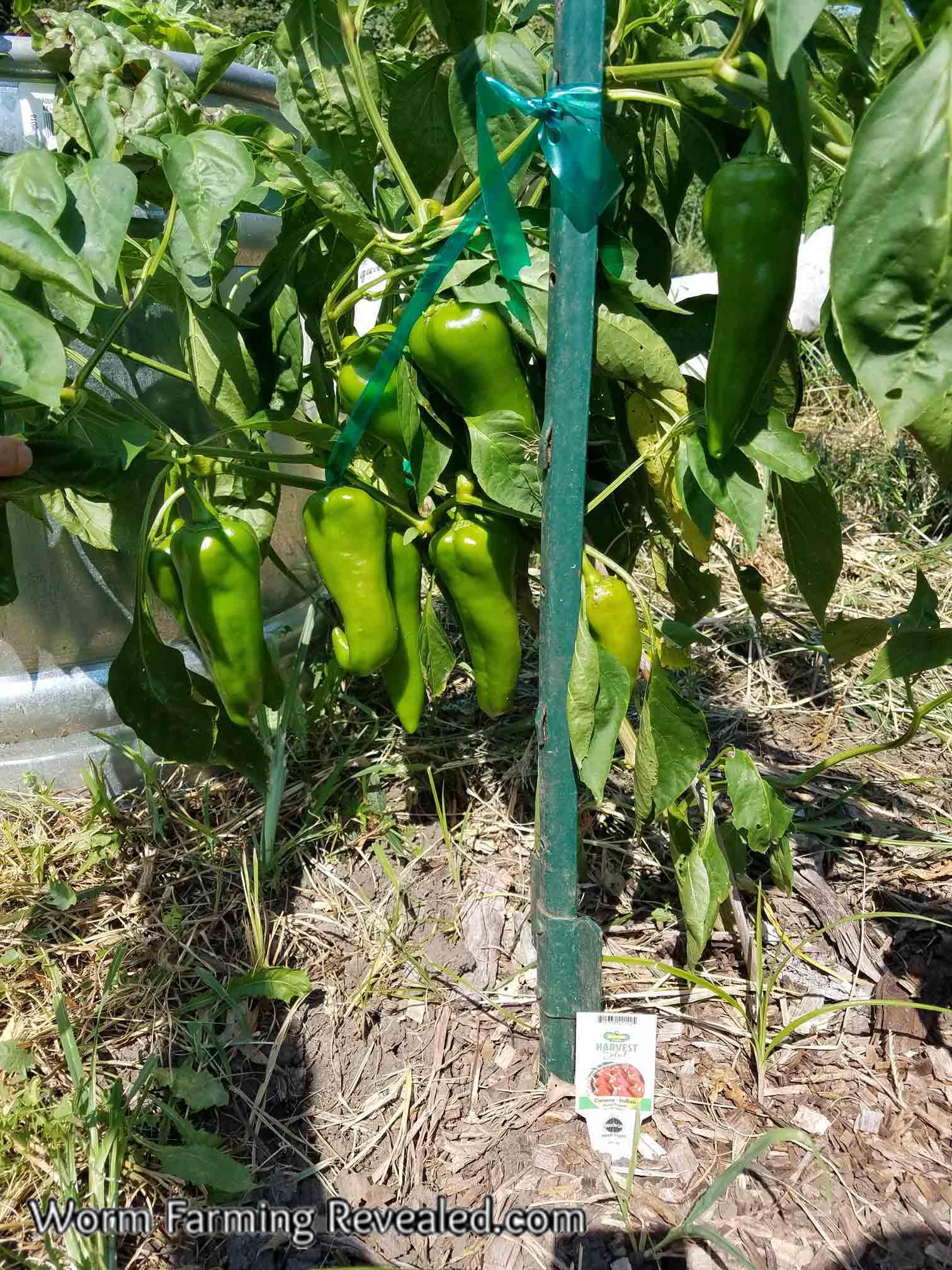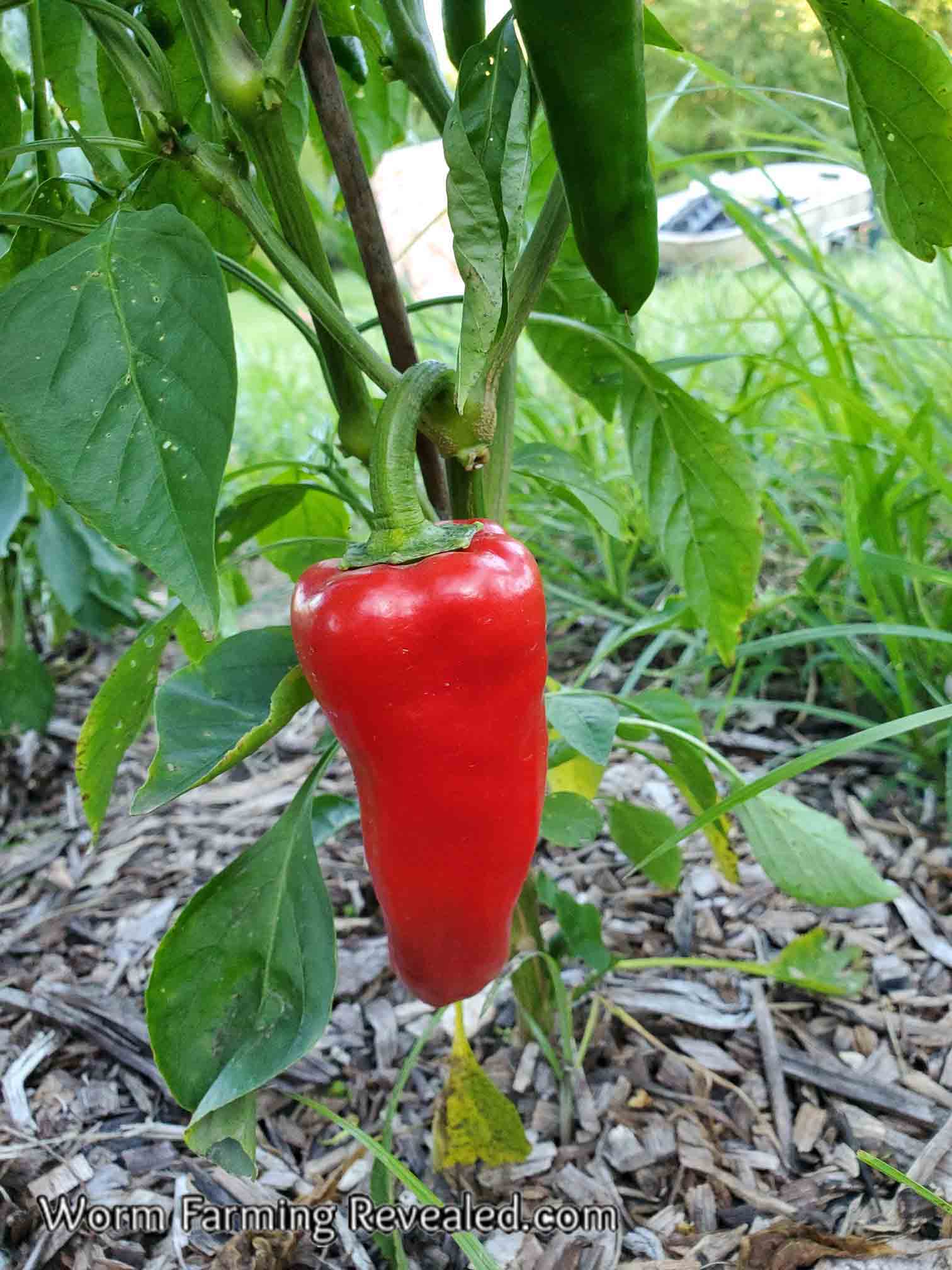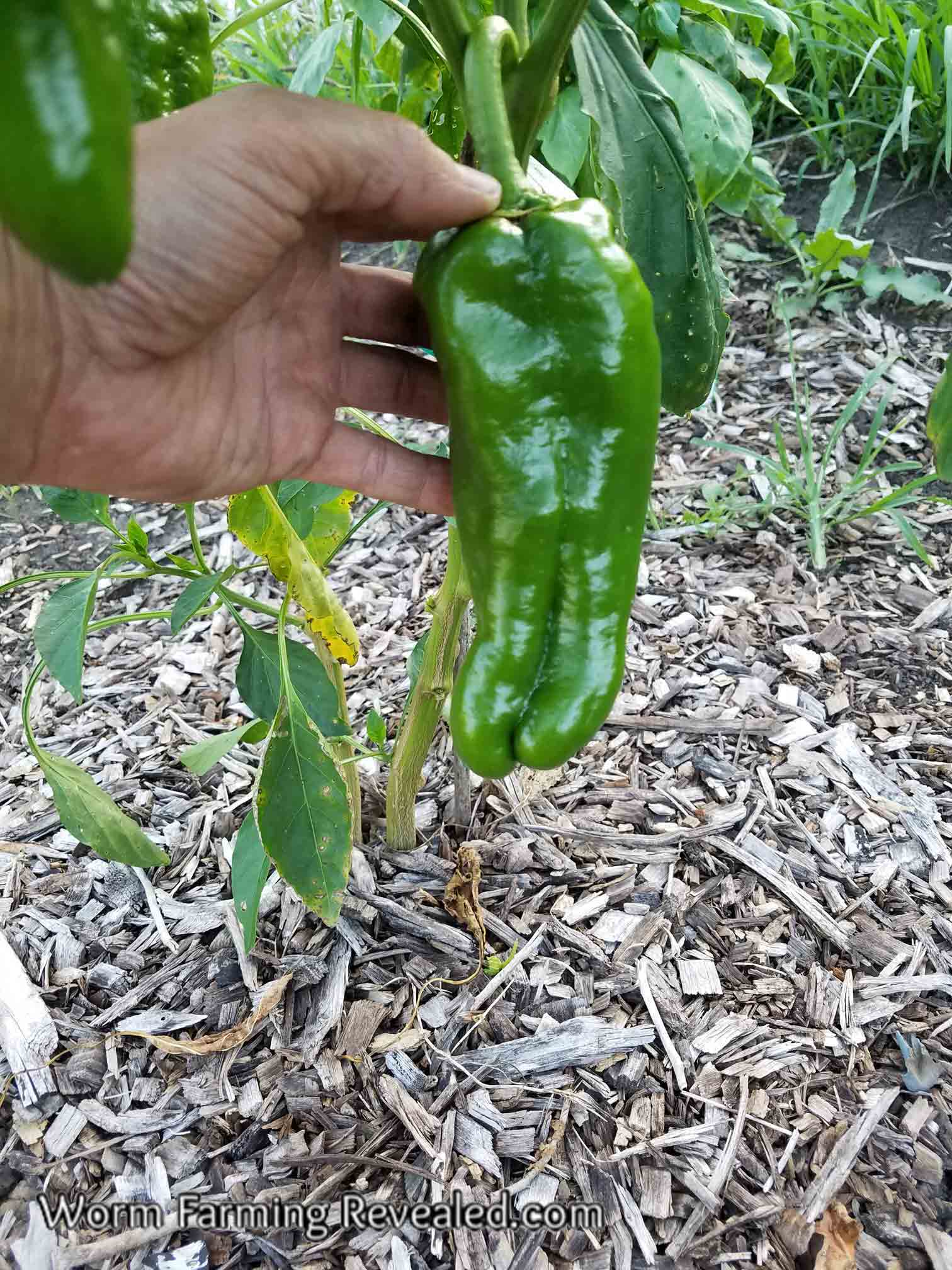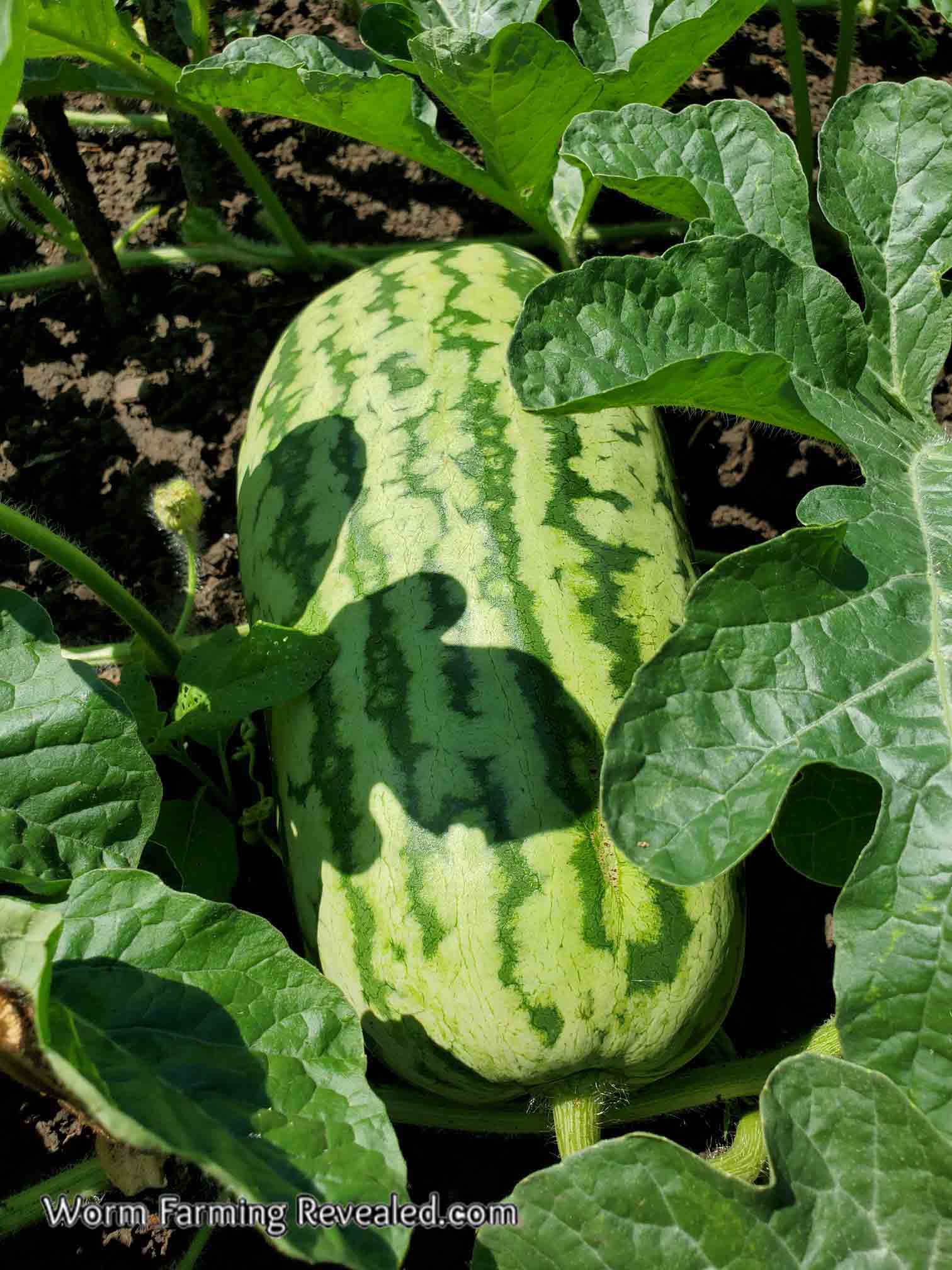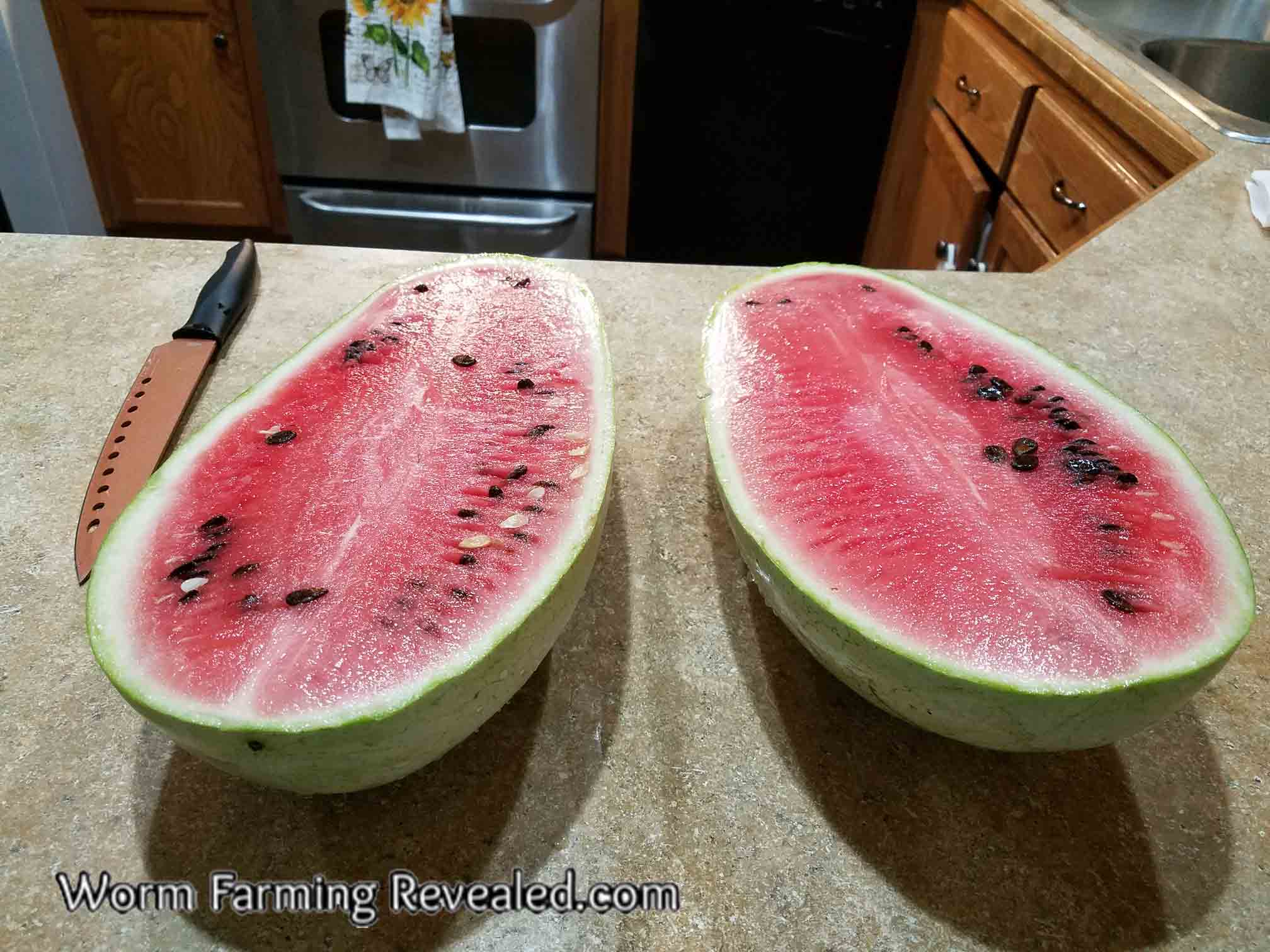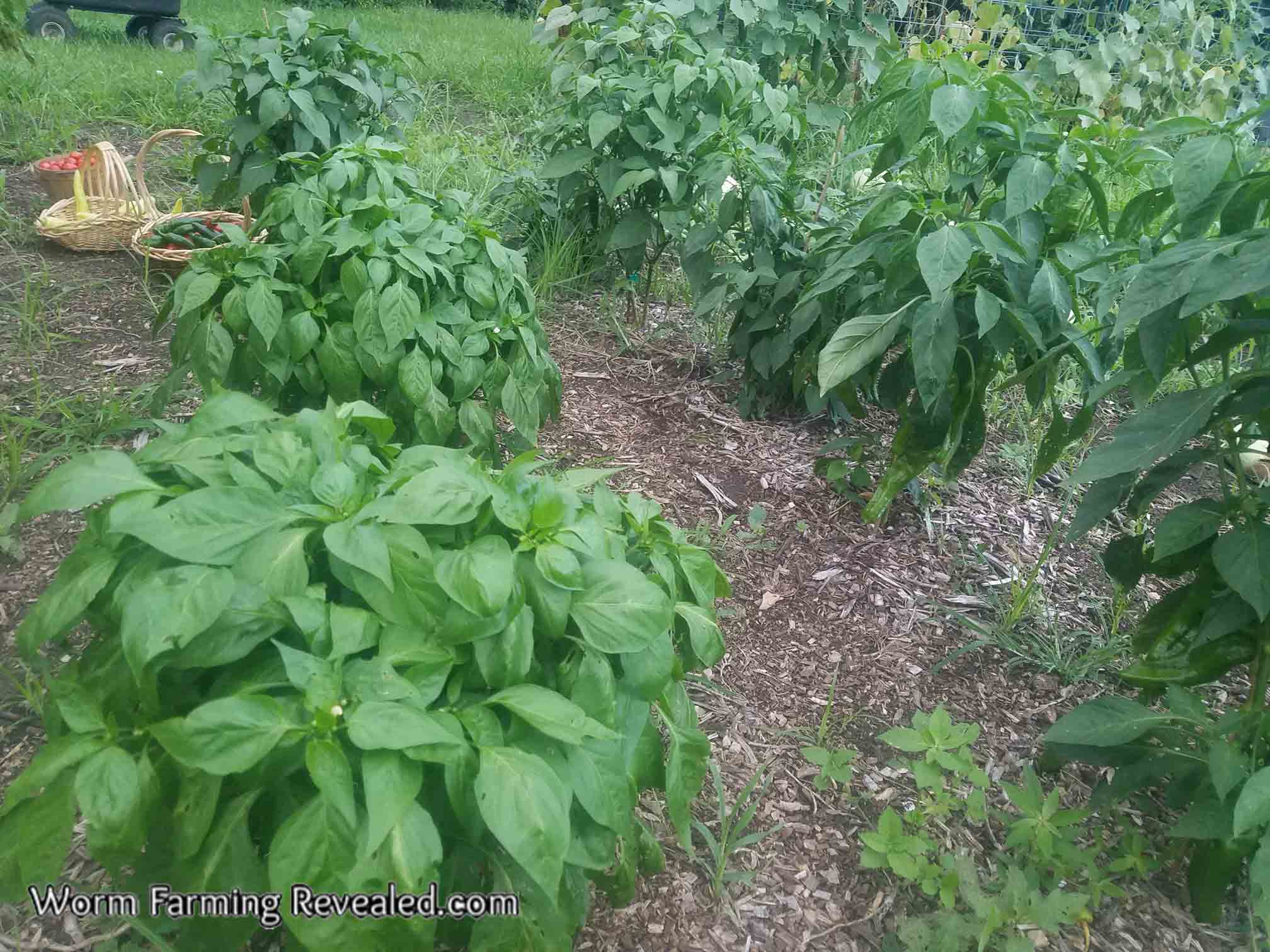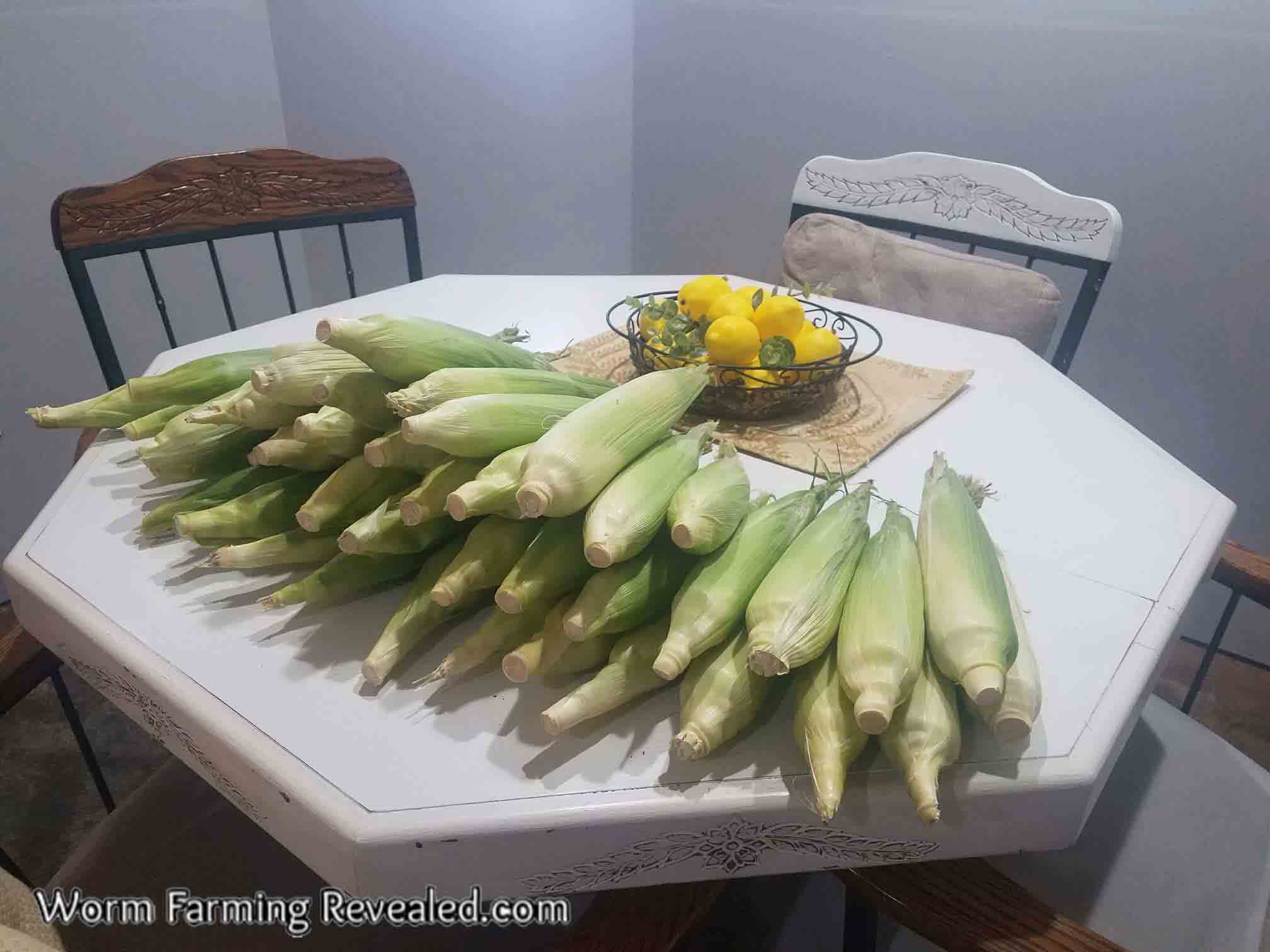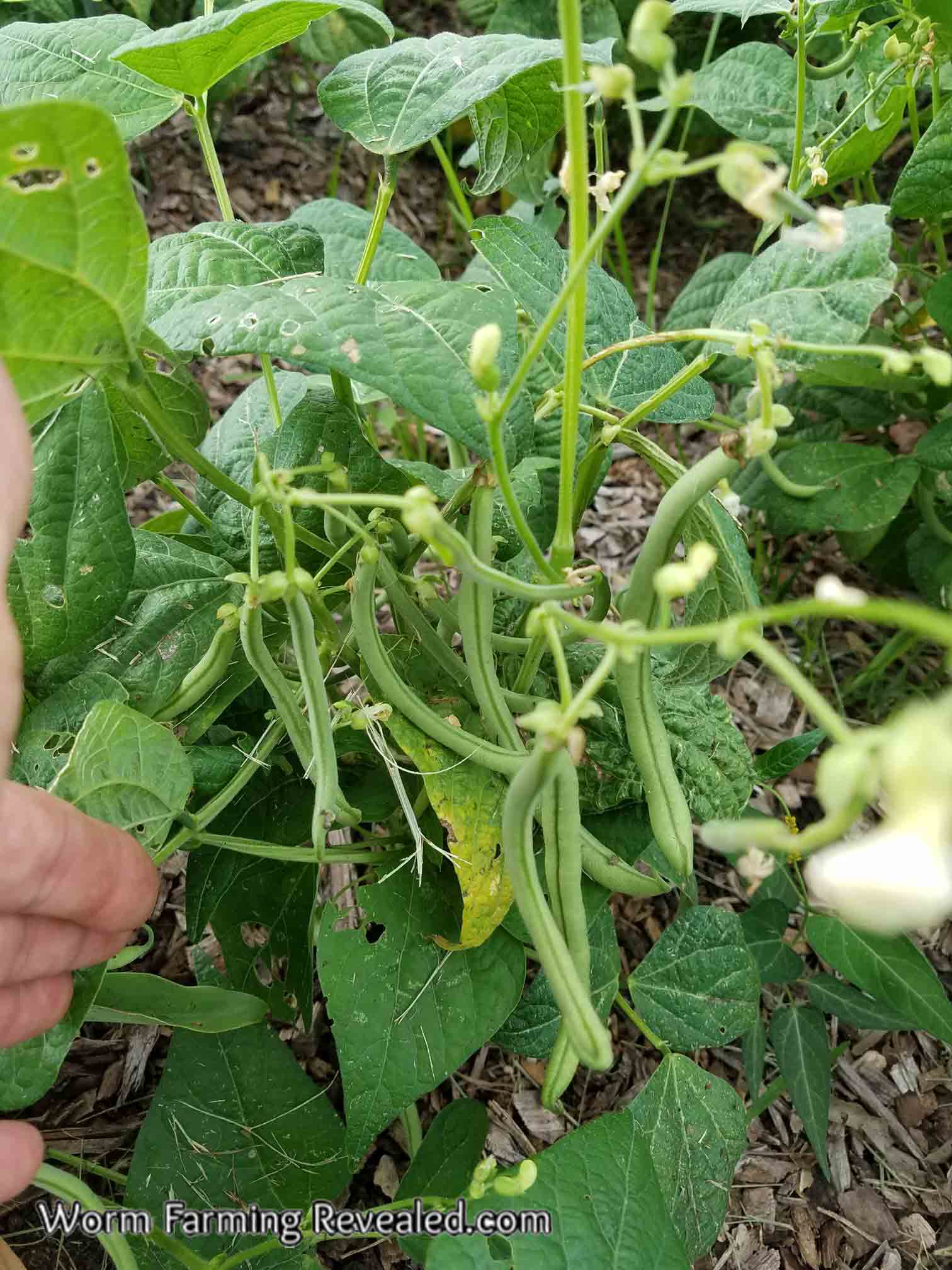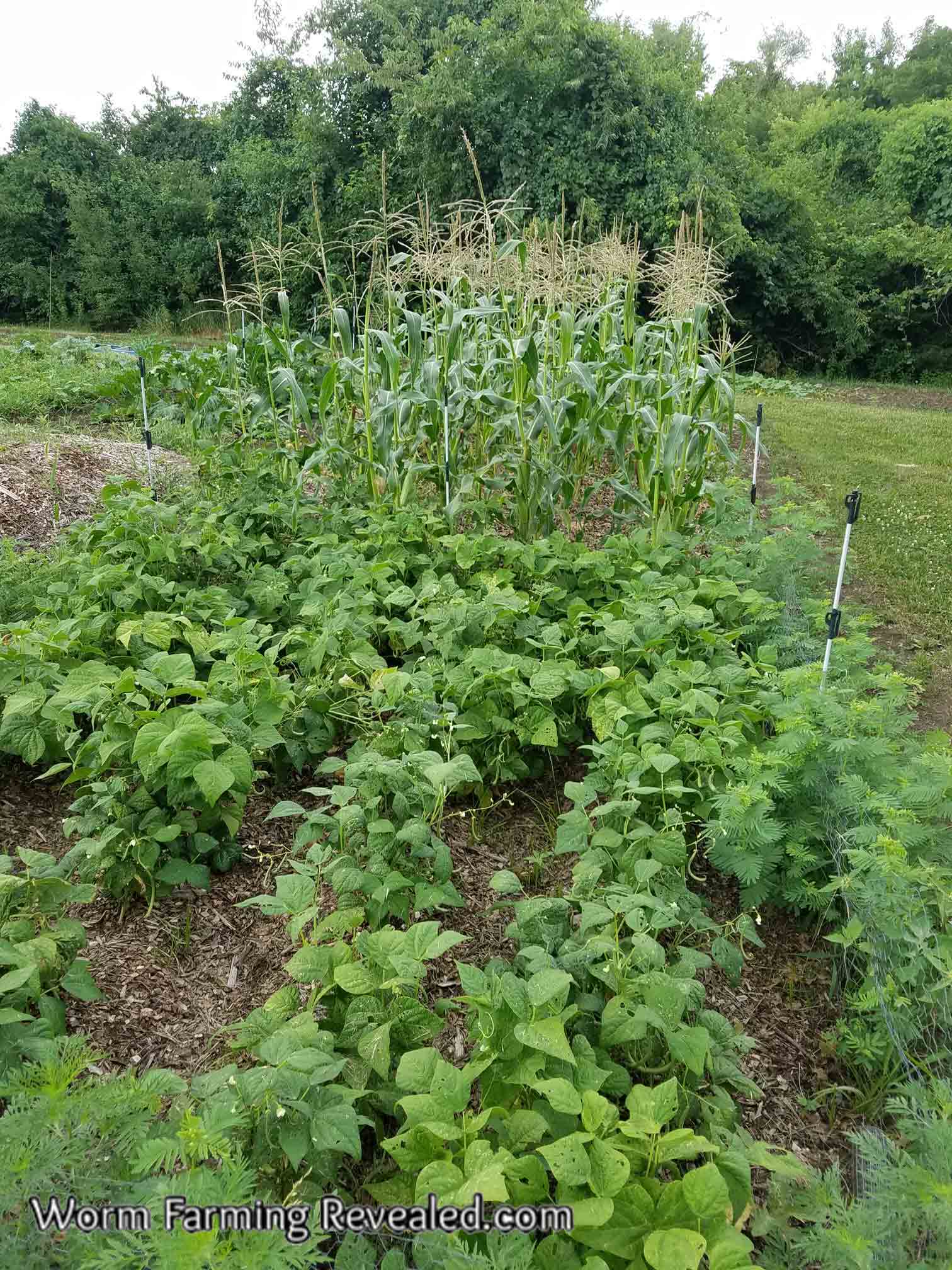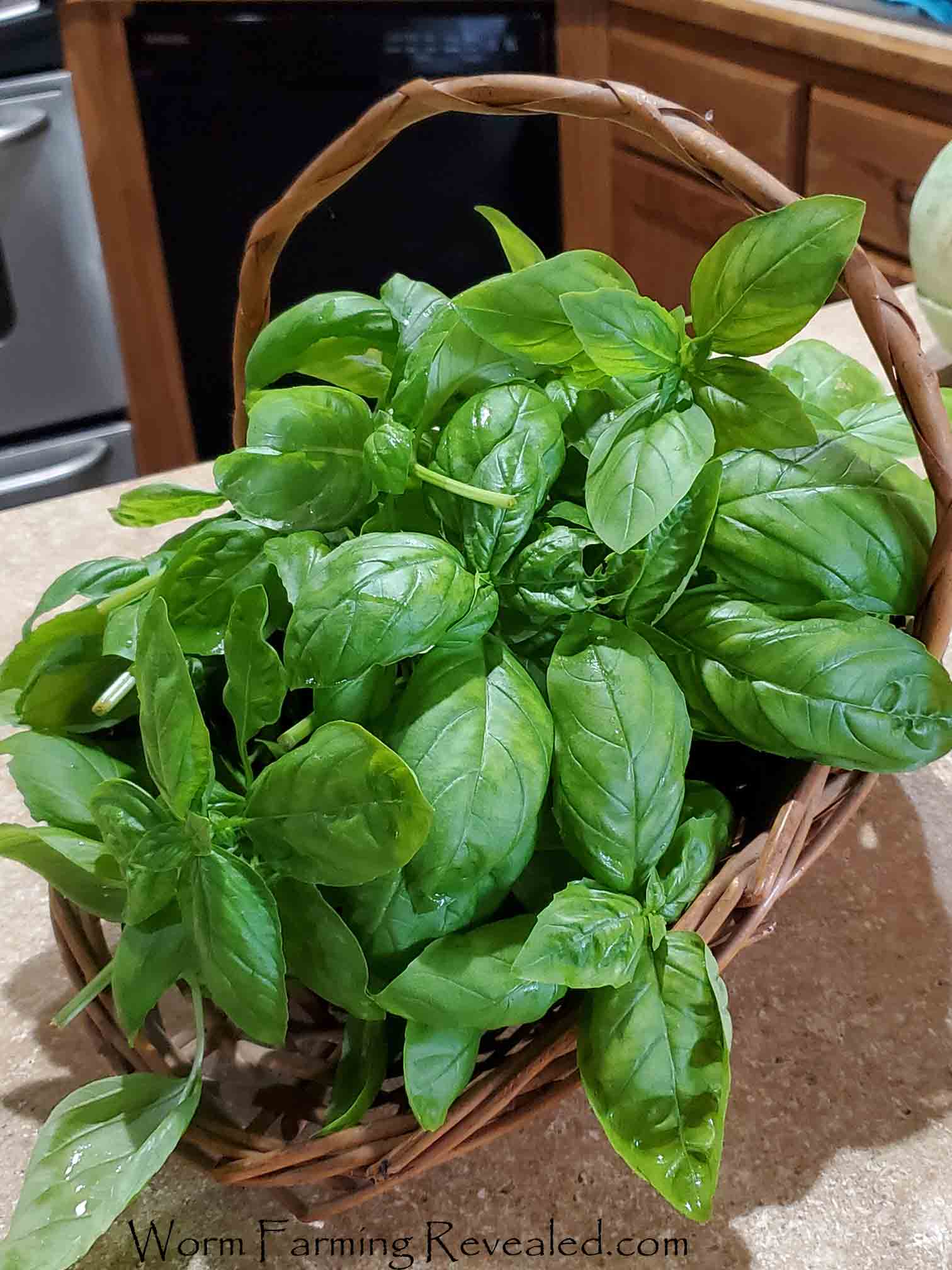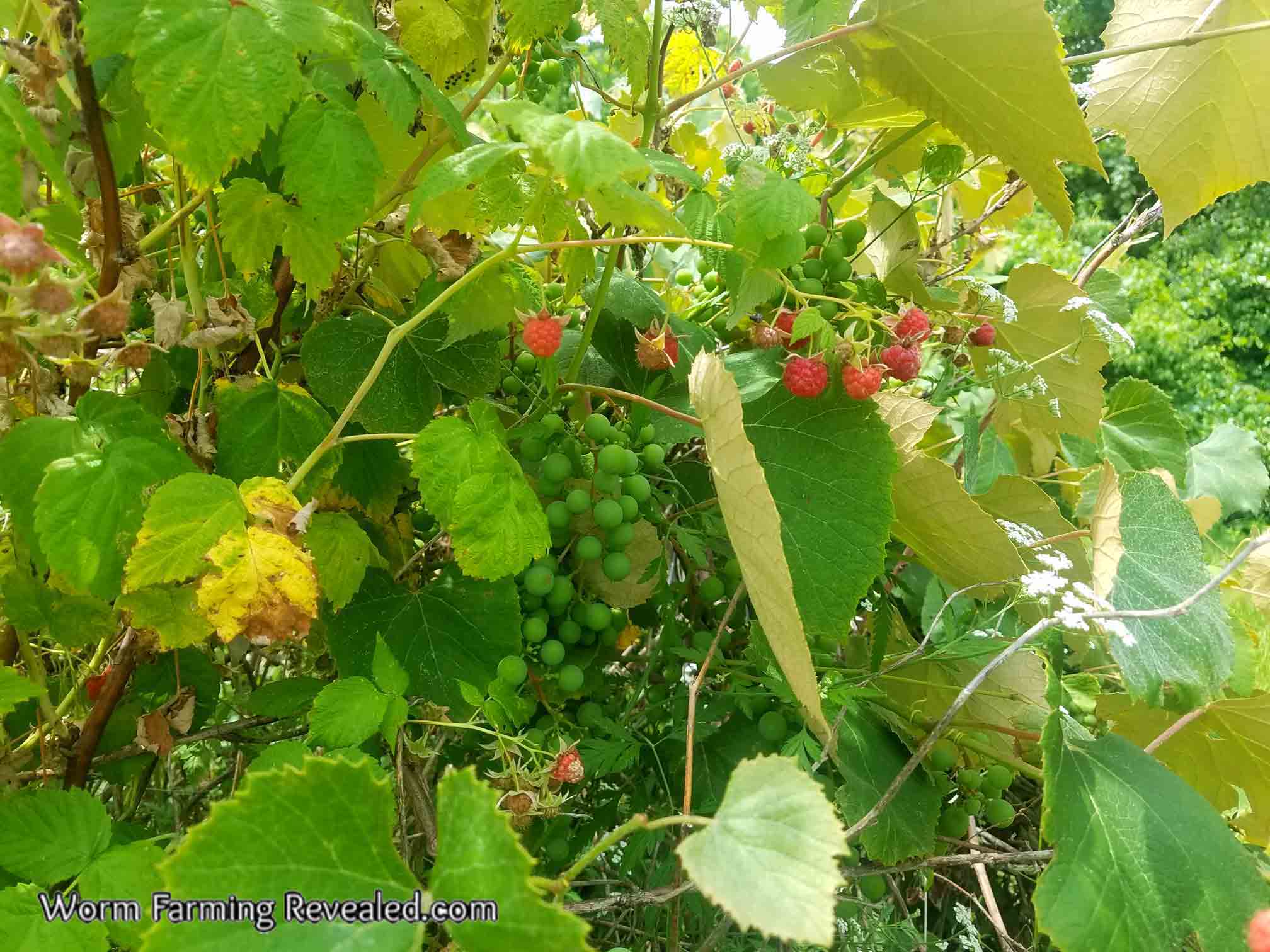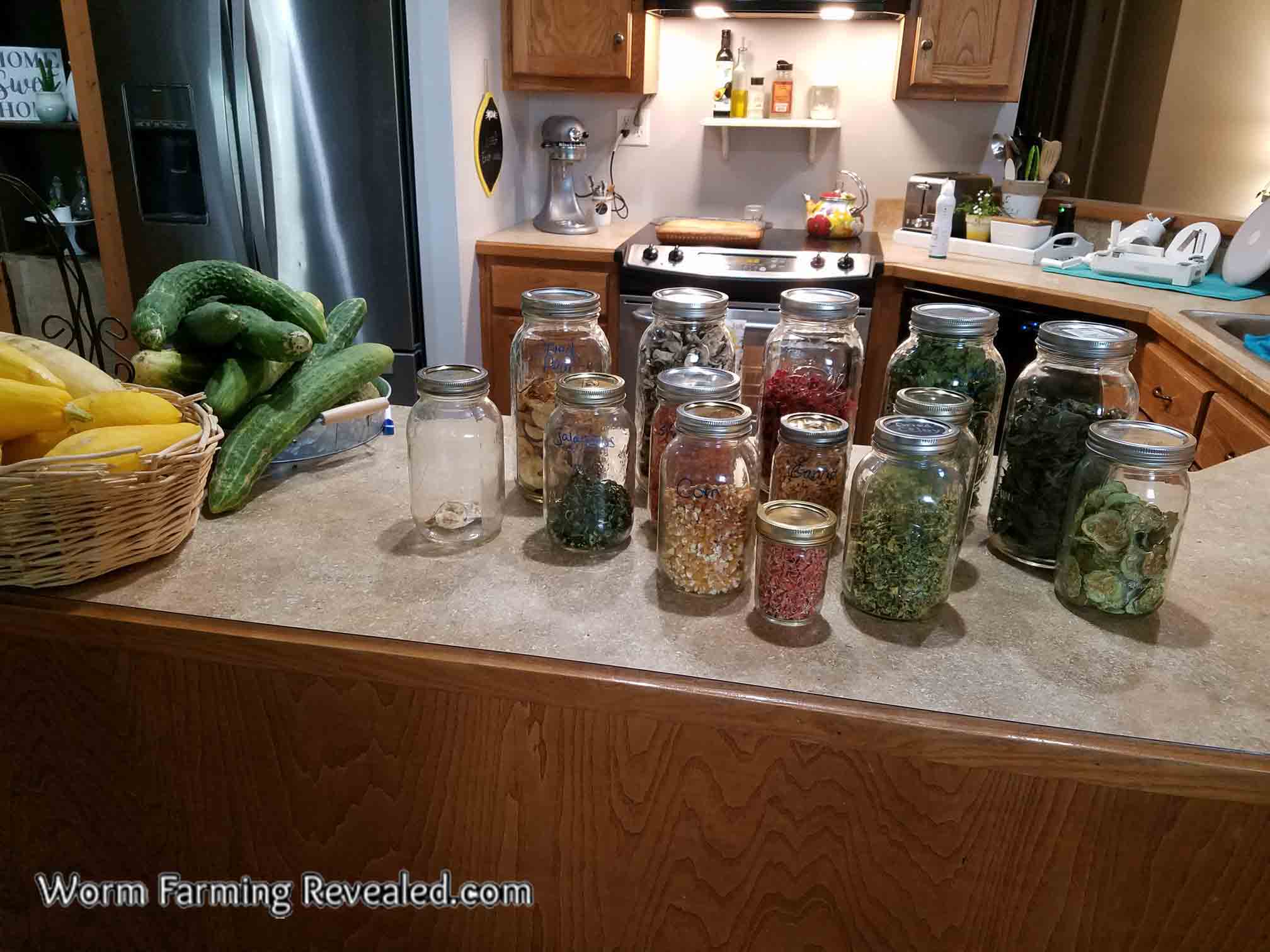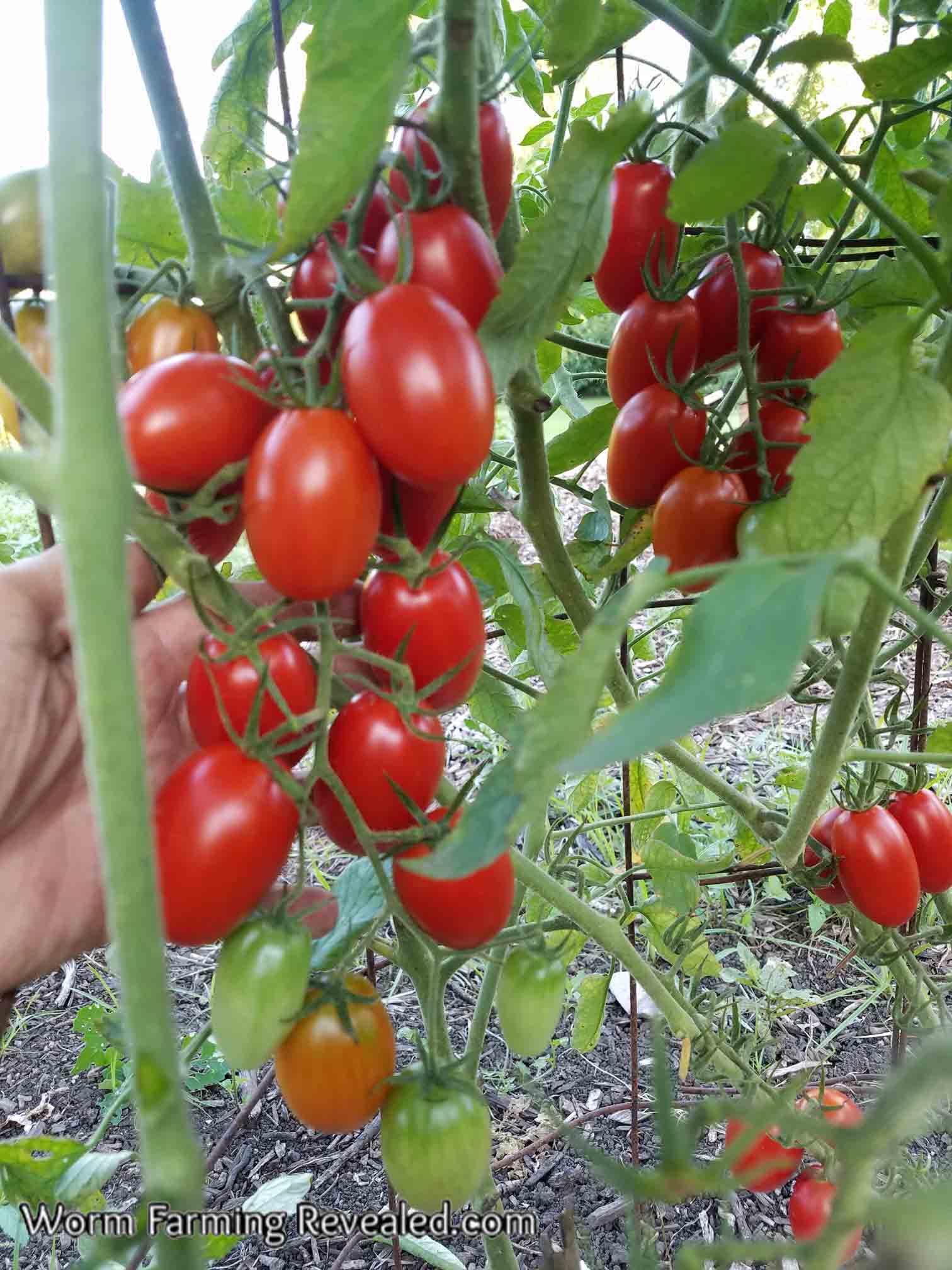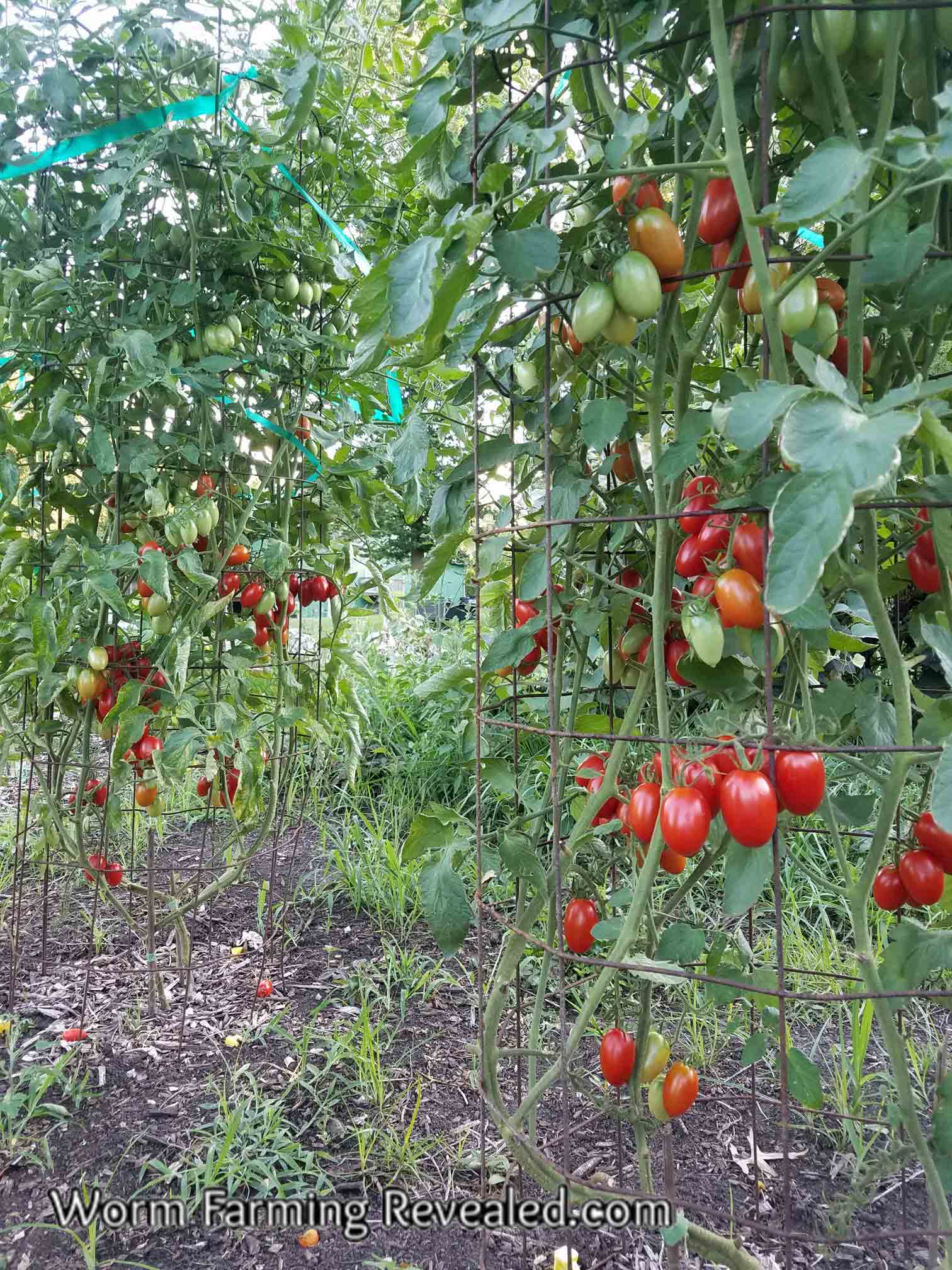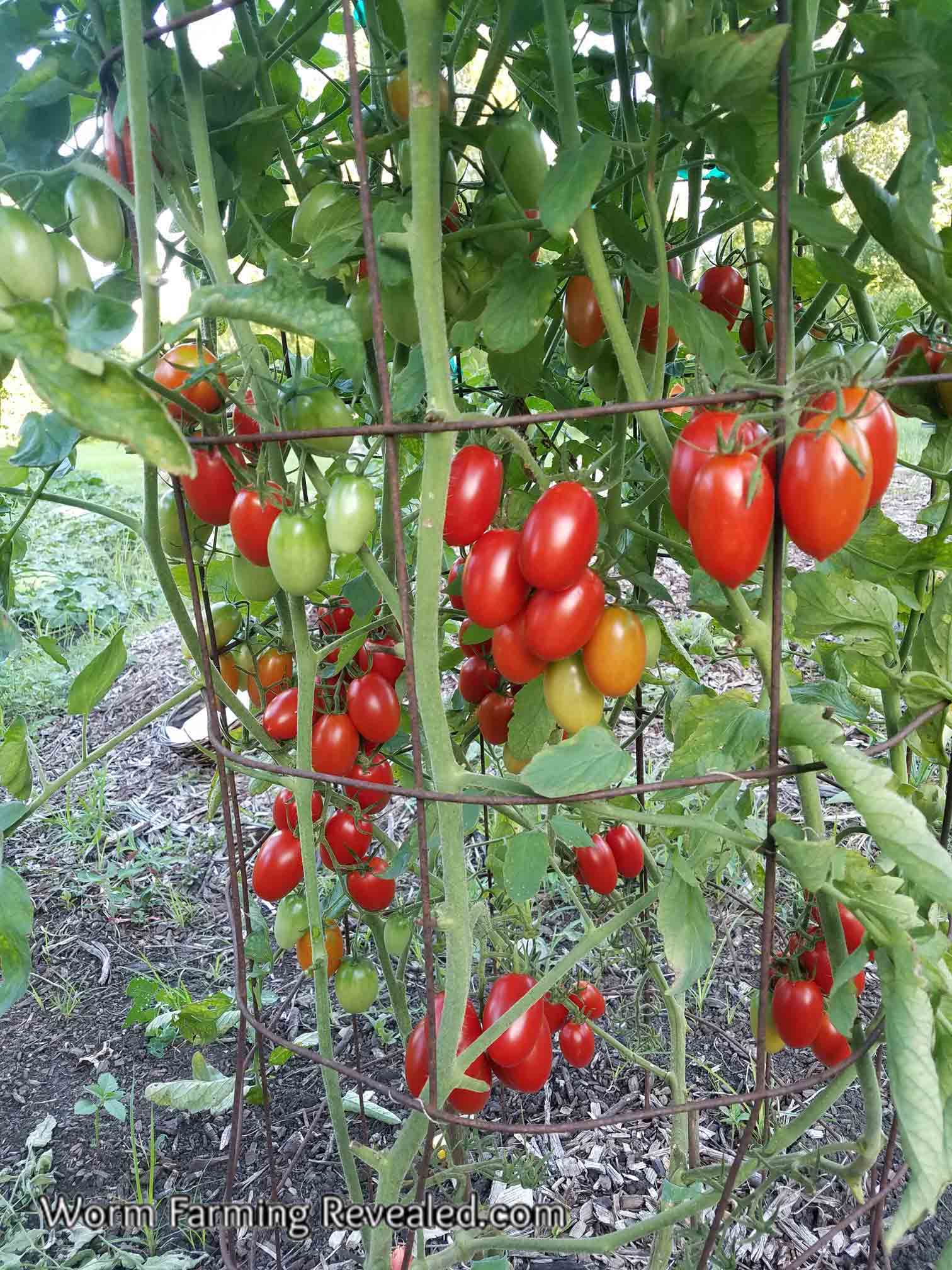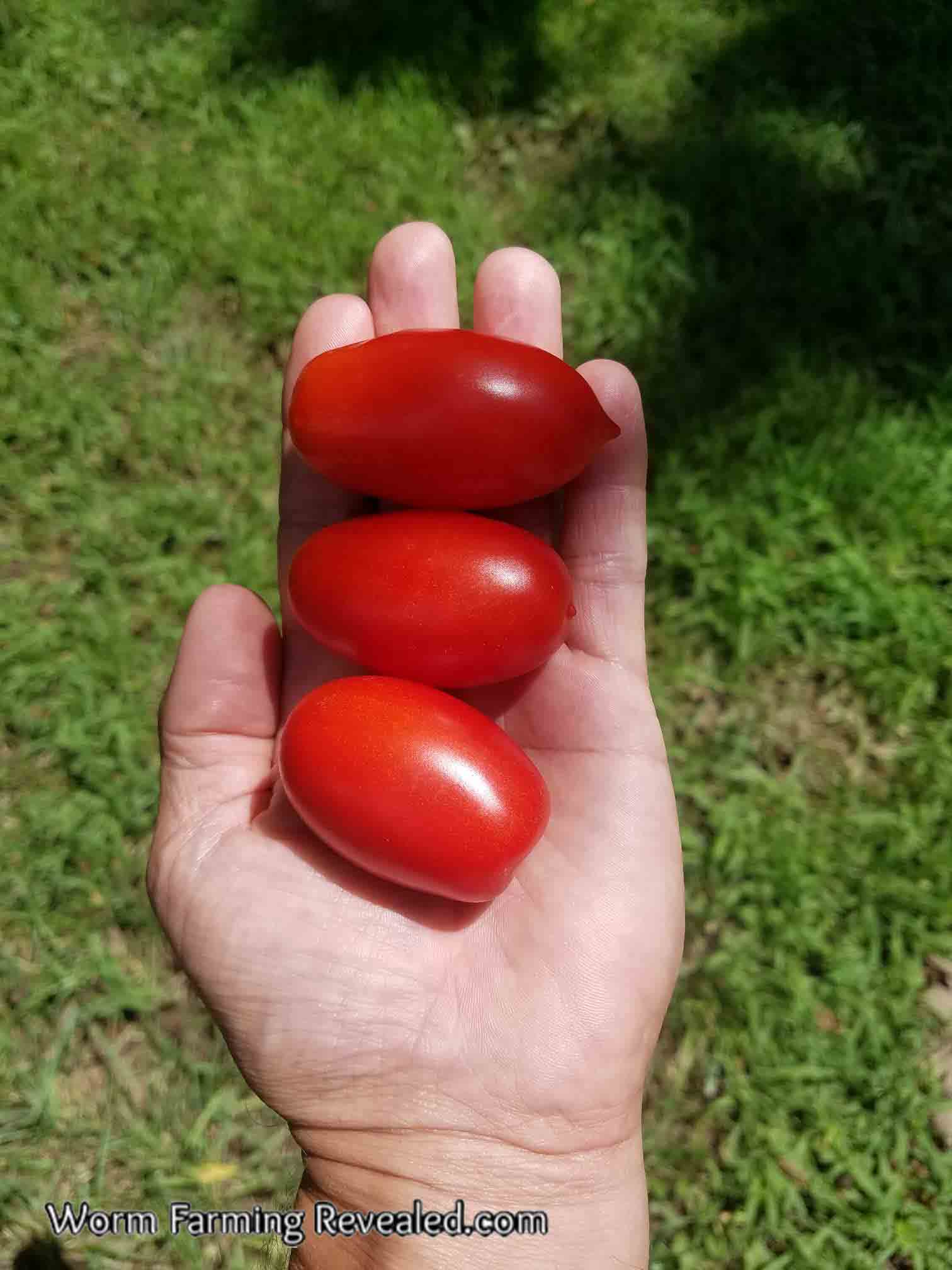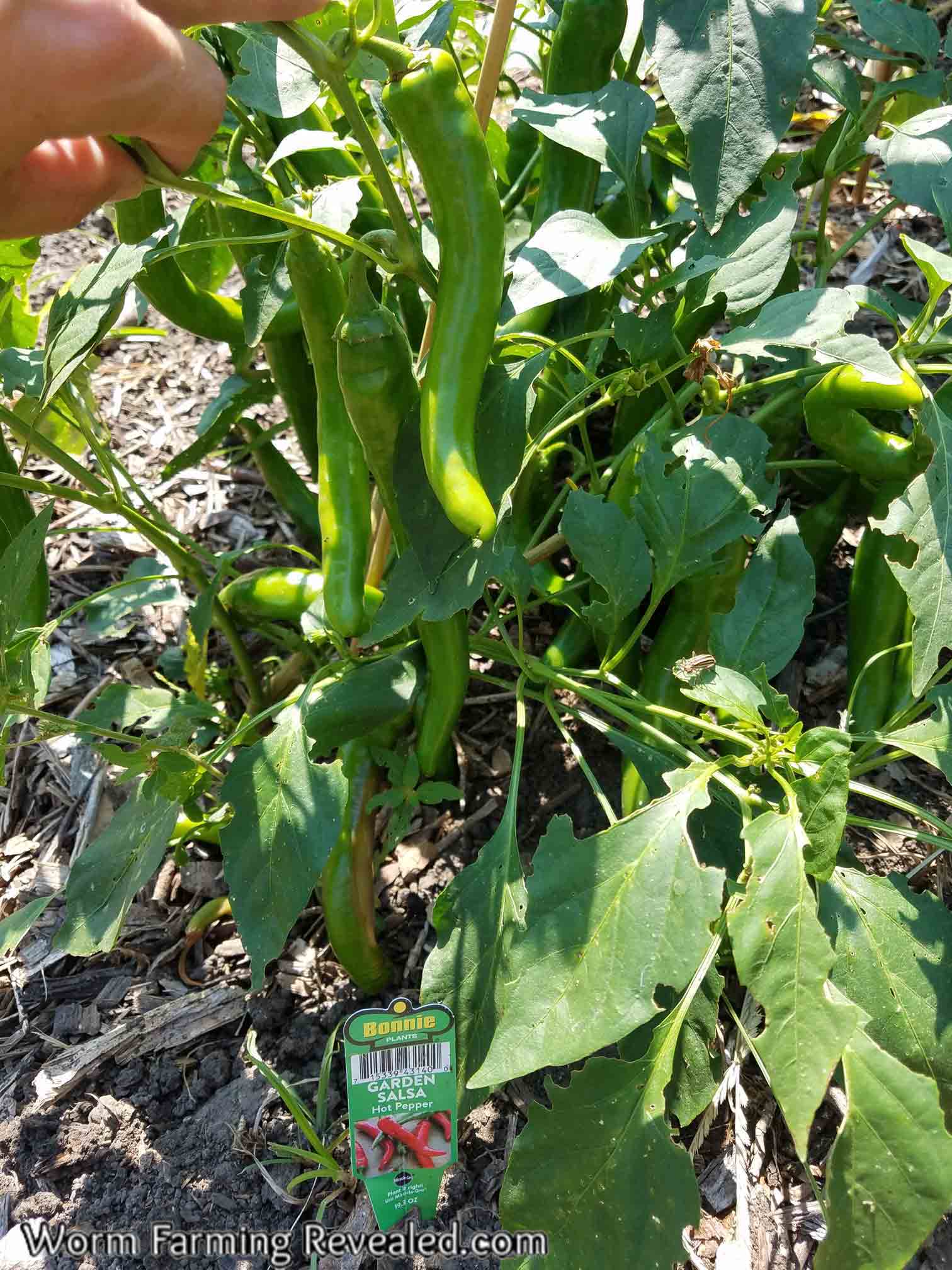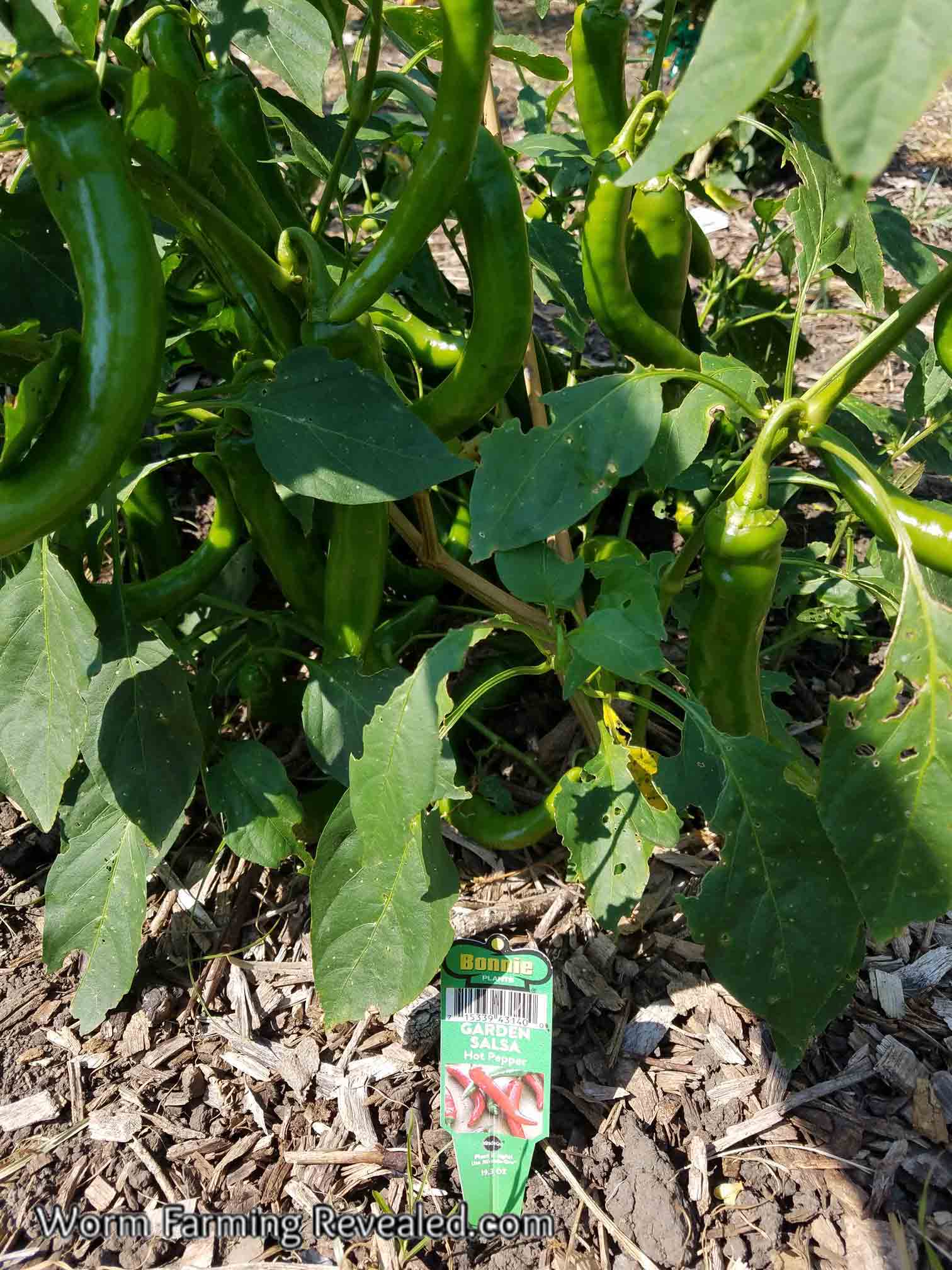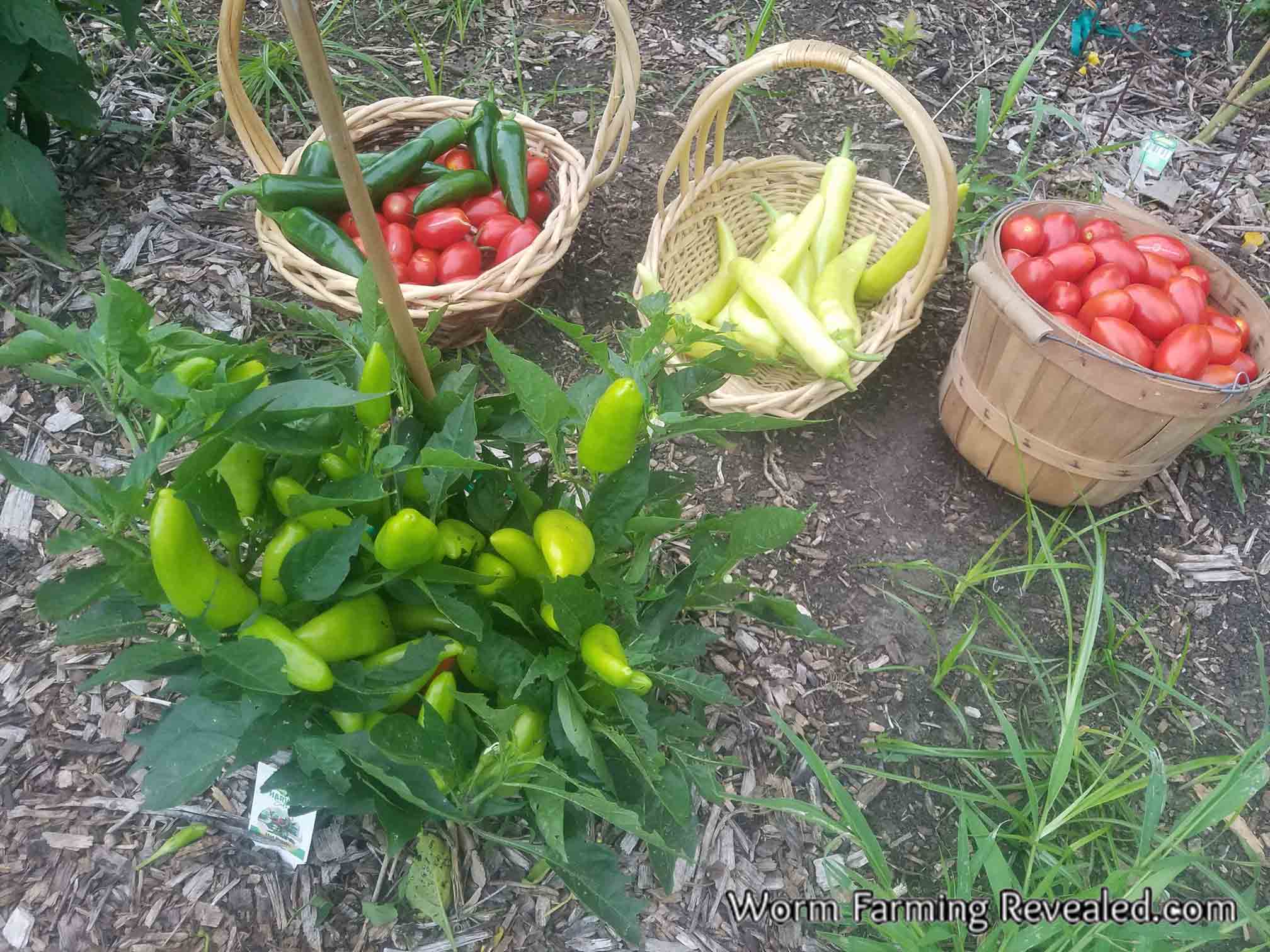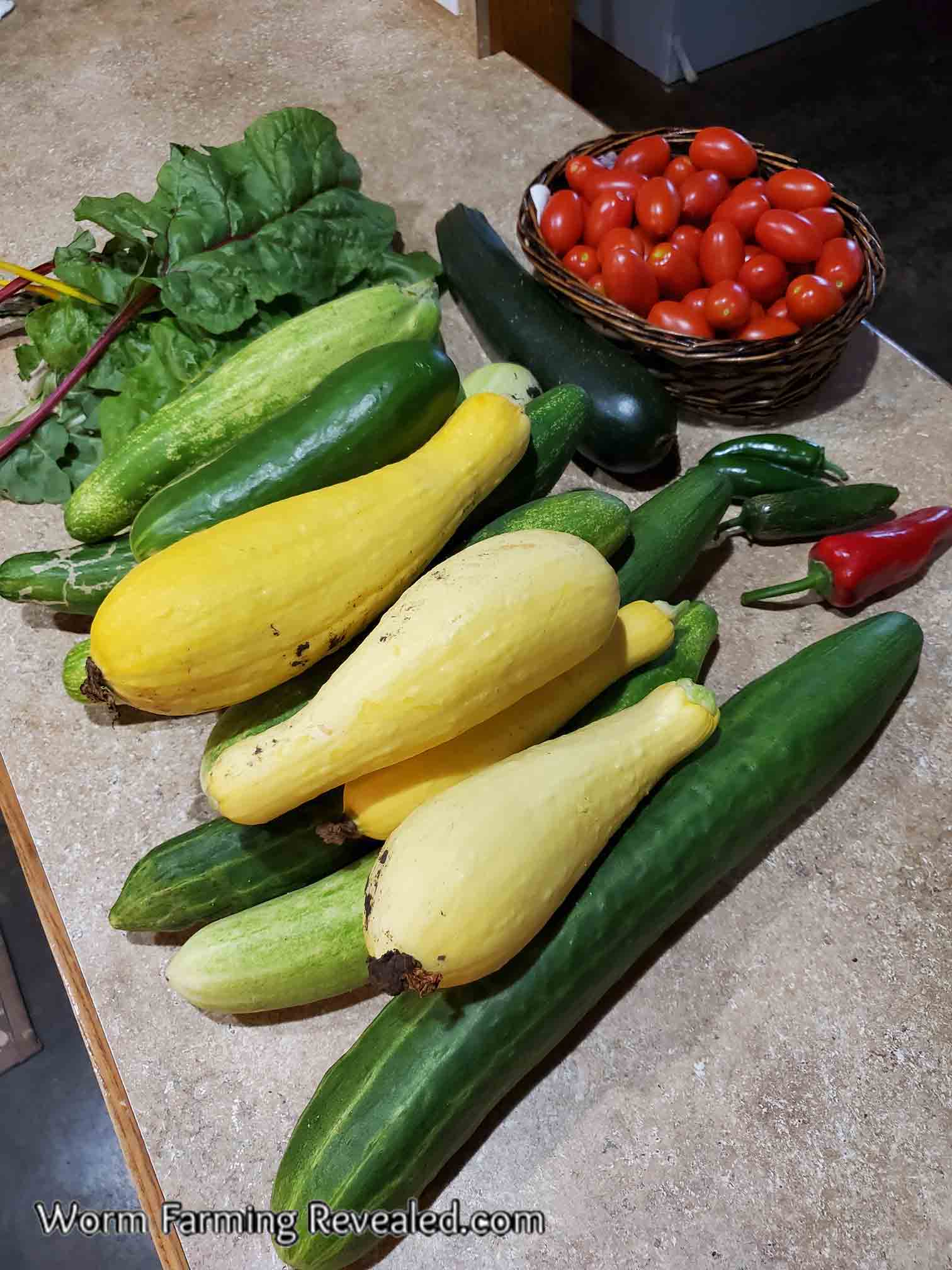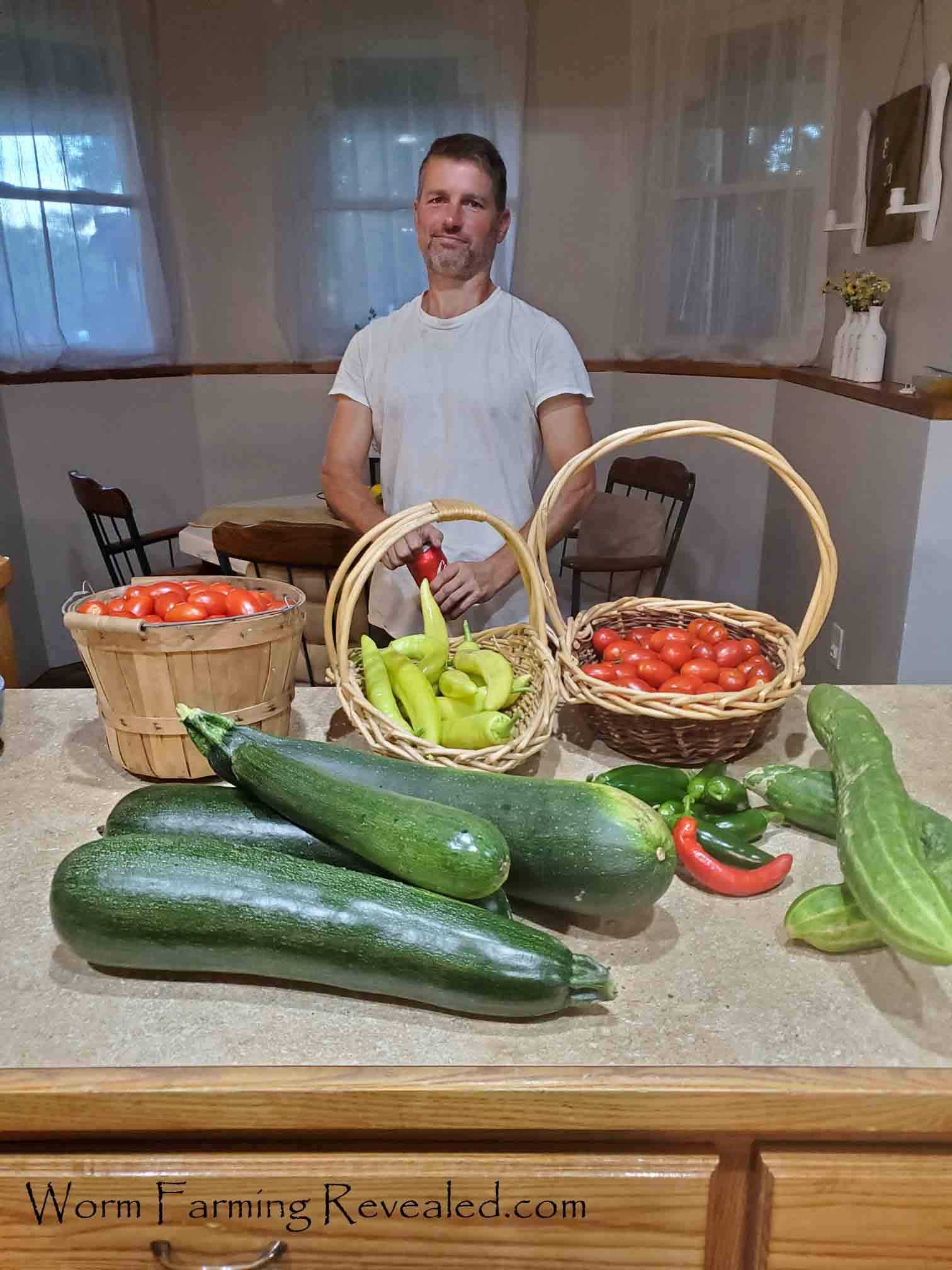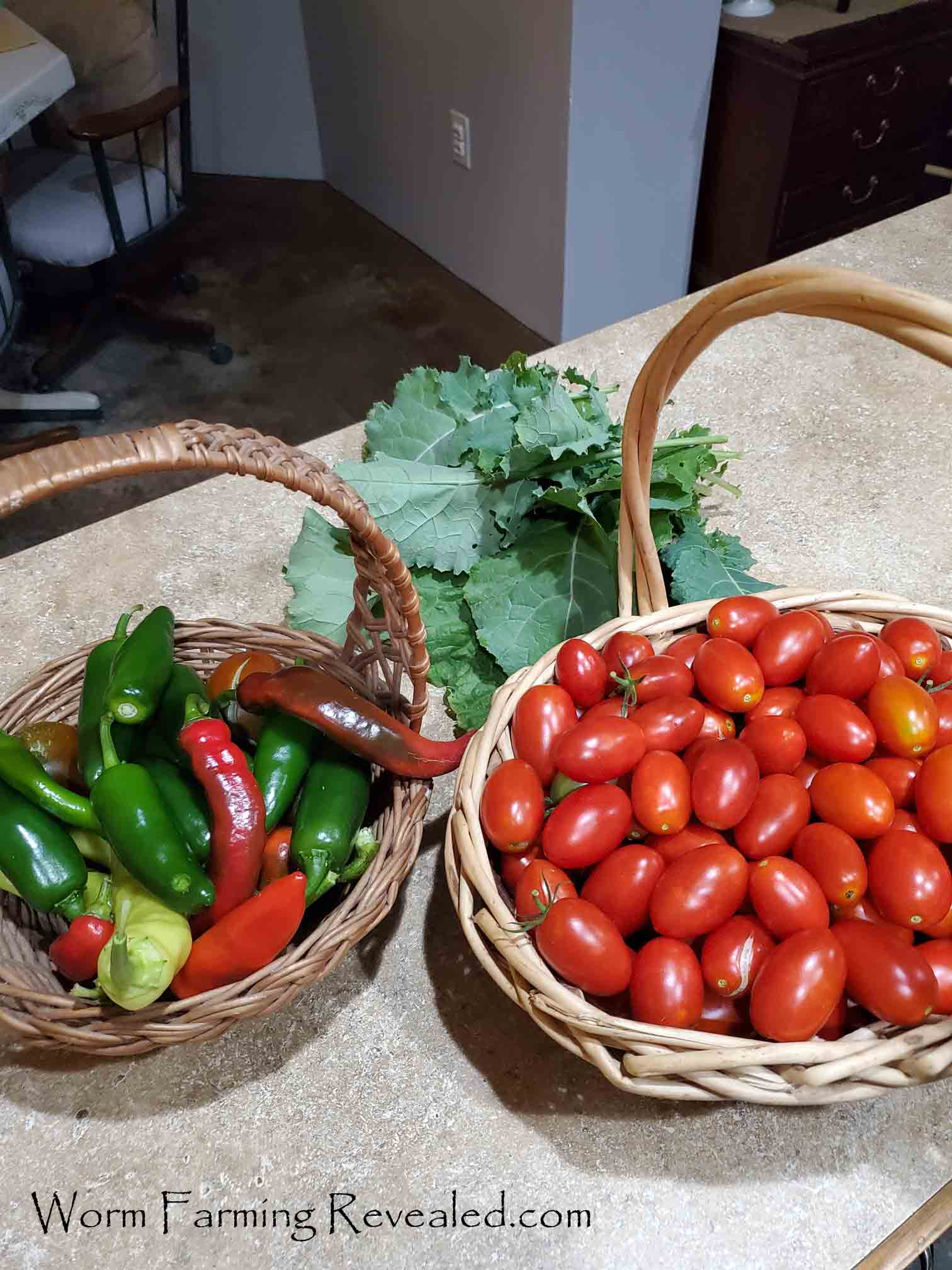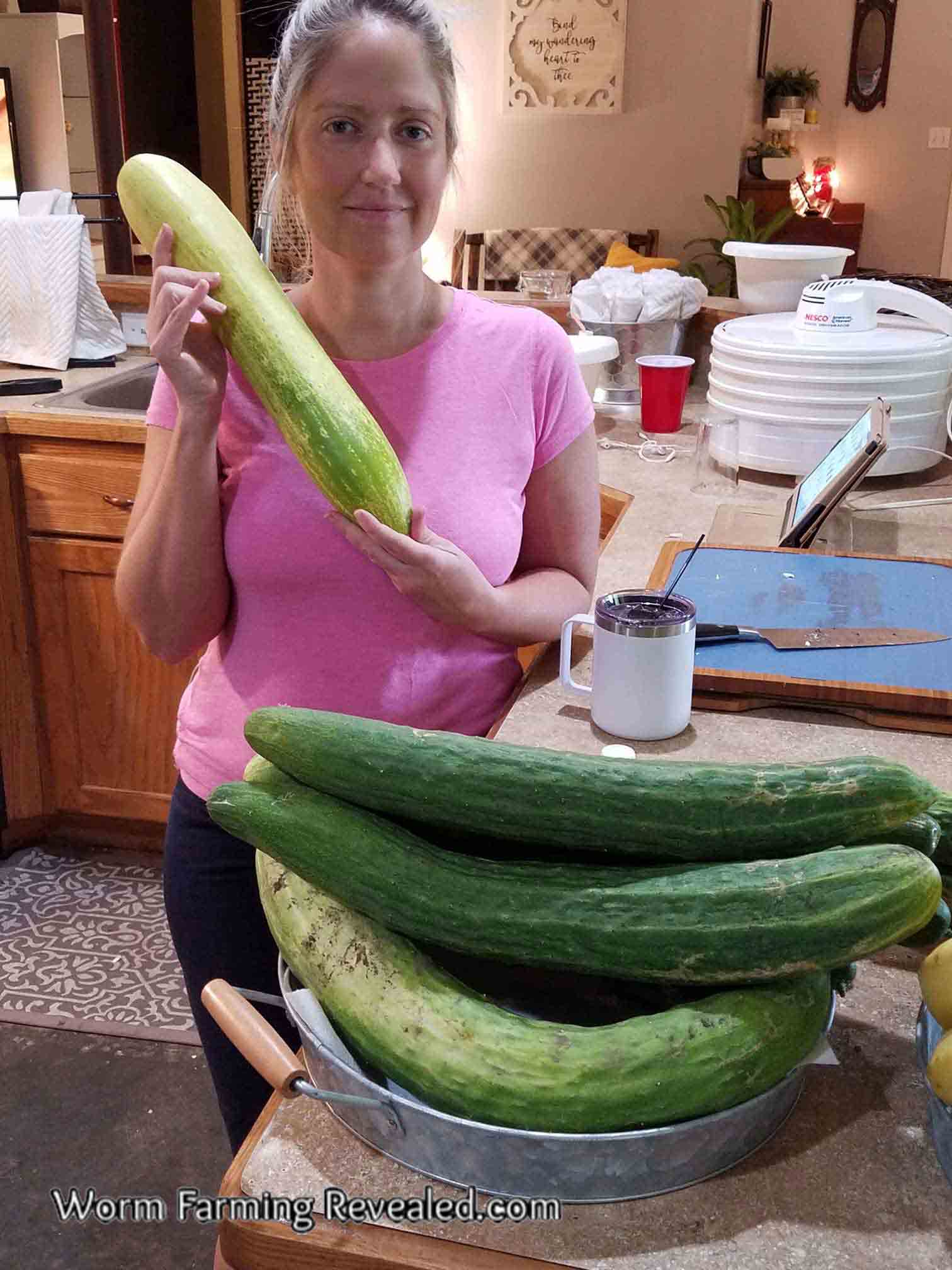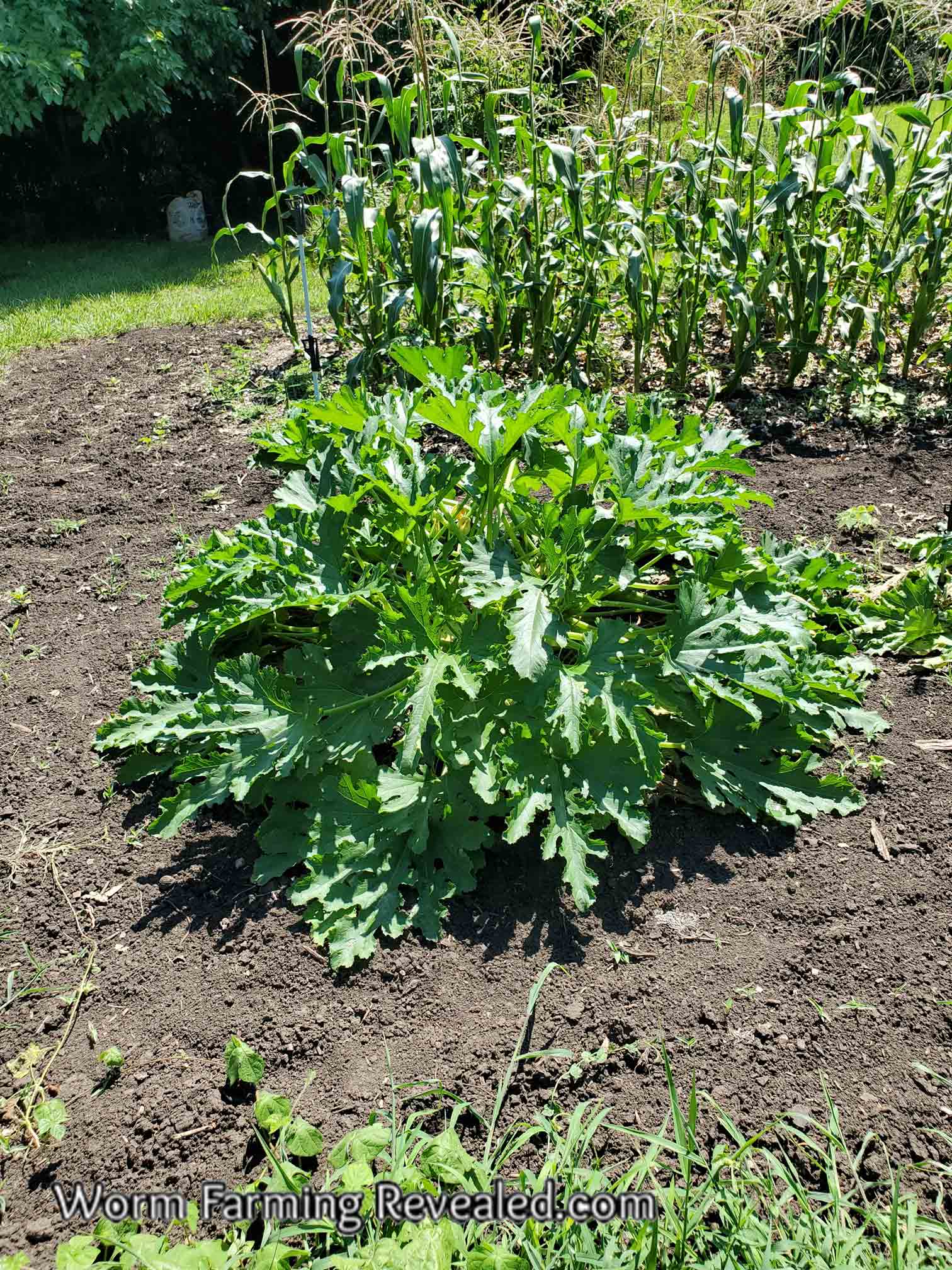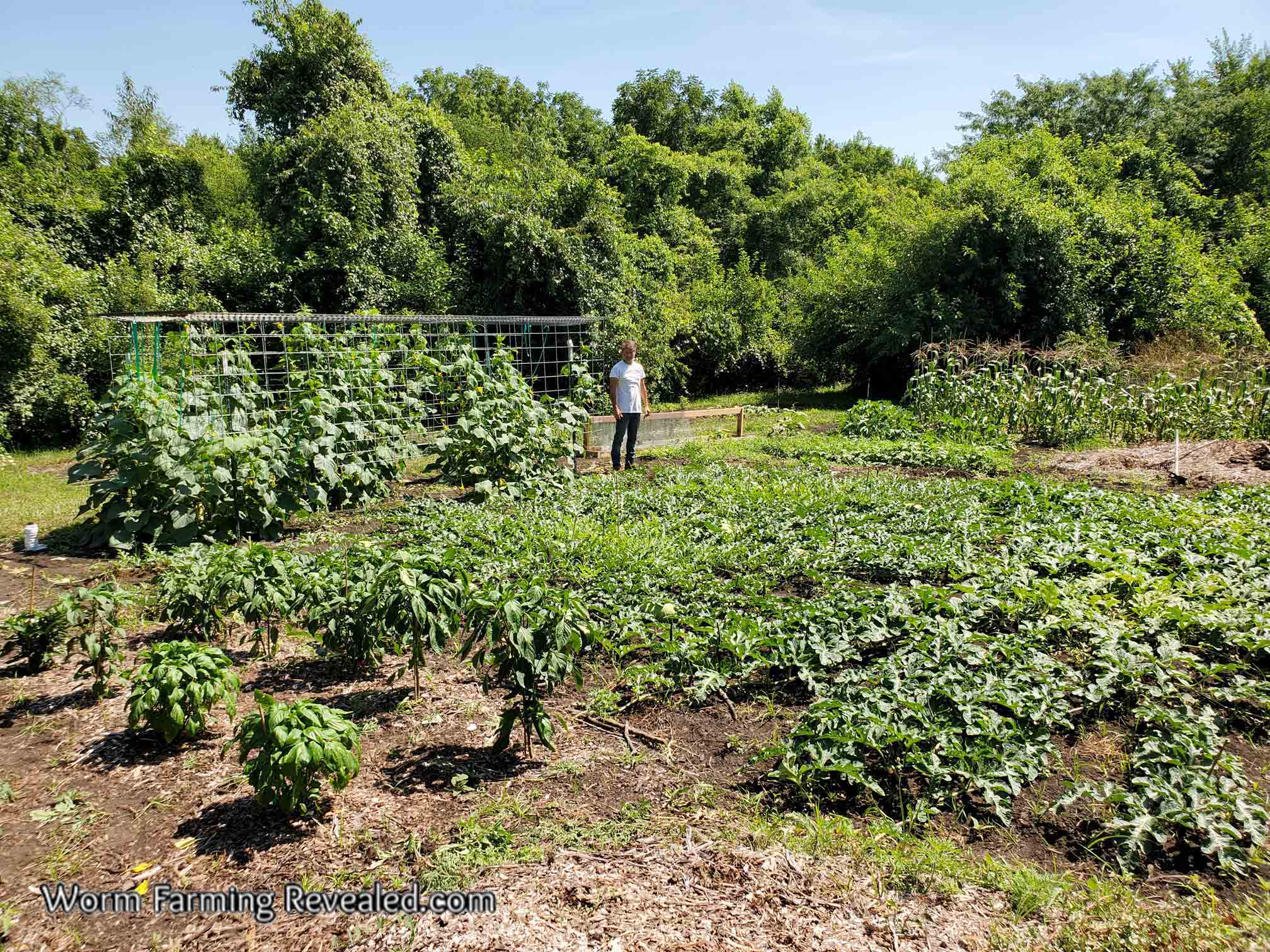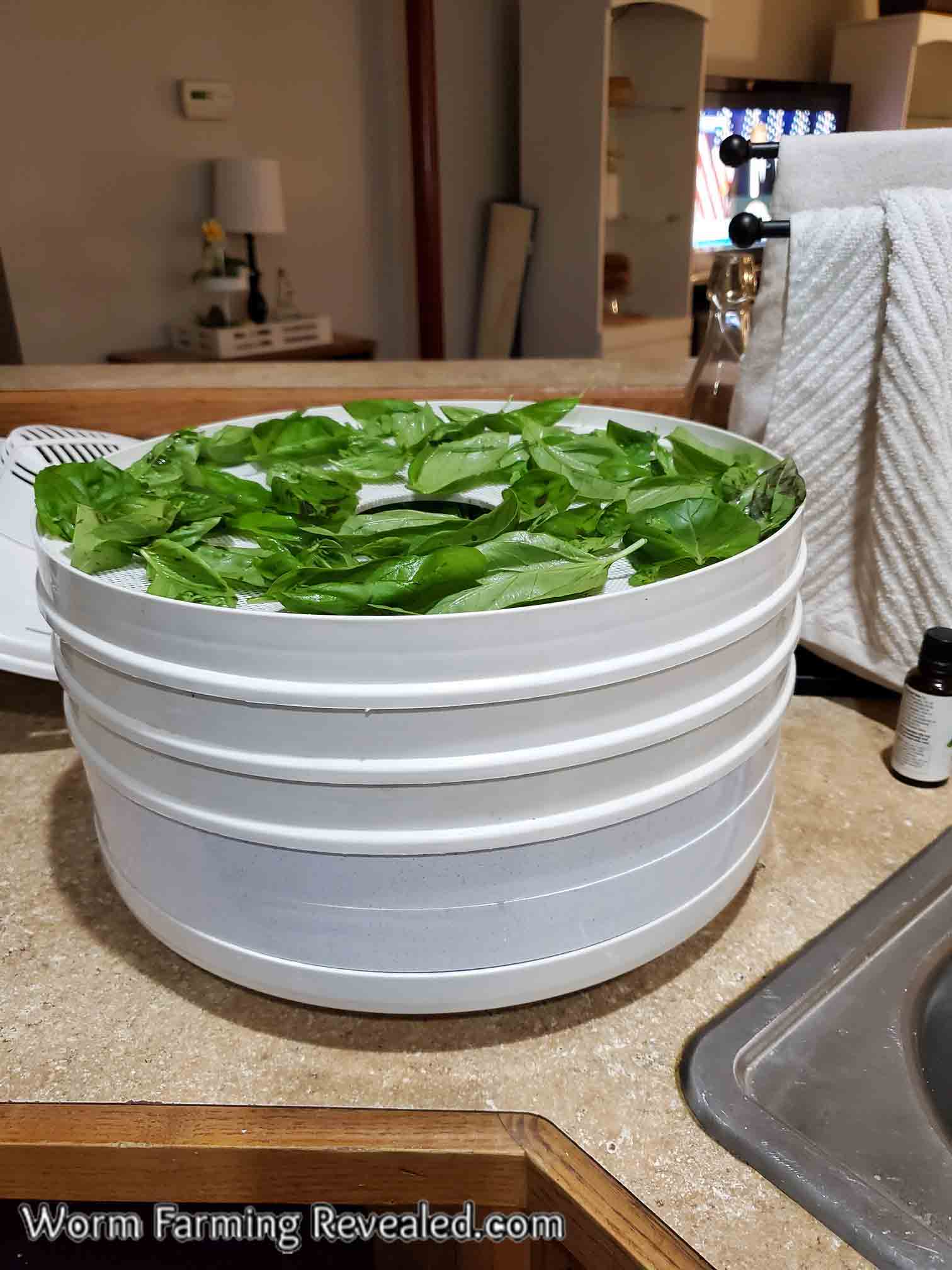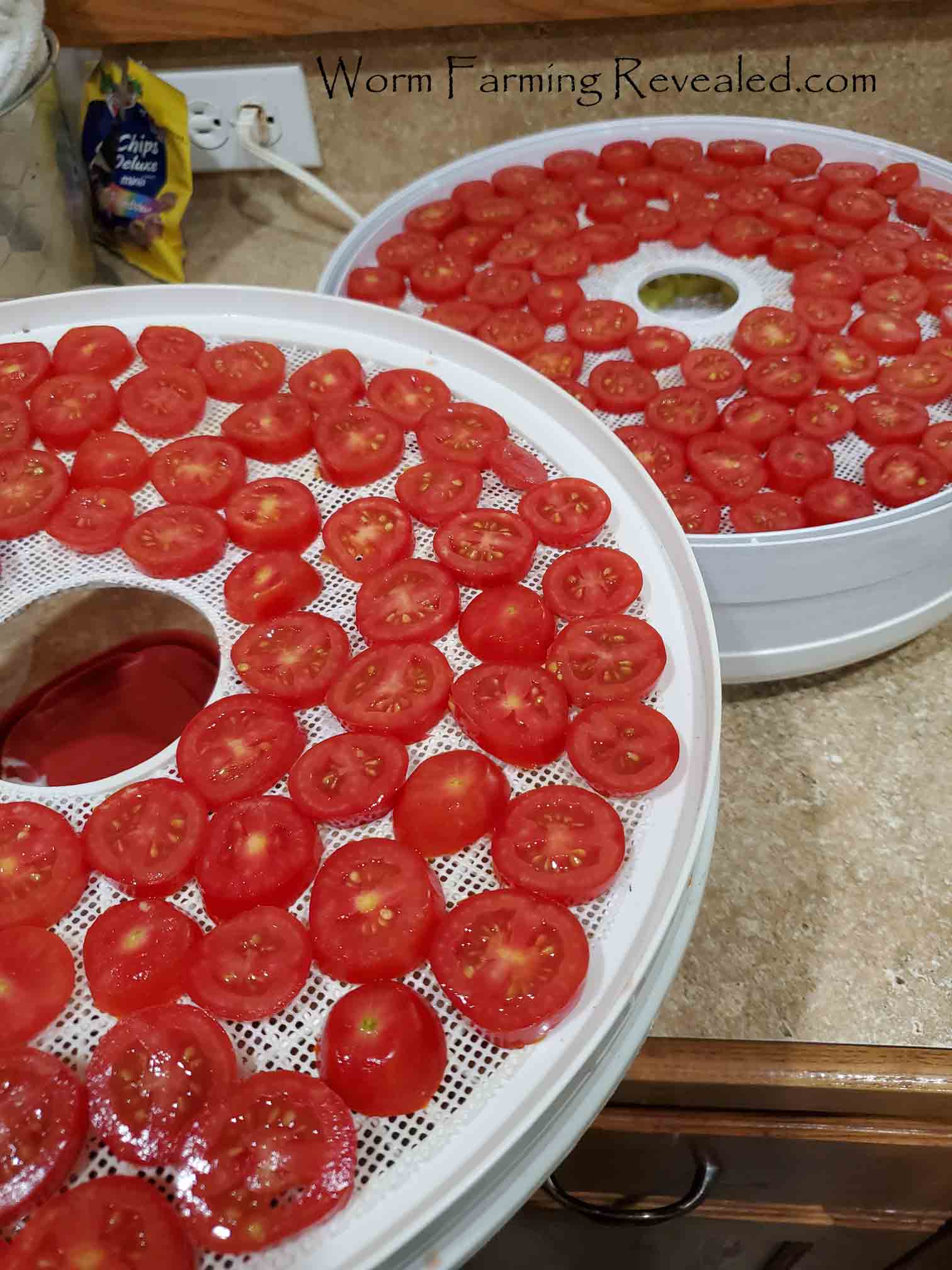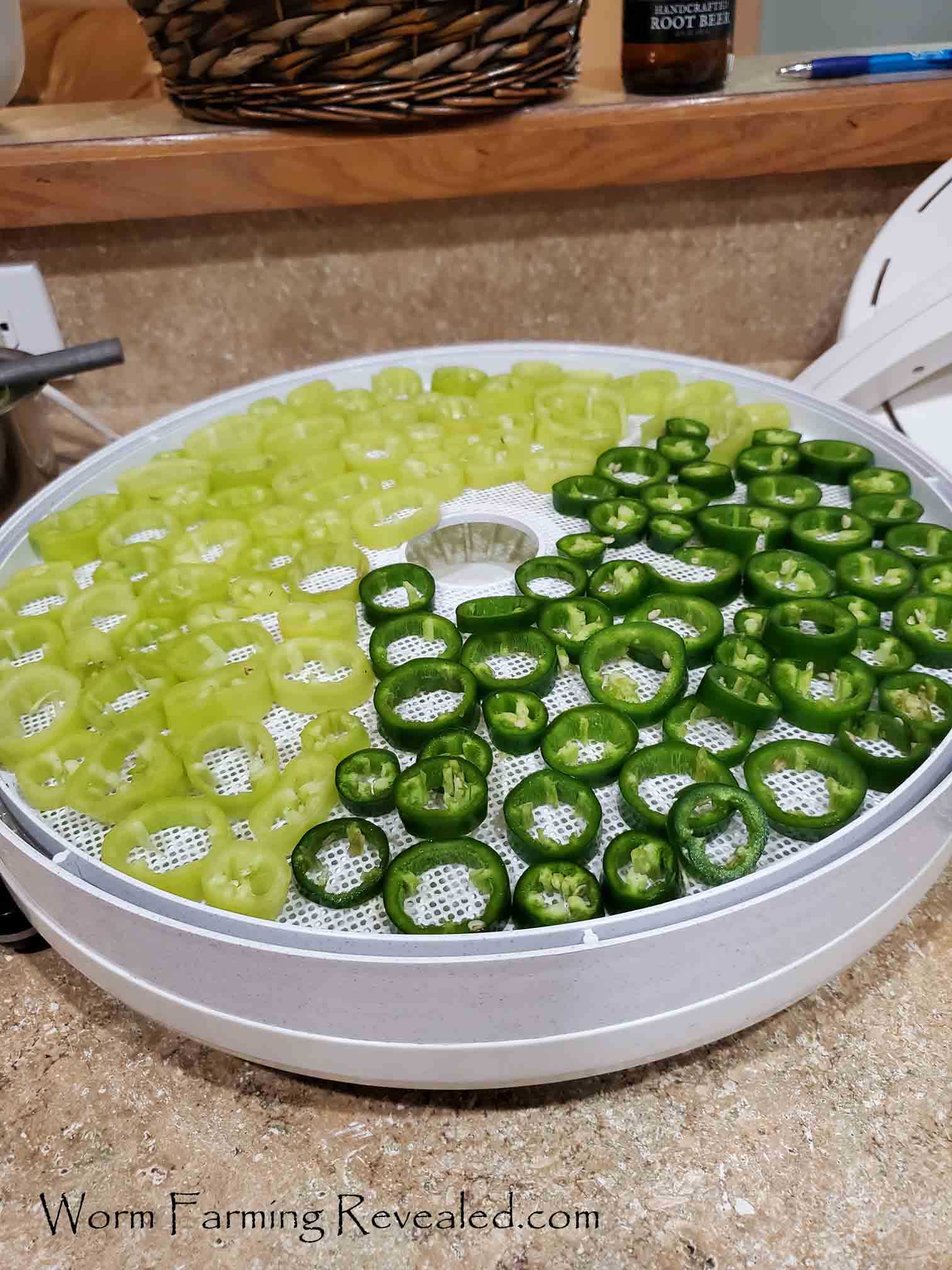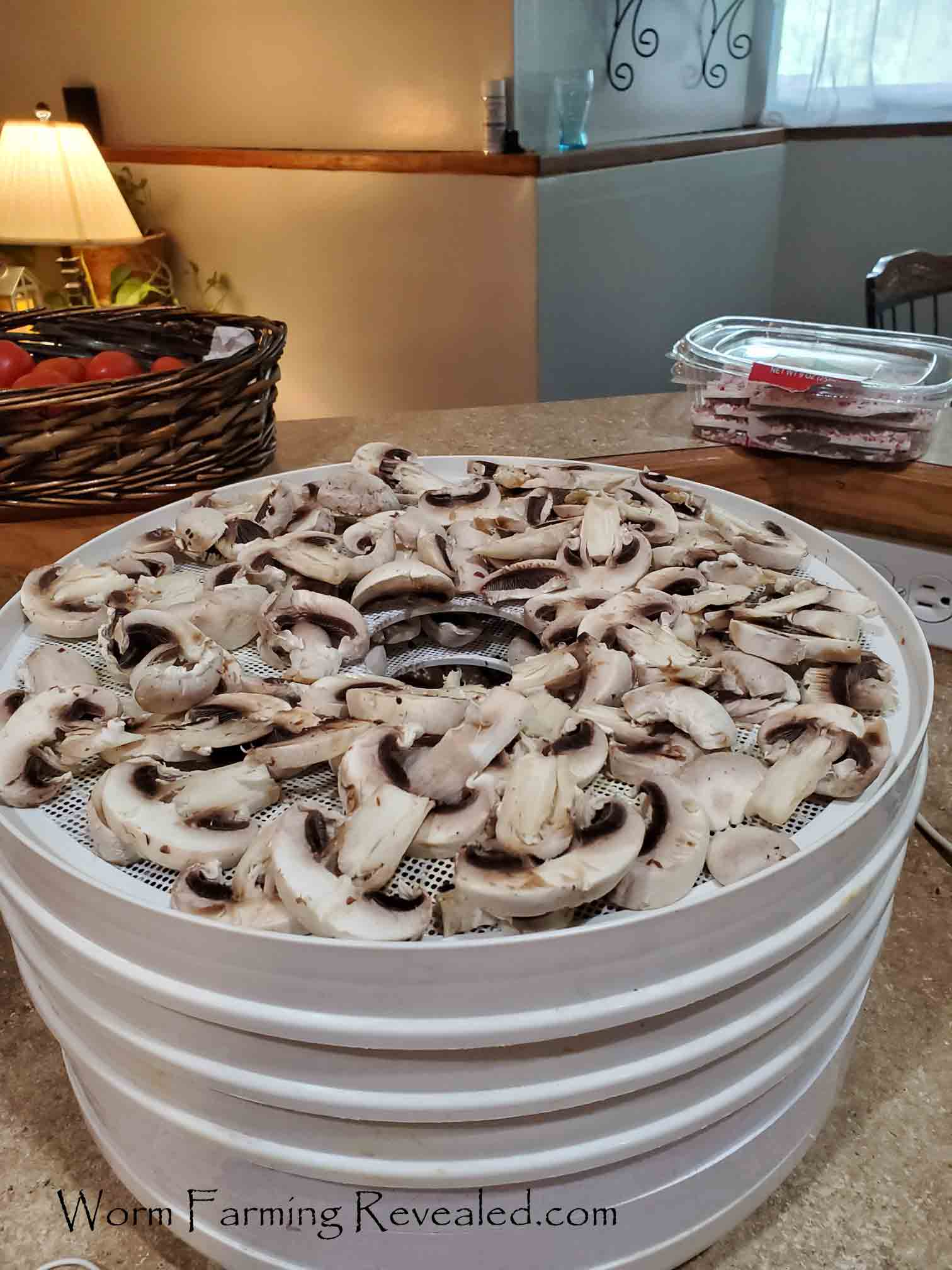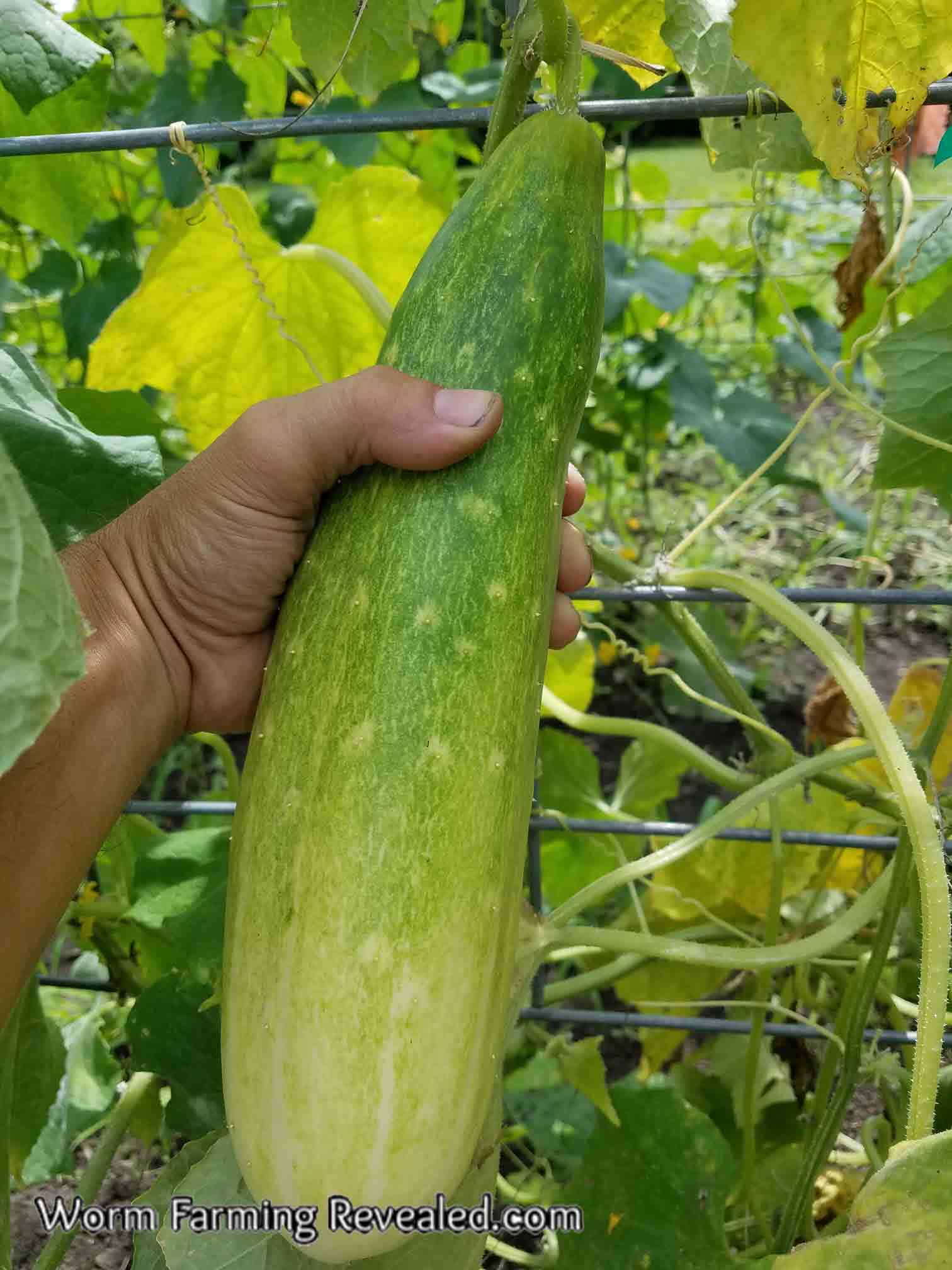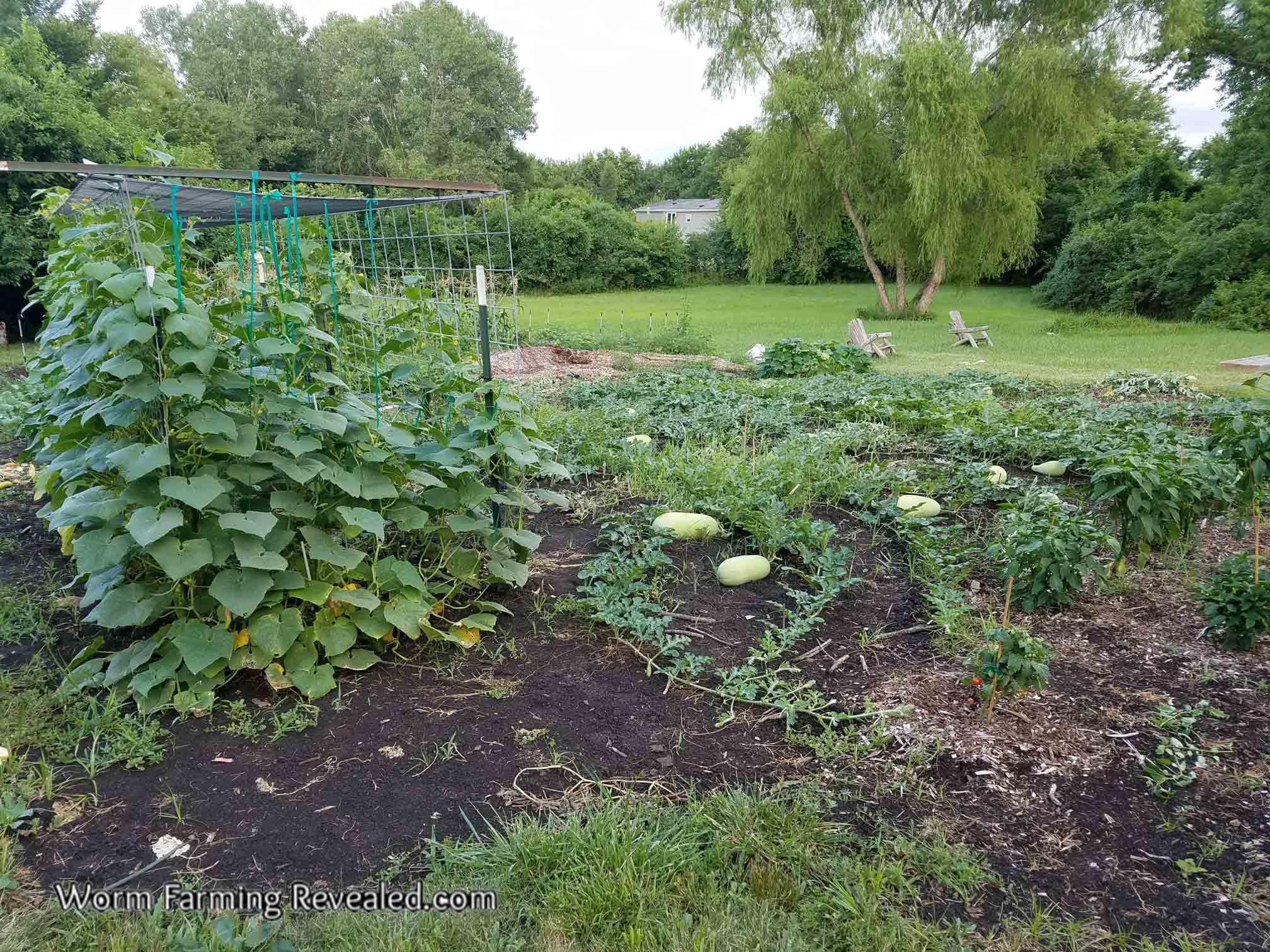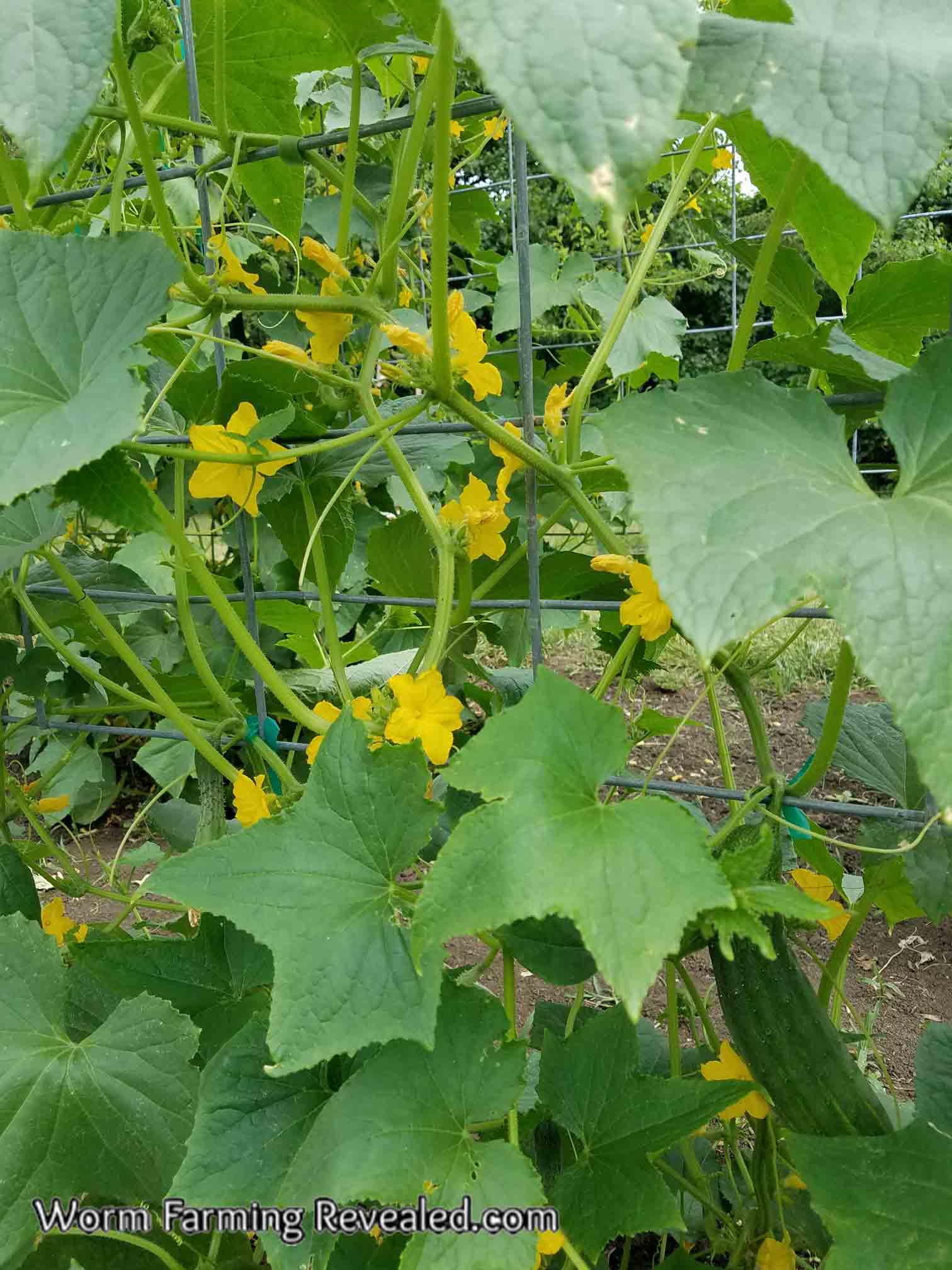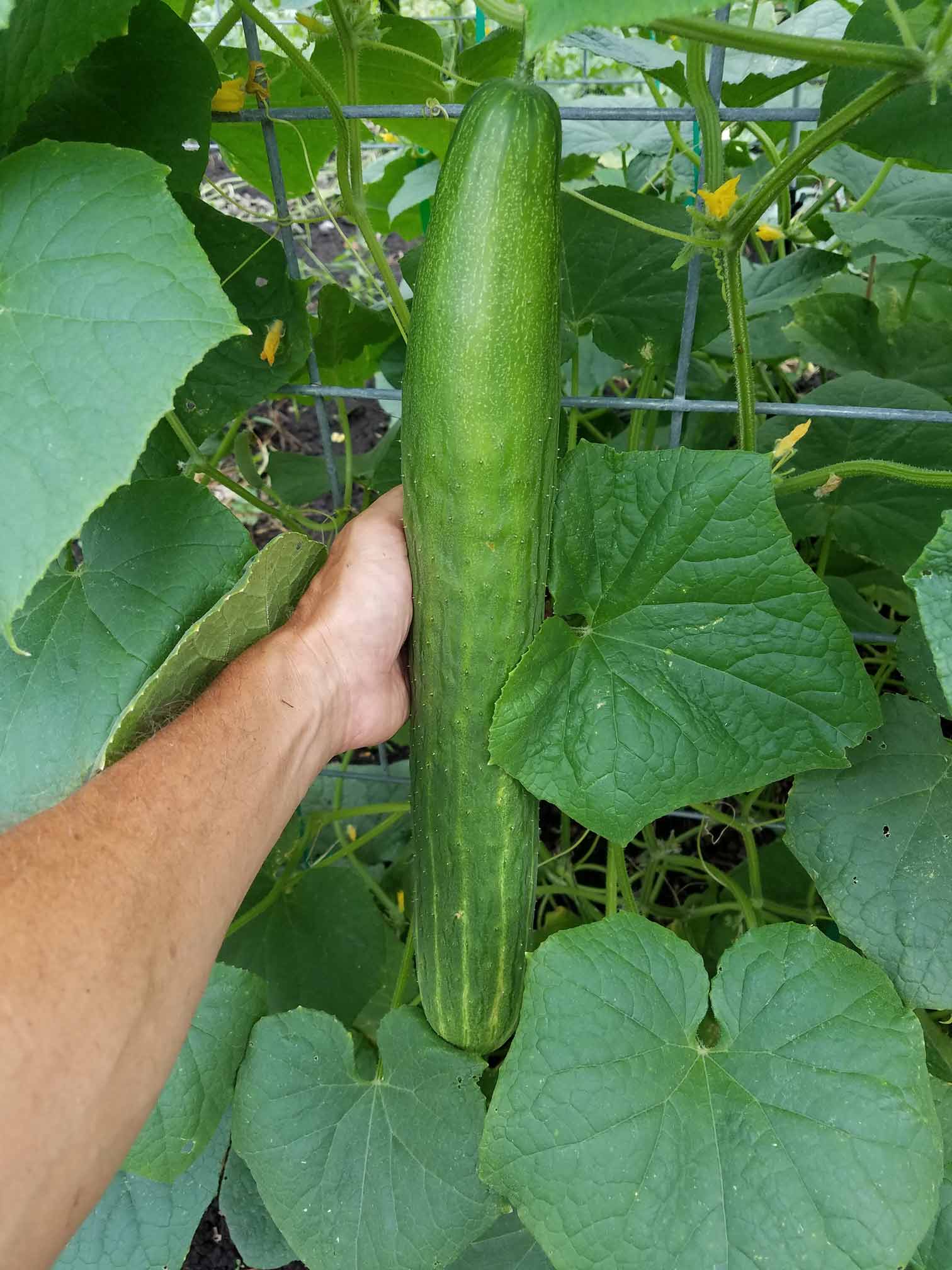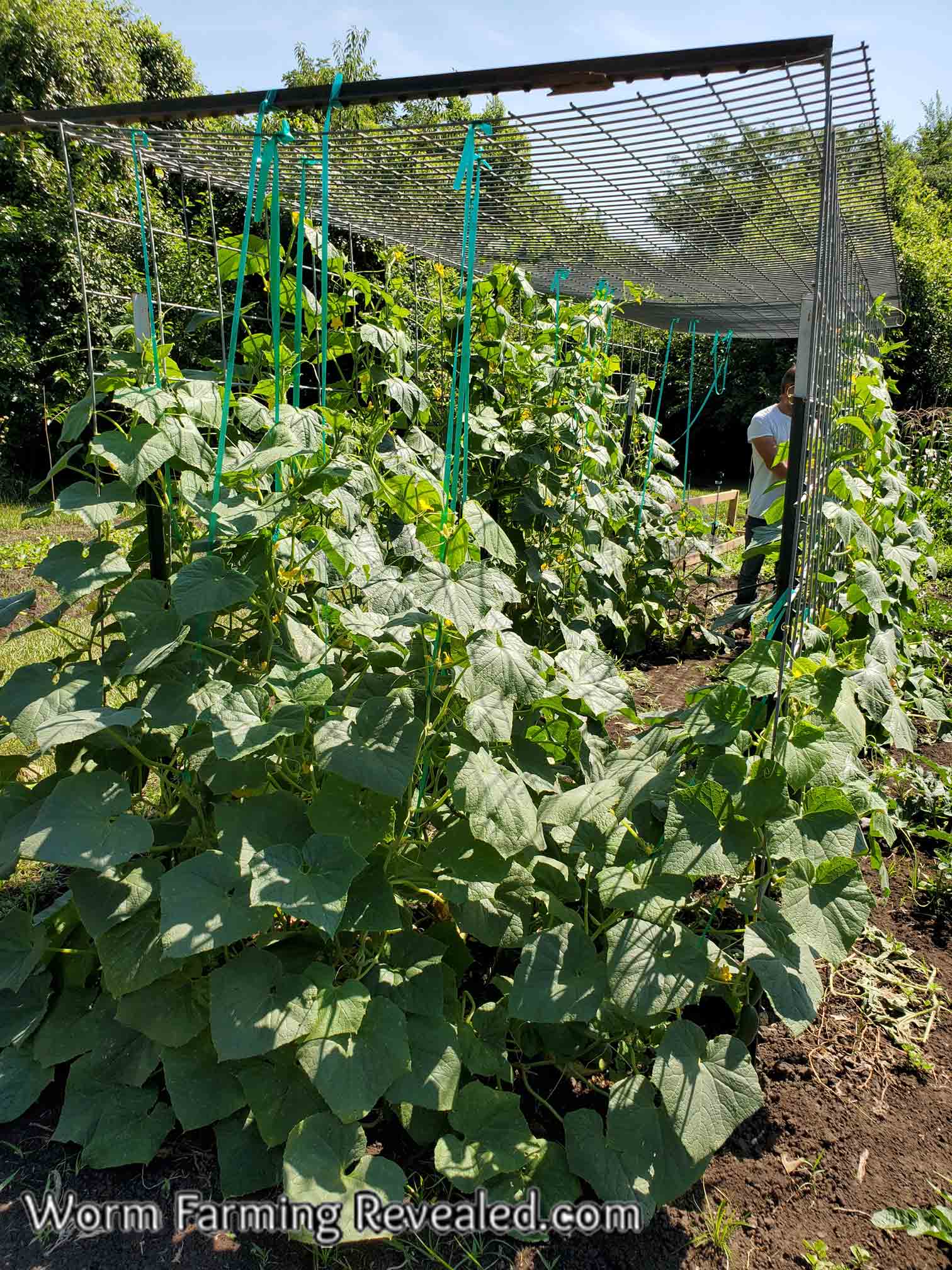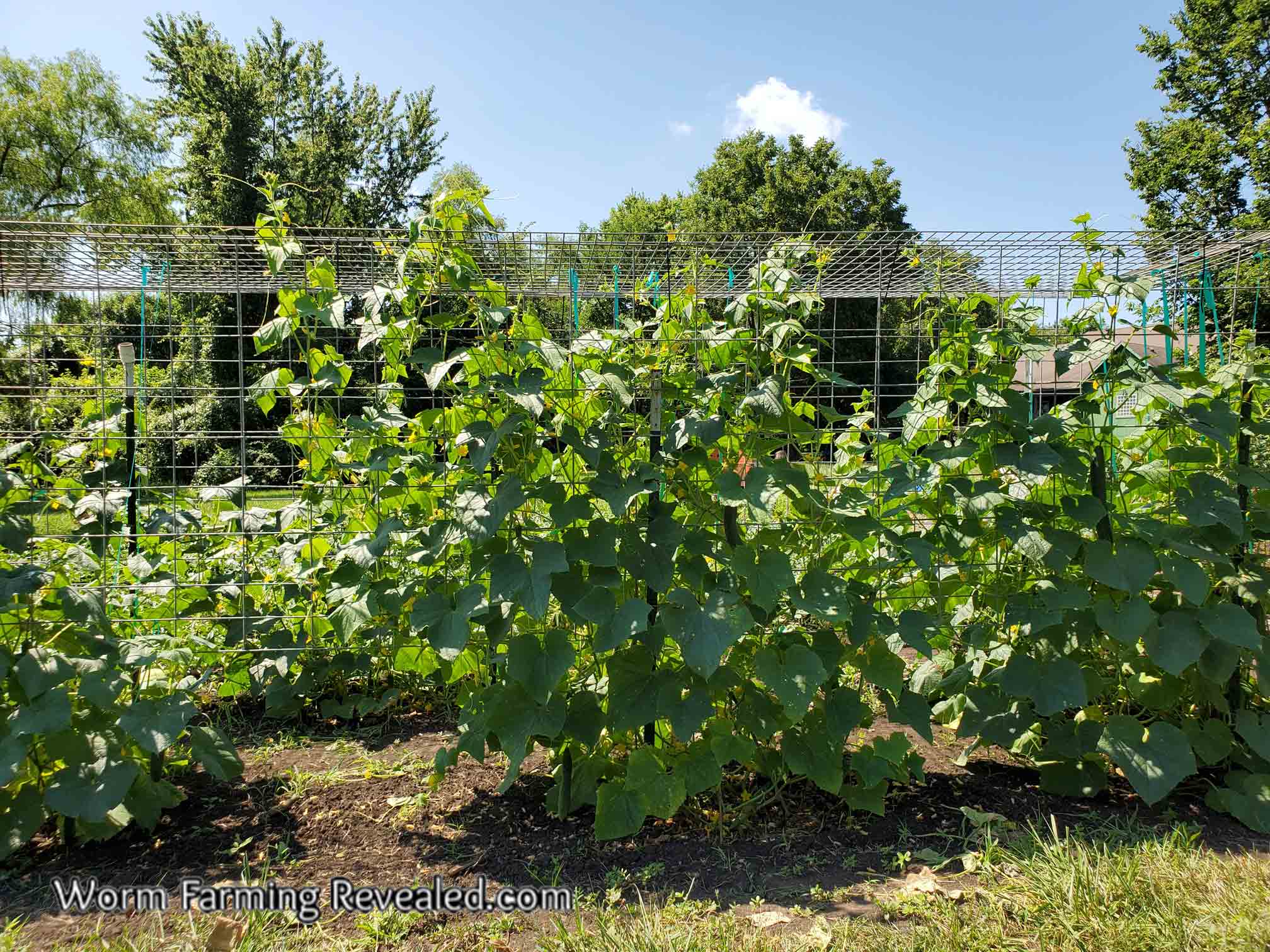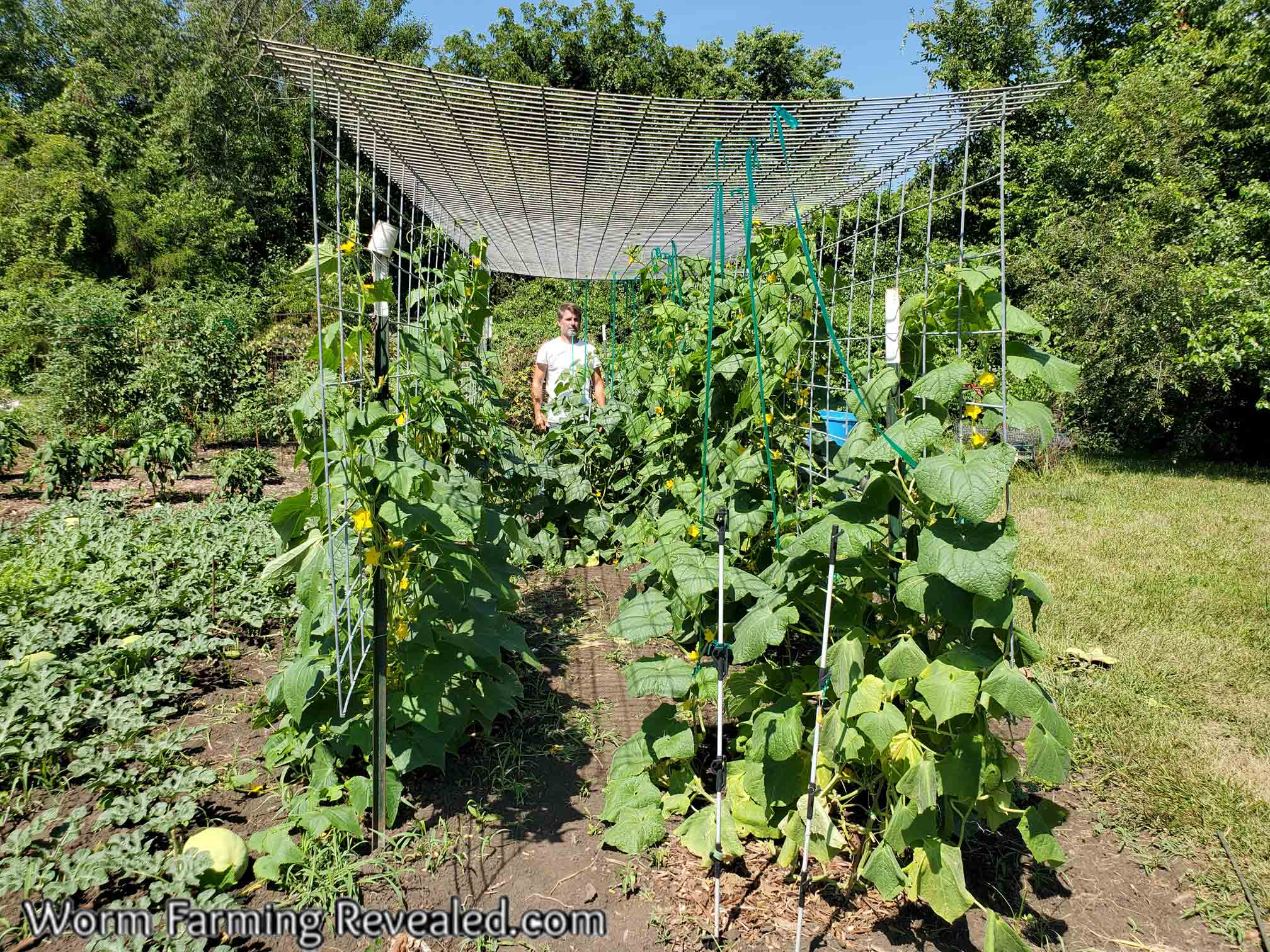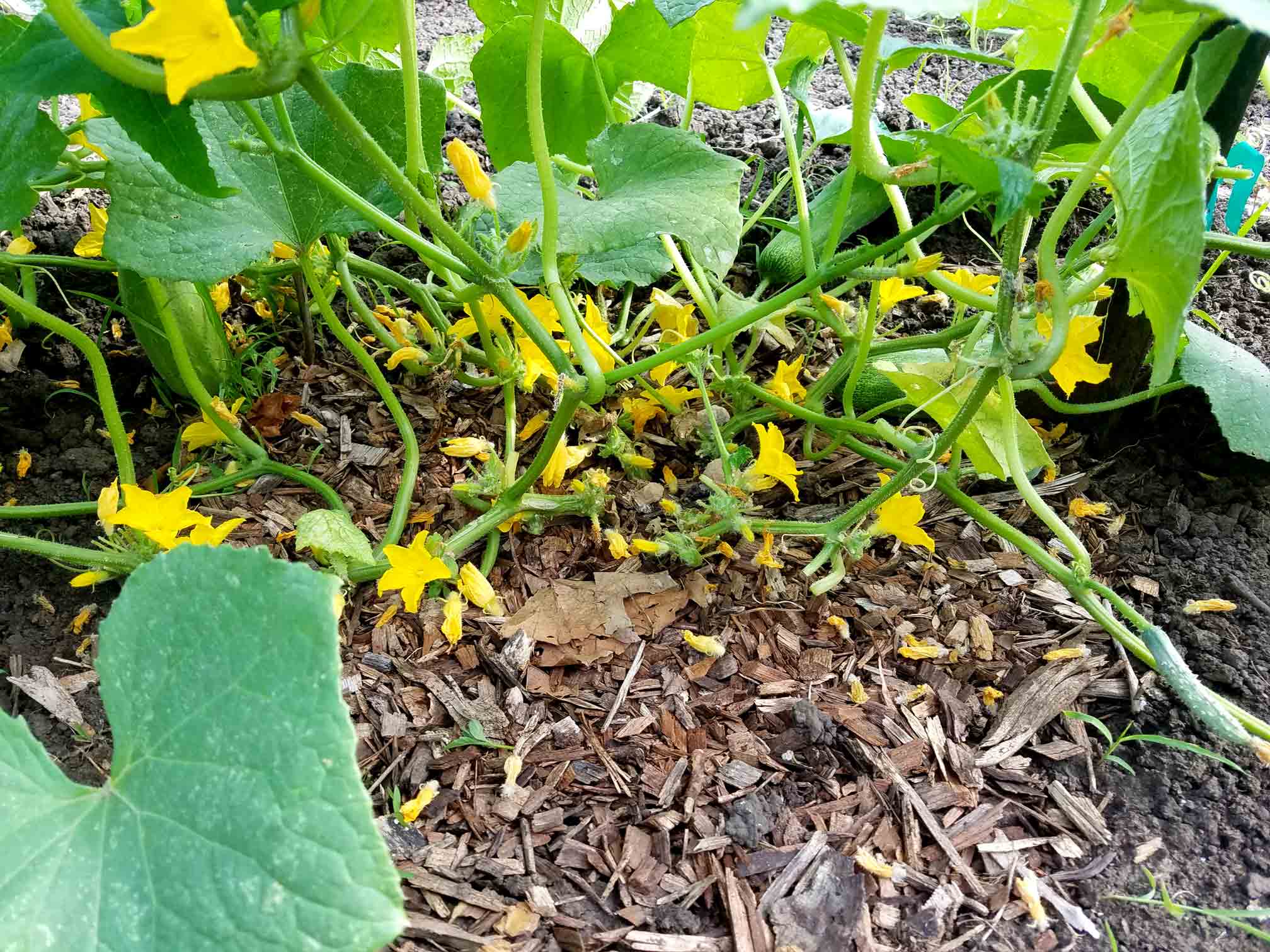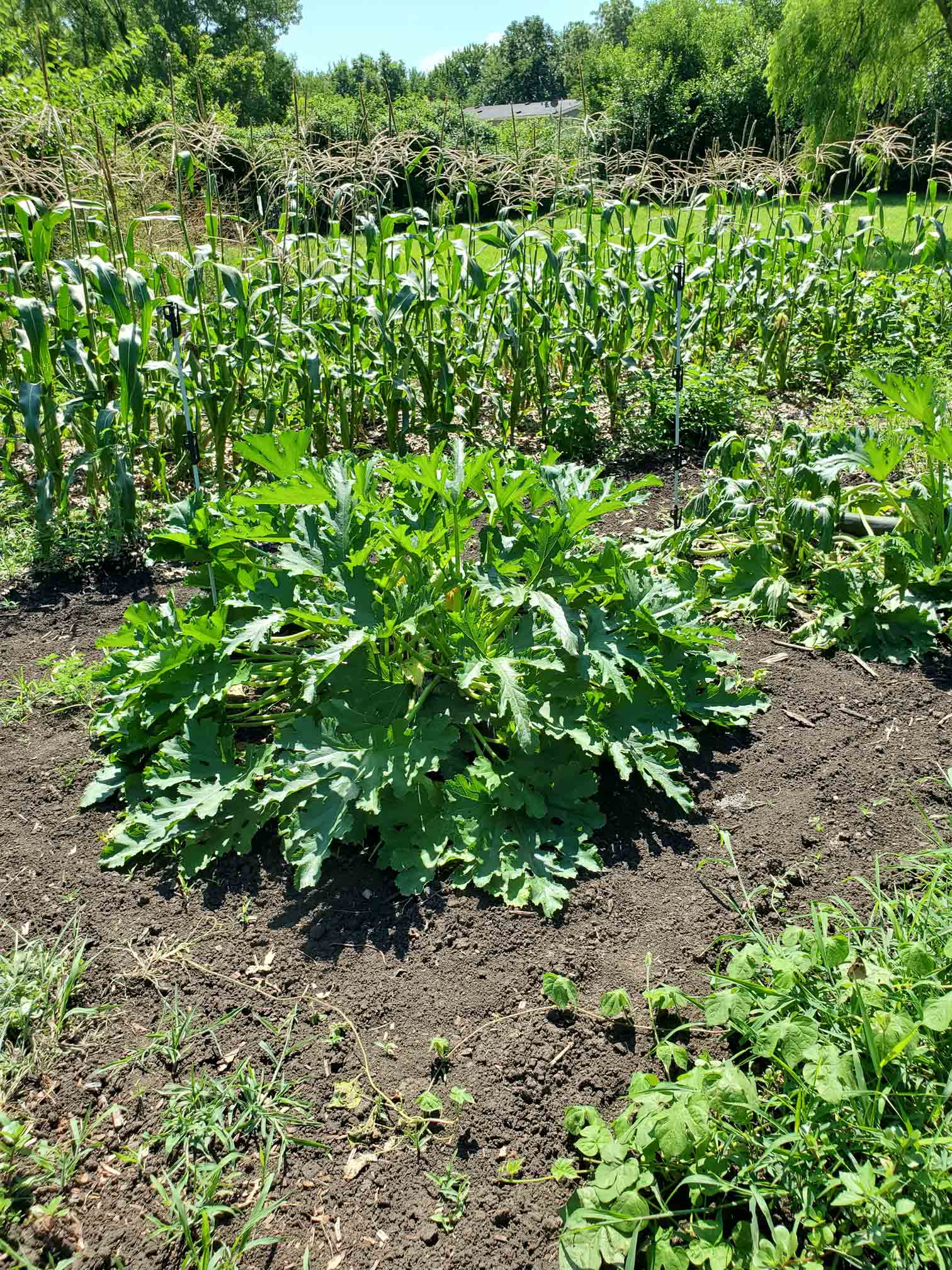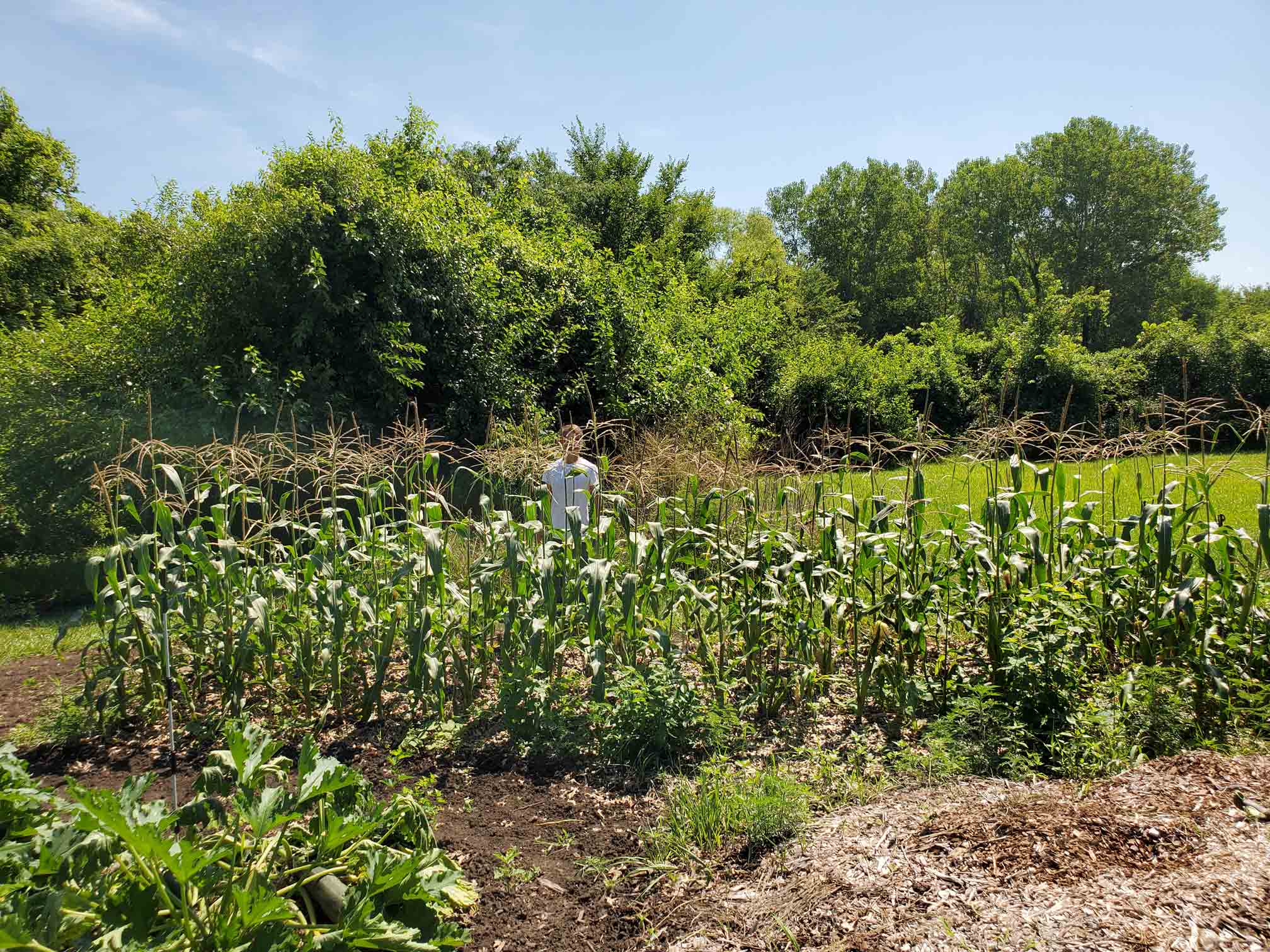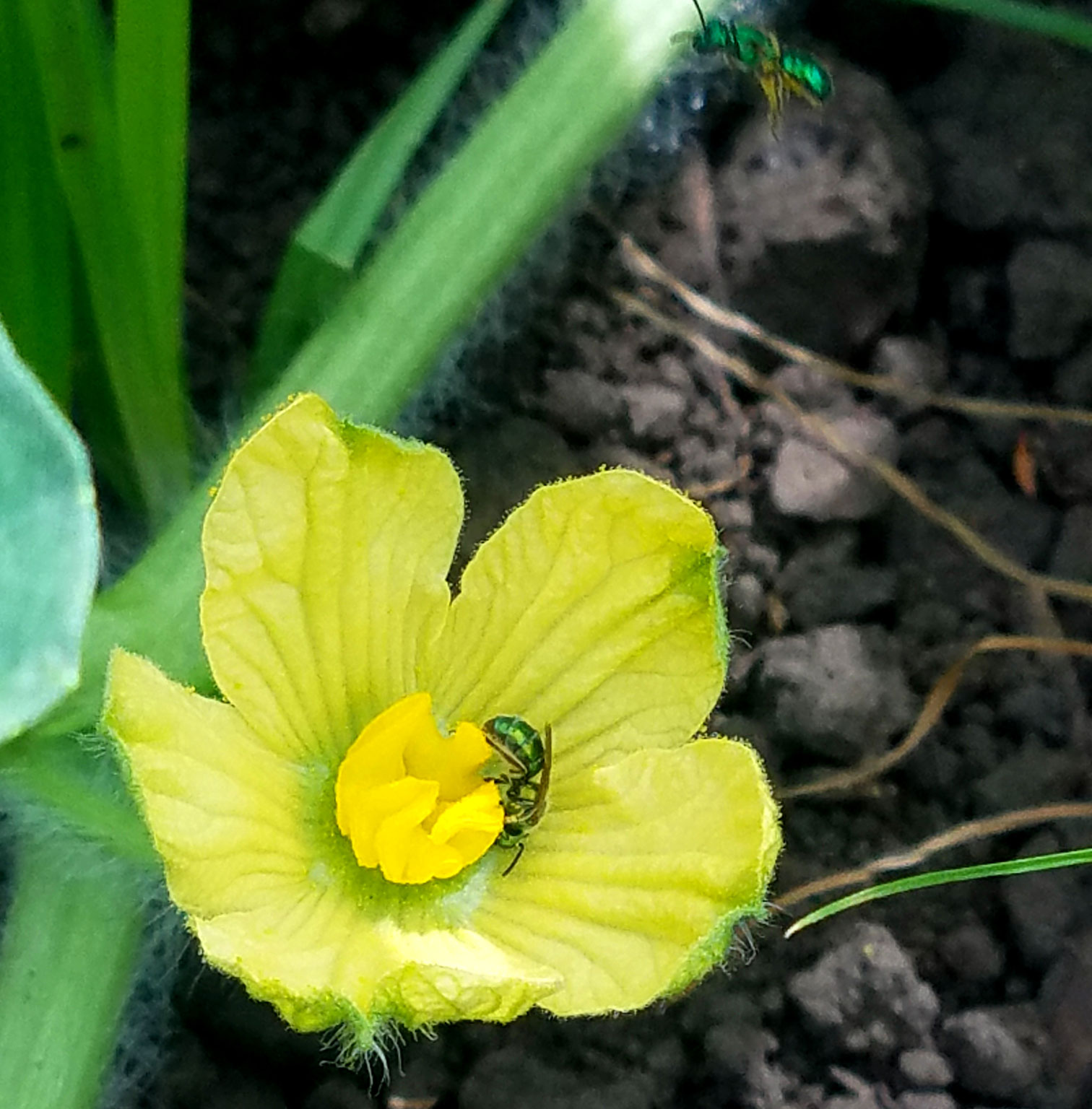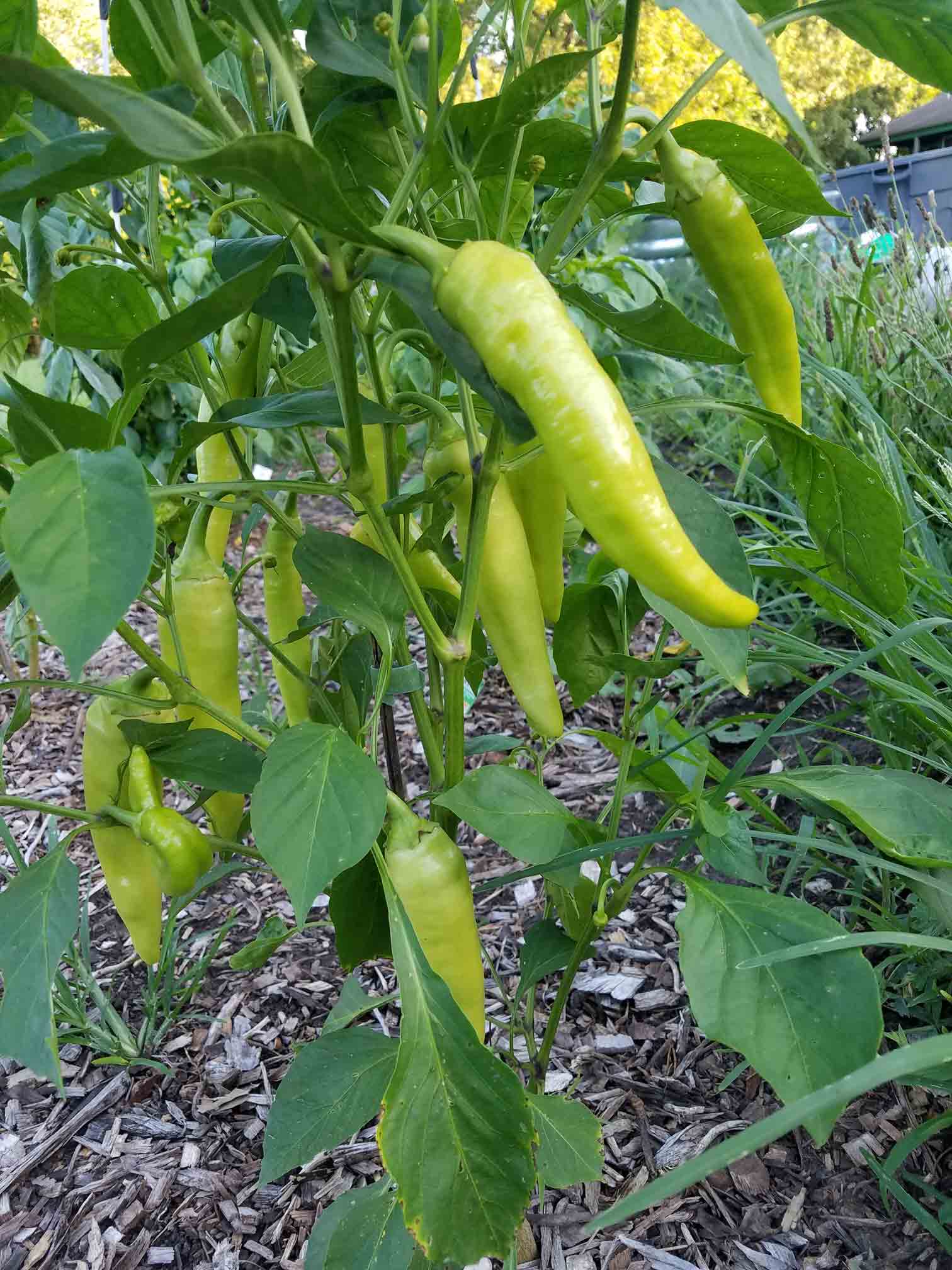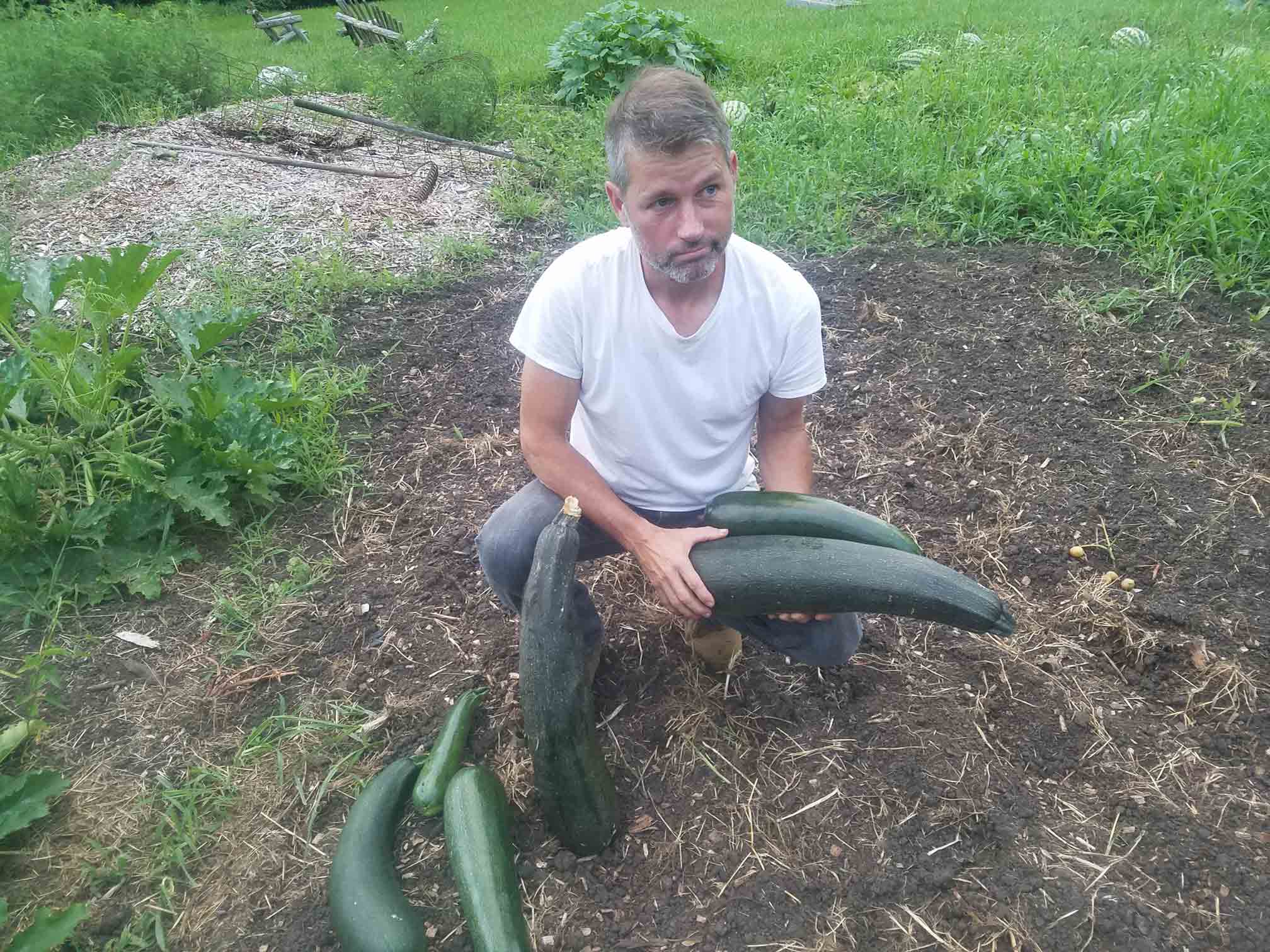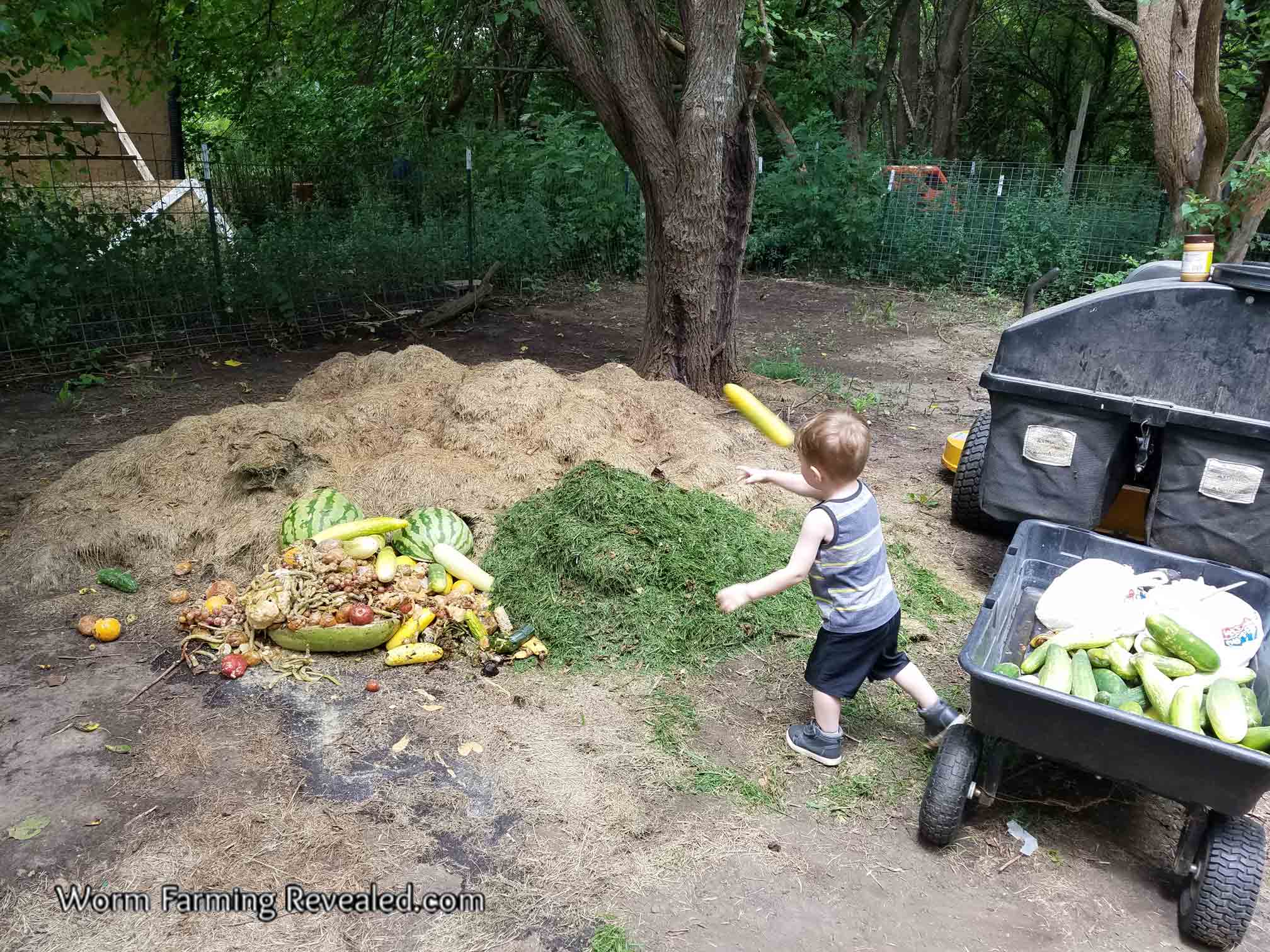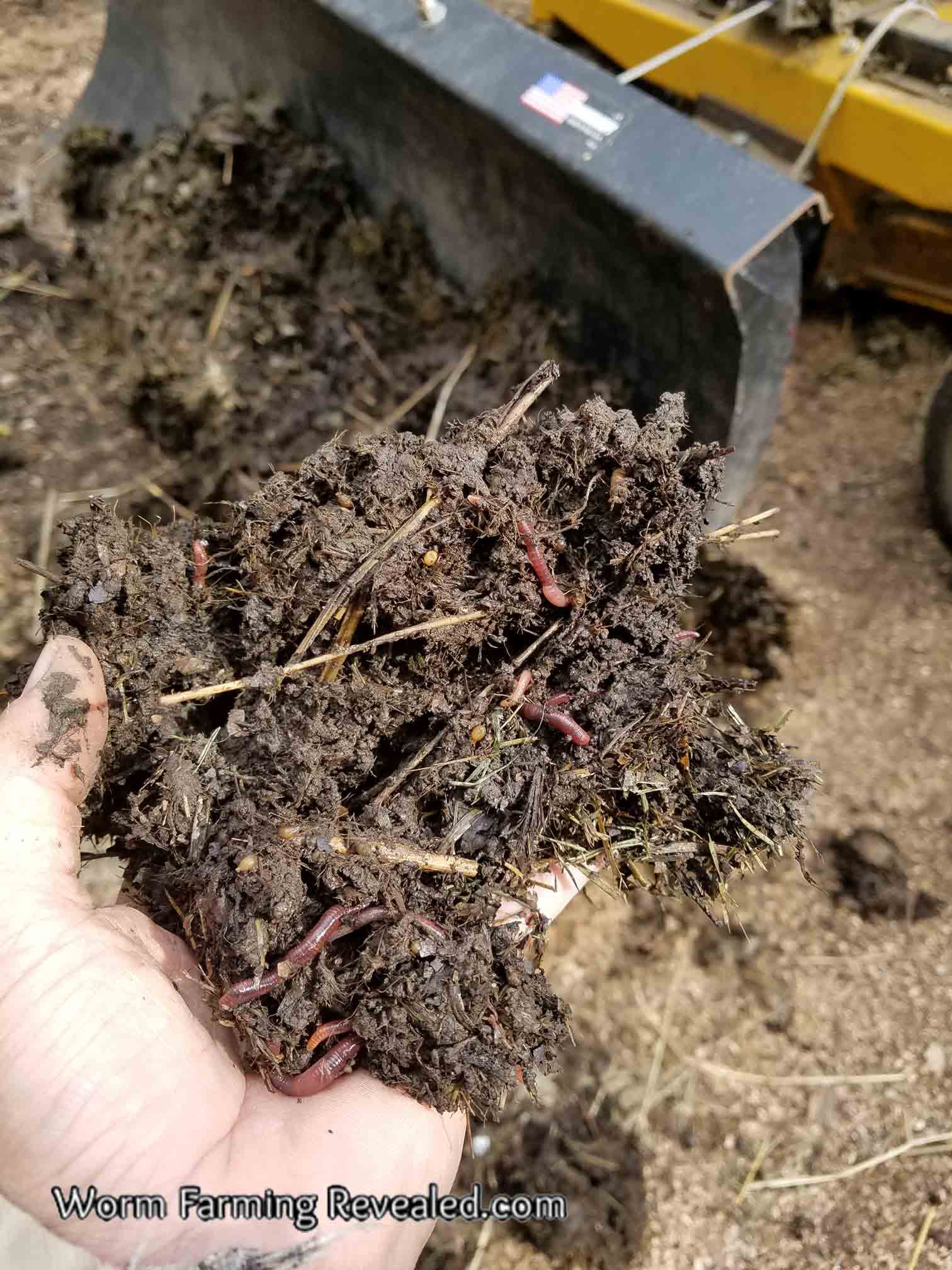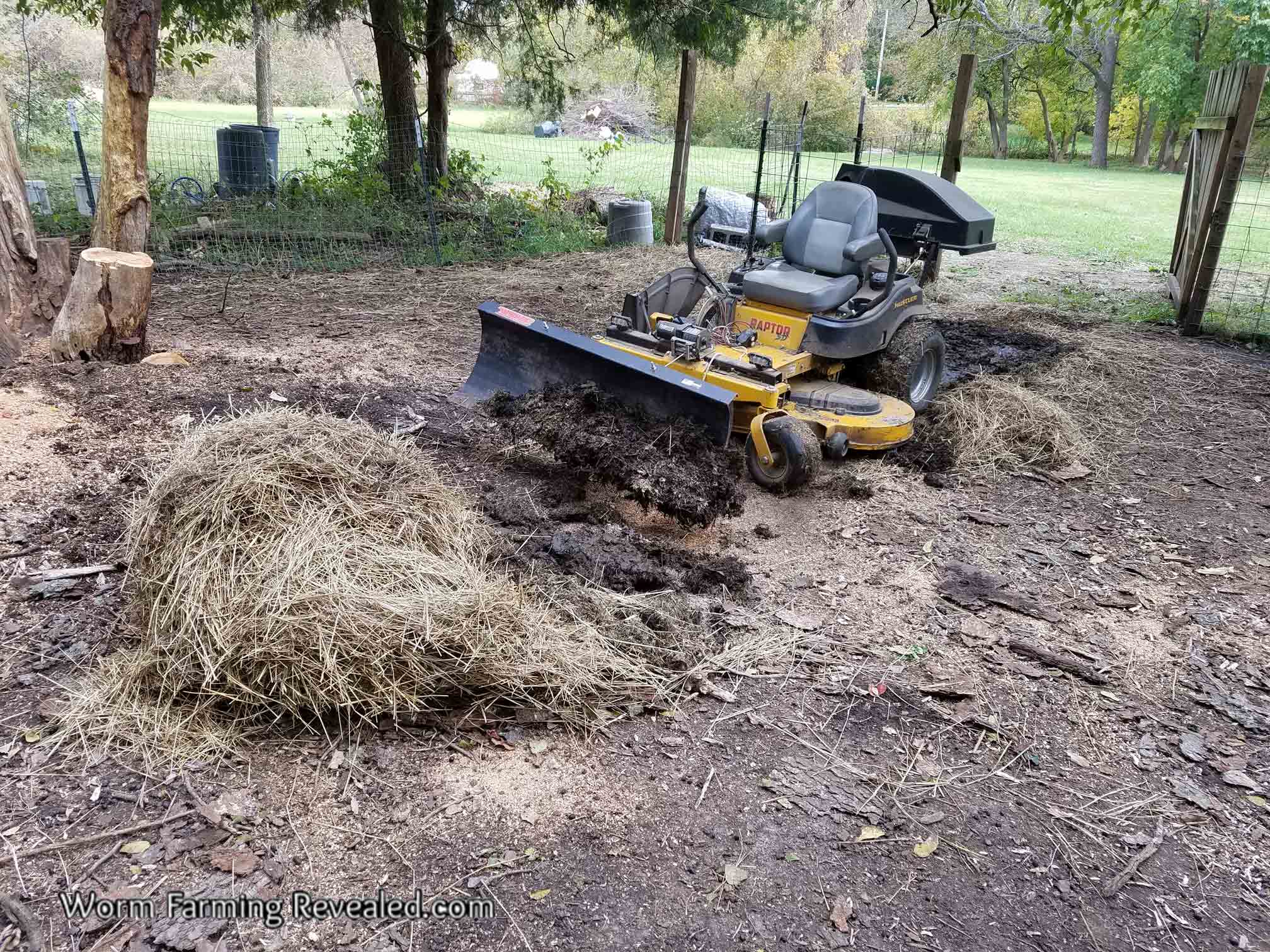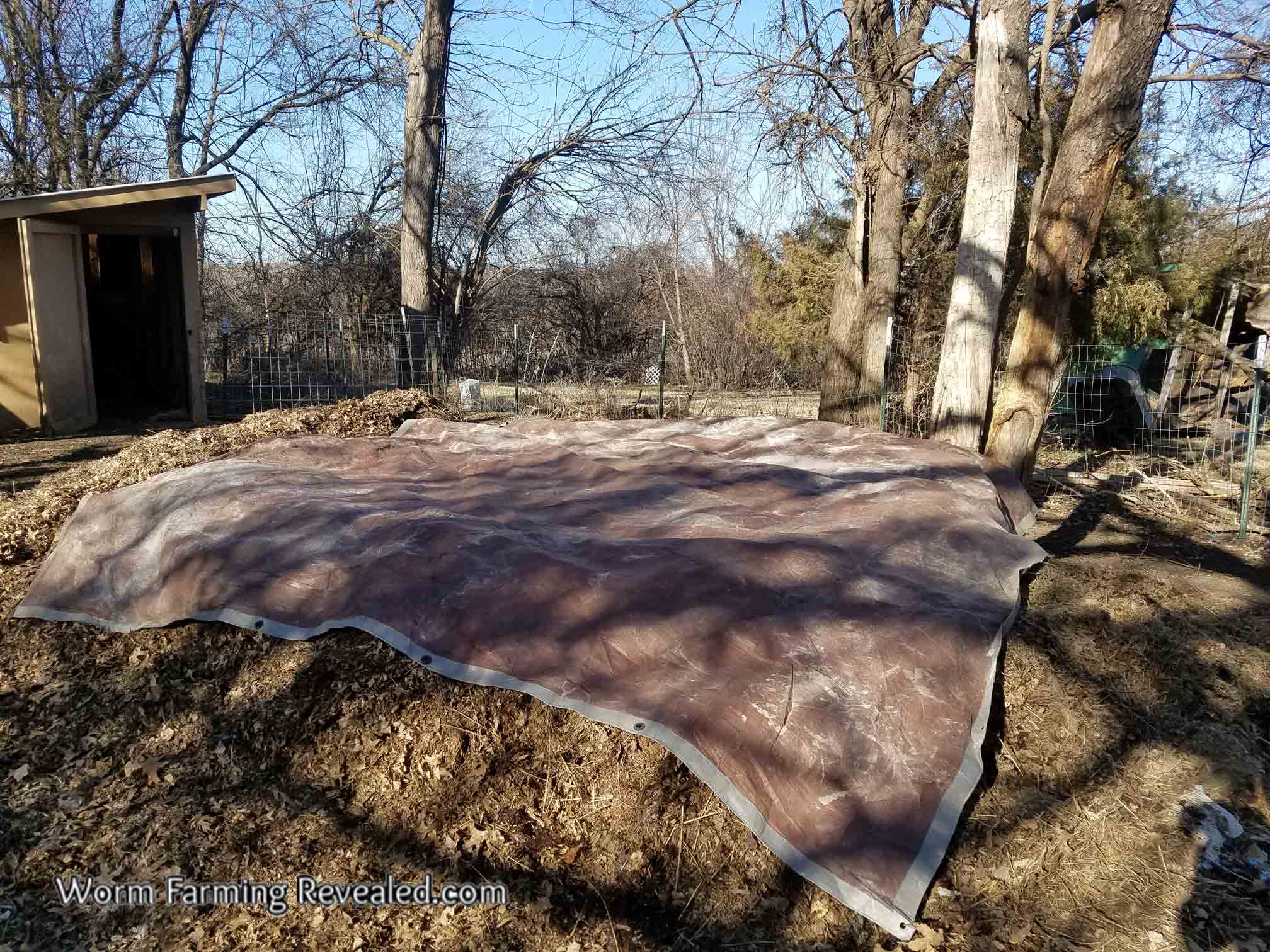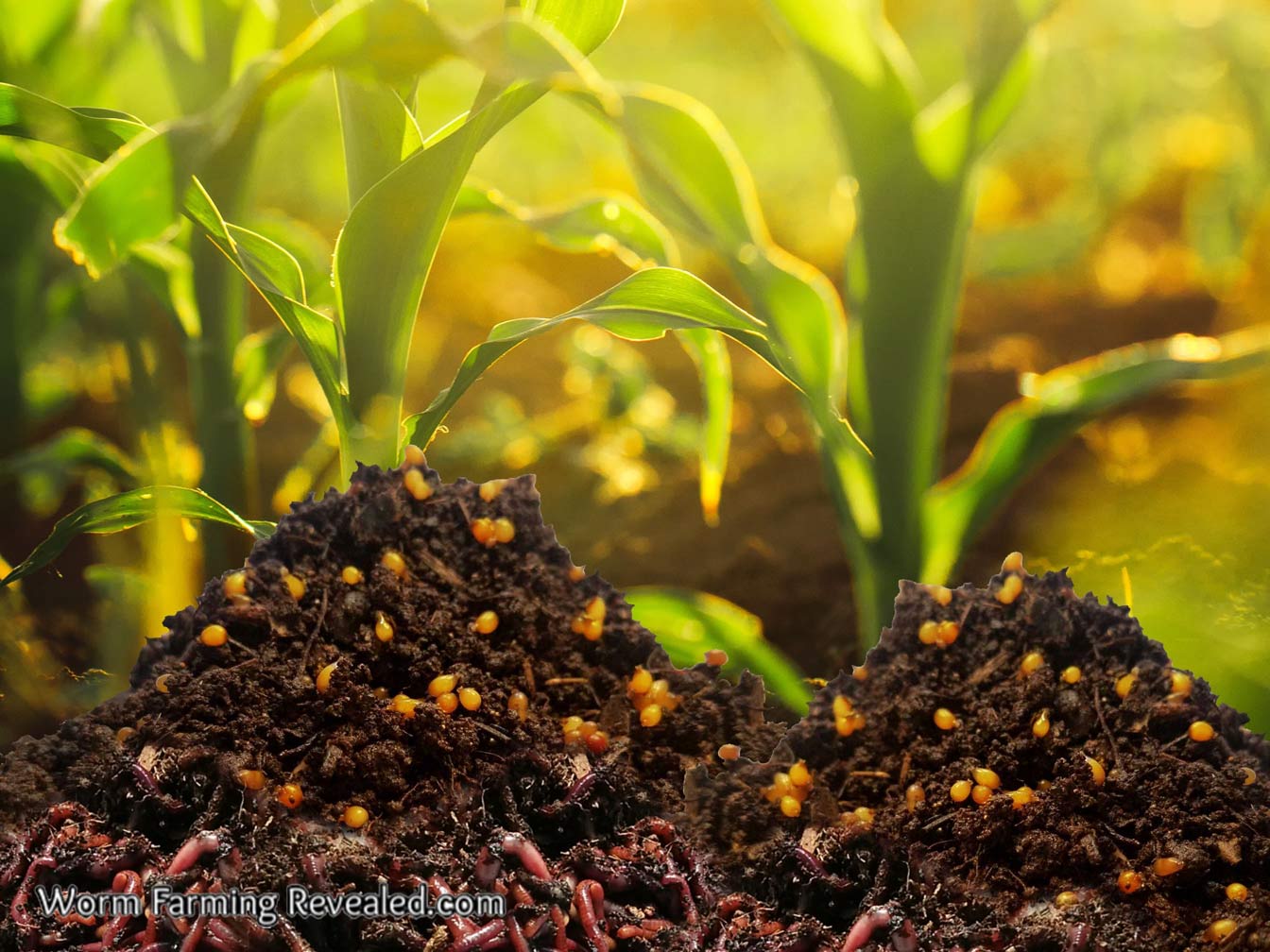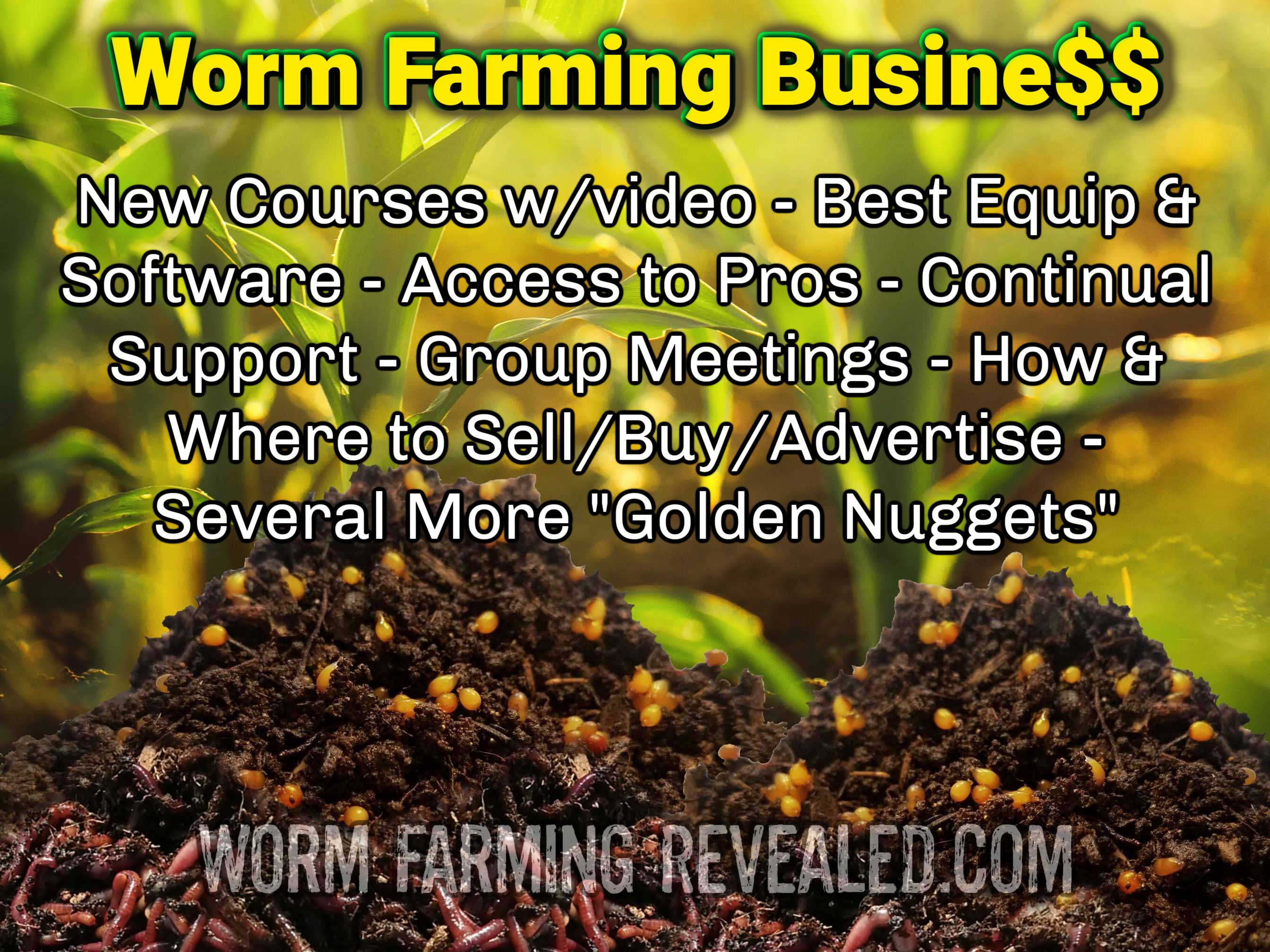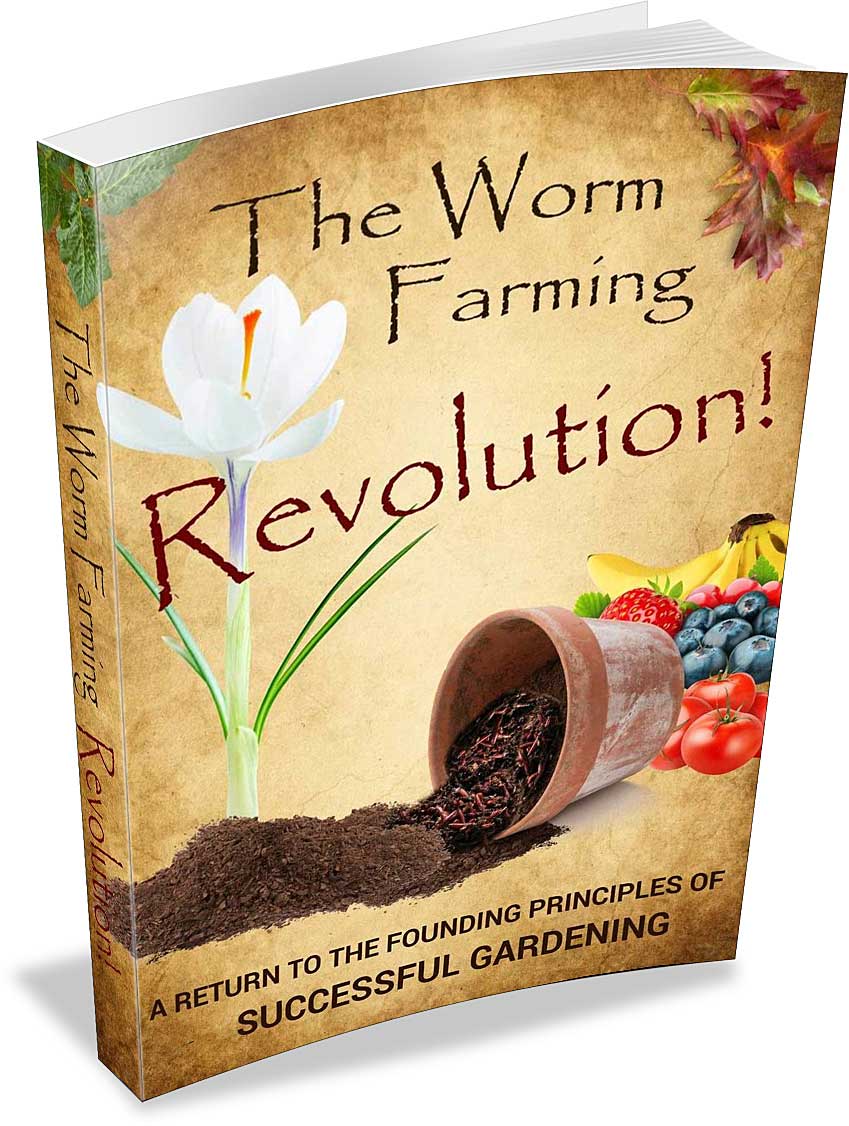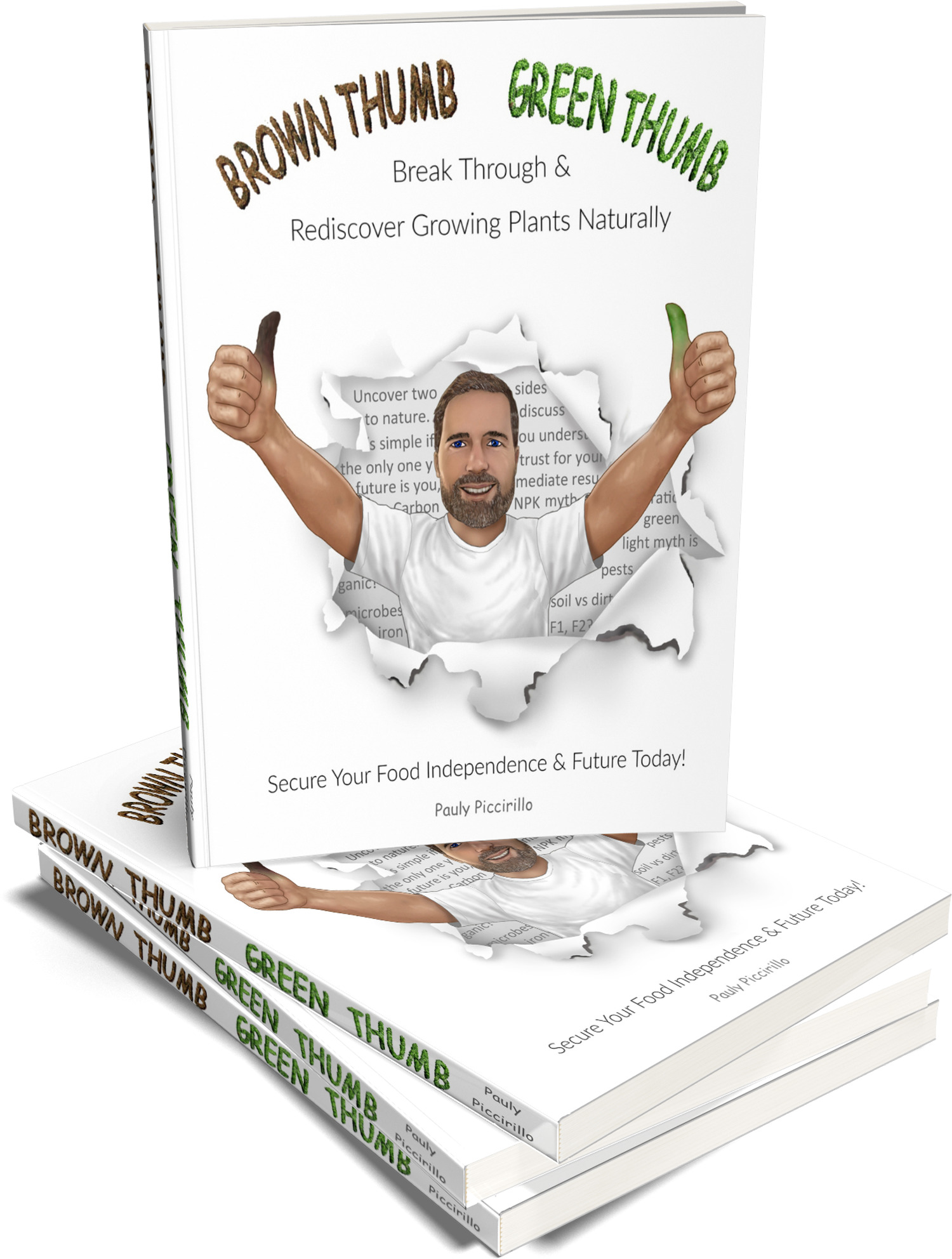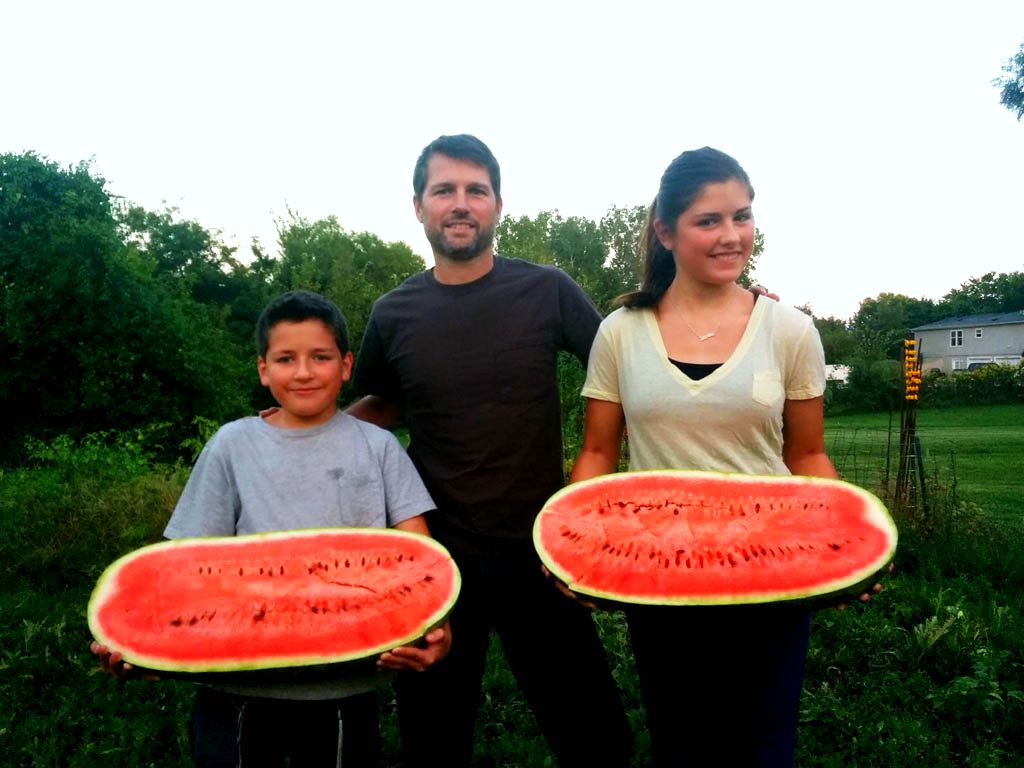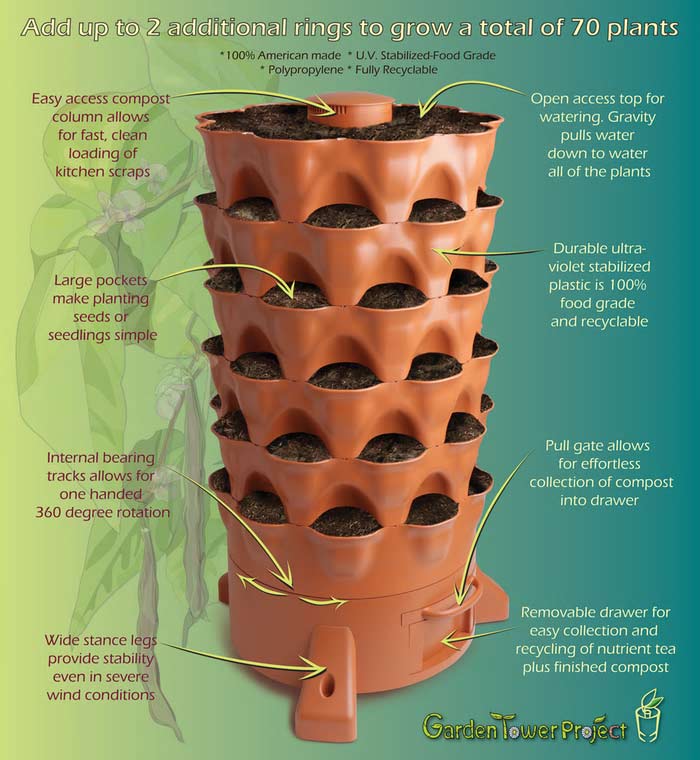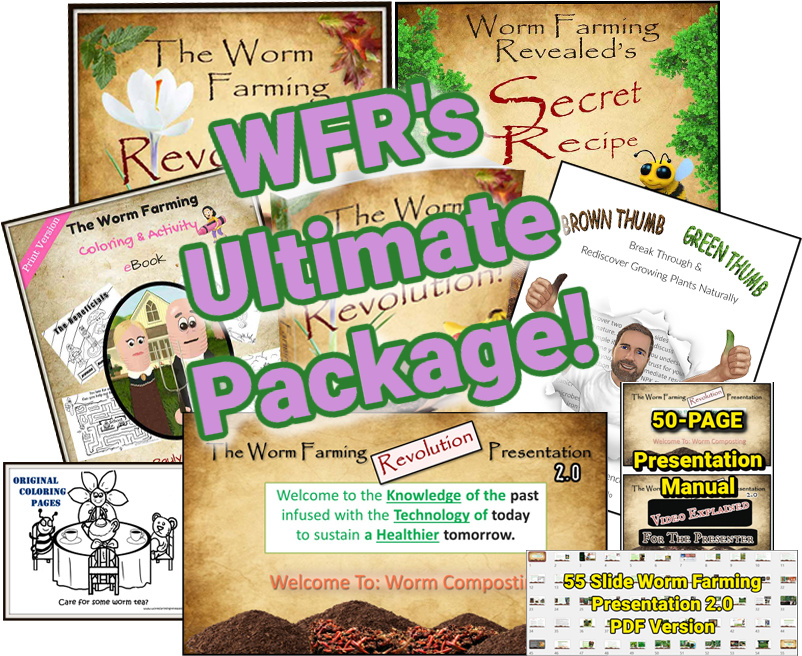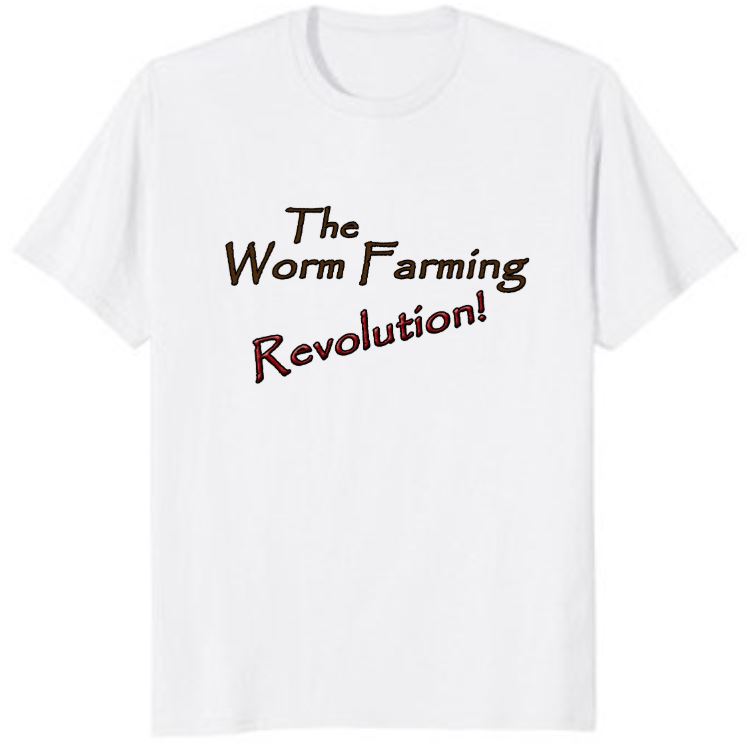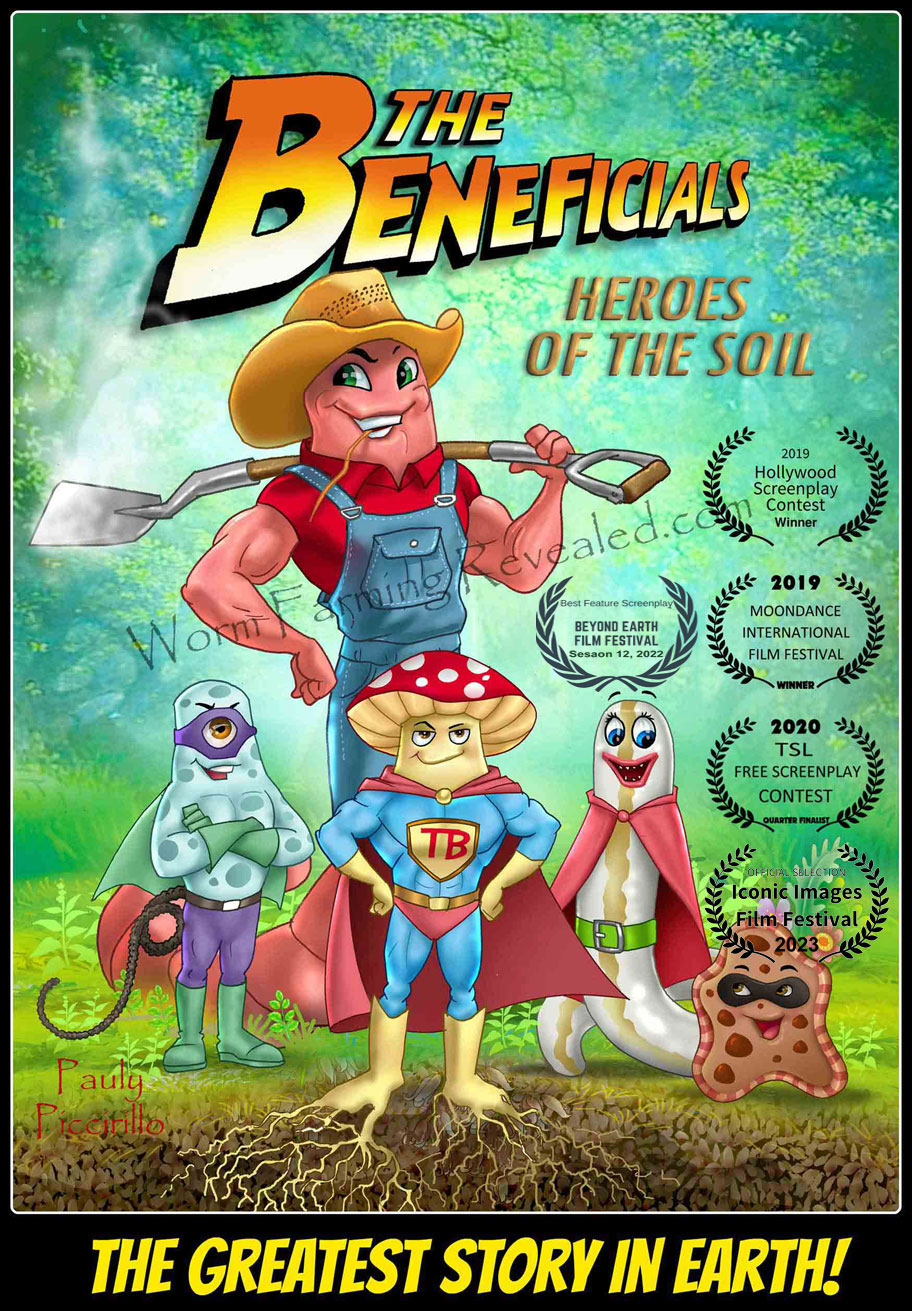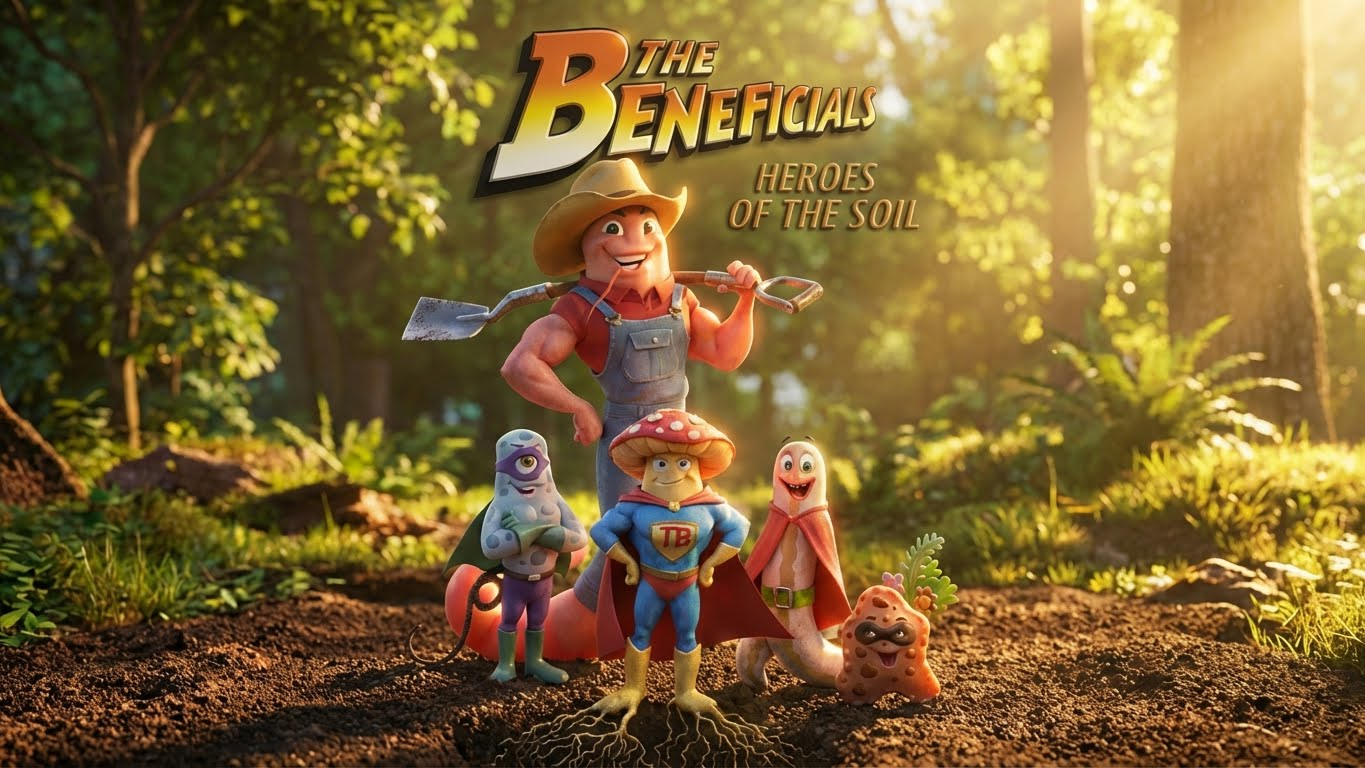Gardening Advice
(Actually, more of an encouragement)
Gardening advice from an avid gardener. Chances are...
You might NOT be doing ANYTHING wrong!
See Other Gardening Pics Since 2010
The title of this page might be a little misleading but may also be some of the best gardening advice, composting, you'll ever receive if growing using organic or natural methods.
If I am to continue to teach people about growing naturally, I don't want to hide ANYTHING from my readers, especially some of the ugly things about a perfect world, such as gardening. (see what I did there?)
You should be very prepared for what nature will bring about. I've always demonstrated this, but now, you're gonna hear it from me a little bit differently.
We’ve heard the sayings like,
- "You say it best when you say nothing at all."
- "Less is more."
- "Don't fix it if it ain't broke."
- "Leave well-enough alone."
Hopefully, by now, you know where I'm going with this but if not, allow me to explain.
Sometimes when it all seems to be going perfect,
It all falls apart, (usually mid summer) Right?
During the summer or after the growing season we ask ourselves,
- Where did I go wrong?
- What did I change?
- Is it my soil?
- Did I prune too much, not enough?
- Did I use something I shouldn't have?
- Etc, etc.
You're not alone when asking these questions. Even avid gardeners (who seem like their gardens are perfect) ask these questions to themselves every year.
We all want to perfect our growing techniques no matter how seasoned we are at growing plants. There's always room for improvement. THAT will NEVER change.
Some people can grow everything, and really well too. So you ask yourself, "Why can't I?" I can only speak from my point of view.
I grow a lot of food every year, but it's not without its challenges. I'm faced with several issues that plague many gardeners around the world.
Here is a list of challenges I face every year:
- I live in planting zone 6 (or 5 to 6). Temperatures and many different elements fluctuate very rapidly.
I'd love to live live in planting zones 8 through 10 (USA). These southern zones wrap all the way from North Carolina to Florida. It covers the Gulf states, then the rest of the southern states, and wraps clear around California all the way up into western Canada. - Unsteady temperatures
- Unsteady rainfall
- Unsteady humidity
- Intense sun/heat on my plants
- Long periods of drought
- Periods of flooding
- High winds
- Hail storms
I'd love to have a greenhouse for various plants, shade cloth over my plants, and be able to plant much earlier in the year.
However, I do not live on the west coast or the "hardy" zones so, I just make do with what I have.
I'm not saying that gardeners that live in these "perfect" climates don't have their challenges. I know you most definitely do.
Given the zone 8 climate mixed with my soil recipe and methodology, I'd like to think I'd be in heaven, but I'm not. However, I'm actually content in the zone I live in and understand that others may be jealous of ME. I get that!
The year 2020 has been one of the worst years on record for growing almost anything in my garden. We went from winter to summer in an instant.
I started the growing season one month late (because it was so cold), then it went straight into scorching drought. It barely rained for 2 months, nearly flooded, then heat and drought again.
During the drought, the grass turned brown (had to stop mowing) and the insects had nowhere to go, save for the oasis of my garden. Weeds, grass, clover, trees, and other plants (outside my garden) were barely hanging in there. When they no longer sufficed, the bugs came for my plants.
Even though my soil mix and method was the same as always, the elements of 2020 were headed my way. 2020 was the worst growing season for me, PERIOD!
If you create the best foundation for plants, you create the best immune system for plants. This includes many preventive elements, including pests.
However, will ANYTHING stop YOU from eating SOMETHING you hate if you're hungry enough? The brain and the stomach conspire against the taste buds and even fool them into thinking what you normally dislike is actually not that bad. Eventually you develop a taste for it.
**Side Note**
One of Abraham Lincoln's favorite books was Skeletons on the Zahara (Sahara). (Amazon Link)
Skeletons on the Zahara chronicles the true story of twelve American sailors who were shipwrecked off the coast of Africa in 1815, captured by desert nomads, sold into slavery, and subjected to a hellish two-month journey through the perilous heart of the Sahara.
They were so thirsty, had lost half their weight, and thought camel urine was one of the best tasting liquids in the world. Keep in mind they had their hands tied walking behind the camels.
Why are bugs any different? Why would any living thing be different?
I also had other issues, like,
- Deer and raccoons eating the corn,
- Rabbits eating beans, and
- Moles tunneling underground, tearing out roots and eating juicy worms.
HELL HATH NO FURY LIKE 2020!
AND...I'm not even talkin' bout the Covid either!
So, the best gardening advice I can give you is, if it's worked for you in the past, keep doing what you're doing because seasons come and go.
Every growing season is different. There will be plenty more "bad" seasons to come. When you're having a great season, remember someone else somewhere is having a 2020 season like mine.
Are there things you can change? Yes! There always will be every year. We should still be thinking about how to be prepared for whatever element nature might throw our way.
The great thing about the terrible year of 2020 is...
Had I not been prepared for the unexpected whims of nature, I may NOT have harvested much at ALL!
However, because of the planning, the stick-with-it-attitude, and the NEVER GIVE UP mentality, we've managed to pull in quite a bit of produce to fill our bellies, dehydrate, store, and give away and NOT just to animals and pests. Everything else went into the compost piles for the worms, microbes, and the many beneficial creatures that inhabit a compost pile.
Never give up on a plant. It's trying to survive as well. Moles and high winds nearly killed a few of our plants, but we only lost one tomato plant from a mole tunneling underneath.
I'm ALWAYS impressed by nature, both the good and the "bad".
When we play within the rules of nature, it rewards us AND the other creatures that are just trying to live. They have their purpose too. The Creator knew what He was doing from the beginning.
Seems like everyone had their issues with cabbage worms/loopers eating everything from tomatoes to watermelon to almost everything this year in my area. I've not seen that before in the 15 years I've been gardening naturally.
These are pictures of cabbage worms eating wild lettuce way outside the territory of my garden.
This shows that they DO eat other plants than just those within the cabbage family.
Can you find the worm in the second picture to the right? Hint: Follow the cabbage looper poop clusters up the stalk and to the right. It froze when it saw me.
Nature runs things in cycles like the red cicada infestation that pops up every 13 to 17 years. We experienced that a few years ago. The red cicada were dropping from trees by the hundreds near every tree and the sound they made was deafening.
We had an infestation of grasshoppers not too long ago as well. We also have the dreaded cabbage worms for 2020, as mentioned, that everyone was complaining about in my area. There were at least 4 different species of worms eating whatever they could to survive through the drought.
Need I mention the squash bugs, cucumber beetle, etc. etc.?
Wasps, lady bugs, praying mantis, spiders, and many other beneficial insects will help you when they can. I've seen wasps carry whole cabbage worms away this year.
This is a pic of one of many assassin bugs I've seen this year. It's sucking the life out of a cucumber beetle.
I'm not sure what the fly is doing, but it better watch out!
These "pests" are here for a reason and I always have them pollinating my flowers, take small bites out of a leaf, then move on.
The beneficial predators are here for a reason too.
However, due to the stress of the high heat, drought, floods, then prolonged high humidity and drought, plus high temps again, they developed a taste for my plants. However, I've managed to work WITH them.
So please take this gardening advice as
A Word of Encouragement!
When it seems like you're failing, you're NOT!
You're succeeding through the midst of the STORM!
Because the outcome of poor planning/planting would have meant LITTLE OR NO HARVEST AT ALL!
I remain cool and calm cause I know, "This too shall pass".
Never make a permanent decision based on a temporary problem.
One More Lil' Gardening Advice
- Always grow plants that best fit your region. This even includes certain species of tomatoes. Not all tomato species grow everywhere. It goes for any species of plant, otherwise it's a gamble even if the first 3 years go well. However, don't be afraid to try new things despite.
- Never take on more than what you can handle (unlike me). You'll stretch yourself too thin and your entire garden will suffer.
- Grow what you know how to grow the best and perfect it, whether food or ornamental. Try growing new plants in small amounts year after year till you know if you can grow them well.
- Decide if pruning is best. I grow most plants best by NOT pruning. This is trial and error situation.
- The best plant food is from what nature provides in your backyard (for free). Never think that store-bought potting soil (even worm castings) is better than homemade worm castings or compost from dead carbon, such as leaves. It contains worms and other beneficial creatures crawling in and out of the pile. Fresh is best. This is a living soil.
- Always brew aerated worm tea or make a worm tea extract from mature worm castings. If done properly, there's no such things as too much tea on your plants. It's only microbes.
- Always mulch using carbon material. Carbon breaks down turning into plant food and promotes microbial and fungal growth. The more natural, the better.
- Never water from the tap. I'm not saying you can't grow a good plant, but you will see a noticeable difference by staying away from chemicals that kill your microbes.
- Always use beneficial minerals.
- Refresh or top dress with fresh worm castings or compost and mulch again mid season. This is not always necessary, but the plant will benefit as the roots use the resources and the soil sinks lower into the ground. Never let your microbes dry out. This is certain death for your microbes, thus your plant.
- Maximum Sunlight = More Photosynthesis. The more sugars your roots put out, the more production you'll get. This is determined by the plant you're growing.
There's a million things happening under the soil where the roots are. If you have a simple understanding of this secret living world, YOU CAN GROW ANYTHING!
Some of the best gardening advice I can give you is everywhere on this website or click the links below:
- Search this website.
- Read the Free Guide.
- Read my books.
- Read trusted material from others.
To learn more about Pauly's years of growing plants, recycling food, raising composting worms, and composting, check out the books he's authored.
Gardening Advice for Transplanting Big Nursery
Chemically-Fed Seedlings
I'd also add that one of my 2020 growing problems were self inflicted.
I decided to turn my entire garden into an experiment!
OUCH!
I purchased transplant seedlings (since falling a month behind in the spring) from one of the biggest nurseries in the U.S. from Home Depot. I've been using organic seeds most of my gardening life, but this year I was extremely behind in planting.
Why did I purchase Bonnie Seedlings?
Some people, at times, don't have access (for whatever reasons) to organic seeds. I wanted to test my soil mix and methodology on plants that were raised via a giant corporate horticultural industry.
Could I honestly tell people they can use my method (natural methods) on plants grown from seeds fed on chemical fertilizers?
The short answer is, Yes.
- I pulled the seedlings out of their cups,
- Brushed off half of the potting soil around the roots,
- Transplanted the seedlings into my soil mix into the ground, &
- Fed a regiment of aerated worm tea with regular watering throughout the heat, drought, and the growing season.
As you will see below, we have a good harvest despite the many elements 2020 threw our way. Had I gone with my normal organic seeds planted in the ground (and not plants that were dependent on chemical fertilizers) the outcome would have been much more favorable.
It was another set back as the plants had to adjust to a natural food source. I won't say that everyone's outcome will be like mine. There are way too many variables to guarantee any favorable results anywhere and at anytime. All I can say is, I did it and reaping a good harvest.
I do NOT want to do this experiment again!
But at least I did it.
Though this was the worst year on record for us, please look at the results of not giving up but continuing to feed your plants the best natural foundation a plant could ever want...
Healthy, Living MICROBES and MINERALS!
A LIVING SOIL!
August 2020 Garden Pics
(See Other Garden Pics)
It's nearing the end of August, 2020. We'll continue to harvest, harvest, harvest and store our food any way we can till the frost hits, but in the meantime...
We're Getting Ready For Next Year!
(outside compost piles filled with worms)
Are you ready for next year?
Success begins with knowledge. Get it from someone you can trust. There's tons more info on several topics, not just gardening advice.
Learn:
- Composting with worms
- Harvesting worm castings
- Using indoor/outdoor worm bins or static piles
- 6 different species of worms
- Making compost tea
- 19 types of minerals
- Growing your own food and medicine
- Making wonderful living soil
- Understanding the microbial community
- Starting a worm business, Learn from the pros!
- Getting kids excited
- Giving exciting presentations
- Following my recipe and methodology for success
- And MUCH MORE!
- Other Garden Pics
- Worm Farming Products
- Order Worms via WFR Worm Directory (100's of vendors)
- Subscribe to Our Newsletter, The Poop Scoop
- Pauly's YouTube Channel
Gardening Advice - Videos to Come
AND, as always, thanks for supporting the award-winning Hollywood Screenplay, The Beneficials!
I hope you received a word of encouragement and benefited from the small amount of gardening advice I have. Stay tuned for some supporting videos on this topic or sign up for the newsletter above.
~Pauly Piccirillo
To Your Success!
